 |
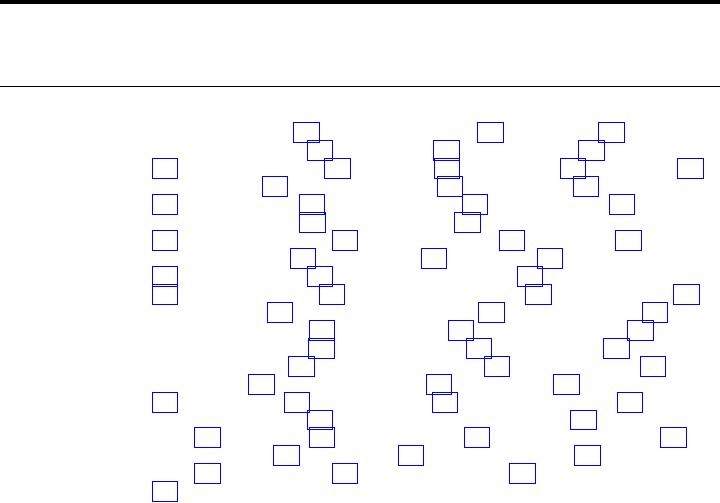
Chapter
13. Standard Template
Library C++
<algorithm>
namespace
std {
template<class
InIt, class Fun>
Fun
for_each(InIt first, InIt
last, Fun f);
template<class
InIt, class T>
InIt
find(InIt first, InIt
last, const T& val);
template<class
InIt, class Pred>
InIt
find_if(InIt first, InIt
last, Pred pr);
template<class
FwdIt1, class
FwdIt2>
FwdIt1
find_end(FwdIt1
first1, FwdIt1 last1,
FwdIt2
first2, FwdIt2 last2);
template<class
FwdIt1, class FwdIt2, class
Pred>
FwdIt1
find_end(FwdIt1
first1, FwdIt1 last1,
FwdIt2
first2, FwdIt2 last2, Pred
pr);
template<class
FwdIt1, class
FwdIt2>
FwdIt1
find_first_of(FwdIt1
first1, FwdIt1 last1,
FwdIt2
first2, FwdIt2 last2);
template<class
FwdIt1, class FwdIt2, class
Pred>
FwdIt1
find_first_of(FwdIt1
first1, FwdIt1 last1,
FwdIt2
first2, FwdIt2 last2, Pred
pr);
template<class
FwdIt>
FwdIt
adjacent_find(FwdIt
first, FwdIt last);
template<class
FwdIt, class Pred>
FwdIt
adjacent_find(FwdIt
first, FwdIt last, Pred pr);
template<class
InIt, class T, class
Dist>
typename
iterator_traits<InIt>::difference_type
count(InIt first, InIt
last,
const
T& val);
template<class
InIt, class Pred, class
Dist>
typename
iterator_traits<InIt>::difference_type
count_if(InIt first, InIt
last,
Pred
pr);
template<class
InIt1, class InIt2>
pair<InIt1,
InIt2> mismatch(InIt1 first,
InIt1 last,
249
InIt2
x);
template<class
InIt1, class InIt2, class
Pred>
pair<InIt1,
InIt2> mismatch(InIt1 first,
InIt1 last,
InIt2
x, Pred pr);
template<class
InIt1, class InIt2>
bool
equal(InIt1 first,
InIt1 last, InIt2 x);
template<class
InIt1, class InIt2, class
Pred>
bool
equal(InIt1 first,
InIt1 last, InIt2 x, Pred pr);
template<class
FwdIt1, class
FwdIt2>
FwdIt1
search(FwdIt1
first1, FwdIt1 last1,
FwdIt2
first2, FwdIt2 last2);
template<class
FwdIt1, class FwdIt2, class
Pred>
FwdIt1
search(FwdIt1
first1, FwdIt1 last1,
FwdIt2
first2, FwdIt2 last2, Pred
pr);
template<class
FwdIt, class Dist, class
T>
FwdIt
search_n(FwdIt
first, FwdIt last,
Dist
n, const T& val);
template<class
FwdIt, class Dist, class T,
class Pred>
FwdIt
search_n(FwdIt
first, FwdIt last,
Dist
n, const T& val, Pred pr);
template<class
InIt, class OutIt>
OutIt
copy(InIt first, InIt
last, OutIt x);
template<class
BidIt1, class BidIt2>
BidIt2
copy_backward(BidIt1
first, BidIt1 last,
BidIt2
x);
template<class
T>
void
swap(T& x, T&
y);
template<class
FwdIt1, class
FwdIt2>
FwdIt2
swap_ranges(FwdIt1
first, FwdIt1 last,
FwdIt2
x);
template<class
FwdIt1, class
FwdIt2>
void
iter_swap(FwdIt1
x, FwdIt2 y);
template<class
InIt, class OutIt, class
Unop>
OutIt
transform(InIt first, InIt
last, OutIt x,
Unop
uop);
template<class
InIt1, class InIt2, class OutIt,
class
Binop>
OutIt
transform(InIt1 first1,
InIt1 last1,
InIt2
first2, OutIt x, Binop bop);
template<class
FwdIt, class T>
void
replace(FwdIt
first, FwdIt last,
const
T& vold, const T& vnew);
template<class
FwdIt, class Pred, class
T>
void
replace_if(FwdIt
first, FwdIt last,
Pred
pr, const T& val);
template<class
InIt, class OutIt, class T>
OutIt
replace_copy(InIt first, InIt
last, OutIt x,
const
T& vold, const T& vnew);
template<class
InIt, class OutIt, class Pred,
class T>
OutIt
replace_copy_if(InIt first, InIt
last, OutIt x,
Pred
pr, const T& val);
template<class
FwdIt, class T>
void
fill(FwdIt
first, FwdIt last, const T&
x);
template<class
OutIt, class Size, class
T>
void
fill_n(OutIt first,
Size n, const T& x);
template<class
FwdIt, class Gen>
void
generate(FwdIt
first, FwdIt last, Gen g);
template<class
OutIt, class Pred, class
Gen>
void
generate_n(OutIt first,
Dist n, Gen g);
template<class
FwdIt, class T>
FwdIt
remove(FwdIt
first, FwdIt last, const T&
val);
template<class
FwdIt, class Pred>
FwdIt
remove_if(FwdIt
first, FwdIt last, Pred pr);
template<class
InIt, class OutIt, class T>
OutIt
remove_copy(InIt first, InIt
last, OutIt x,
const
T& val);
template<class
InIt, class OutIt, class
Pred>
250
Standard
C++ Library
OutIt
remove_copy_if(InIt first, InIt
last, OutIt x,
Pred
pr);
template<class
FwdIt>
FwdIt
unique(FwdIt
first, FwdIt last);
template<class
FwdIt, class Pred>
FwdIt
unique(FwdIt
first, FwdIt last, Pred pr);
template<class
InIt, class OutIt>
OutIt
unique_copy(InIt first, InIt
last, OutIt x);
template<class
InIt, class OutIt, class
Pred>
OutIt
unique_copy(InIt first, InIt
last, OutIt x,
Pred
pr);
template<class
BidIt>
void
reverse(BidIt first,
BidIt last);
template<class
BidIt, class OutIt>
OutIt
reverse_copy(BidIt first,
BidIt last, OutIt x);
template<class
FwdIt>
void
rotate(FwdIt
first, FwdIt middle, FwdIt
last);
template<class
FwdIt, class
OutIt>
OutIt
rotate_copy(FwdIt
first, FwdIt middle,
FwdIt
last, OutIt x);
template<class
RanIt>
void
random_shuffle(RanIt
first, RanIt last);
template<class
RanIt, class Fun>
void
random_shuffle(RanIt
first, RanIt last, Fun& f);
template<class
BidIt, class Pred>
BidIt
partition(BidIt first,
BidIt last, Pred pr);
template<class
BidIt, class Pred>
BidIt
stable_partition(BidIt first,
BidIt last,
Pred
pr);
template<class
RanIt>
void
sort(RanIt
first, RanIt last);
template<class
RanIt, class Pred>
void
sort(RanIt
first, RanIt last, Pred pr);
template<class
BidIt>
void
stable_sort(BidIt first,
BidIt last);
template<class
BidIt, class Pred>
void
stable_sort(BidIt first,
BidIt last, Pred pr);
template<class
RanIt>
void
partial_sort(RanIt
first, RanIt middle,
RanIt
last);
template<class
RanIt, class Pred>
void
partial_sort(RanIt
first, RanIt middle,
RanIt
last, Pred pr);
template<class
InIt, class RanIt>
RanIt
partial_sort_copy(InIt first1,
InIt last1,
RanIt
first2, RanIt last2);
template<class
InIt, class RanIt, class
Pred>
RanIt
partial_sort_copy(InIt first1,
InIt last1,
RanIt
first2, RanIt last2, Pred
pr);
template<class
RanIt>
void
nth_element(RanIt
first, RanIt nth, RanIt last);
template<class
RanIt, class Pred>
void
nth_element(RanIt
first, RanIt nth, RanIt last,
Pred
pr);
template<class
FwdIt, class T>
FwdIt
lower_bound(FwdIt
first, FwdIt last,
const
T& val);
template<class
FwdIt, class T, class
Pred>
FwdIt
lower_bound(FwdIt
first, FwdIt last,
const
T& val, Pred pr);
template<class
FwdIt, class T>
FwdIt
upper_bound(FwdIt
first, FwdIt last,
const
T& val);
template<class
FwdIt, class T, class
Pred>
FwdIt
upper_bound(FwdIt
first, FwdIt last,
const
T& val, Pred pr);
template<class
FwdIt, class T>
251
Chapter
13. Standard Template Library
C++
pair<FwdIt,
FwdIt> equal_range(FwdIt
first,
FwdIt
last, const T& val);
template<class
FwdIt, class T, class
Pred>
pair<FwdIt,
FwdIt> equal_range(FwdIt
first,
FwdIt
last, const T& val, Pred pr);
template<class
FwdIt, class T>
bool
binary_search(FwdIt
first, FwdIt last,
const
T& val);
template<class
FwdIt, class T, class
Pred>
bool
binary_search(FwdIt
first, FwdIt last,
const
T& val, Pred pr);
template<class
InIt1, class InIt2, class
OutIt>
OutIt
merge(InIt1 first1,
InIt1 last1,
InIt2
first2, InIt2 last2, OutIt x);
template<class
InIt1, class InIt2, class OutIt,
class
Pred>
OutIt
merge(InIt1 first1,
InIt1 last1,
InIt2
first2, InIt2 last2, OutIt x, Pred
pr);
template<class
BidIt>
void
inplace_merge(BidIt first,
BidIt middle,
BidIt
last);
template<class
BidIt, class Pred>
void
inplace_merge(BidIt first,
BidIt middle,
BidIt
last, Pred pr);
template<class
InIt1, class InIt2>
bool
includes(InIt1 first1,
InIt1 last1,
InIt2
first2, InIt2 last2);
template<class
InIt1, class InIt2, class
Pred>
bool
includes(InIt1 first1,
InIt1 last1,
InIt2
first2, InIt2 last2, Pred pr);
template<class
InIt1, class InIt2, class
OutIt>
OutIt
set_union(InIt1 first1,
InIt1 last1,
InIt2
first2, InIt2 last2, OutIt x);
template<class
InIt1, class InIt2, class OutIt,
class
Pred>
OutIt
set_union(InIt1 first1,
InIt1 last1,
InIt2
first2, InIt2 last2, OutIt x, Pred
pr);
template<class
InIt1, class InIt2, class
OutIt>
OutIt
set_intersection(InIt1 first1,
InIt1 last1,
InIt2
first2, InIt2 last2, OutIt x);
template<class
InIt1, class InIt2, class OutIt,
class
Pred>
OutIt
set_intersection(InIt1 first1,
InIt1 last1,
InIt2
first2, InIt2 last2, OutIt x, Pred
pr);
template<class
InIt1, class InIt2, class
OutIt>
OutIt
set_difference(InIt1 first1,
InIt1 last1,
InIt2
first2, InIt2 last2, OutIt x);
template<class
InIt1, class InIt2, class OutIt,
class
Pred>
OutIt
set_difference(InIt1 first1,
InIt1 last1,
InIt2
first2, InIt2 last2, OutIt x, Pred
pr);
template<class
InIt1, class InIt2, class
OutIt>
OutIt
set_symmetric_difference(InIt1
first1,
InIt1
last1, InIt2 first2, InIt2 last2, OutIt
x);
template<class
InIt1, class InIt2, class OutIt,
class
Pred>
OutIt
set_symmetric_difference(InIt1
first1,
InIt1
last1, InIt2 first2, InIt2 last2, OutIt
x,
Pred
pr);
template<class
RanIt>
void
push_heap(RanIt
first, RanIt last);
template<class
RanIt, class Pred>
void
push_heap(RanIt
first, RanIt last, Pred pr);
template<class
RanIt>
void
pop_heap(RanIt
first, RanIt last);
template<class
RanIt, class Pred>
void
pop_heap(RanIt
first, RanIt last, Pred pr);
252
Standard
C++ Library
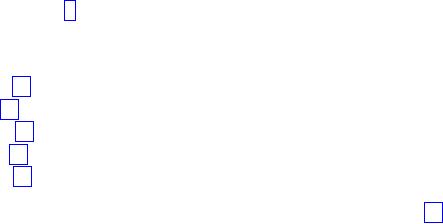
template<class
RanIt>
void
make_heap(RanIt
first, RanIt last);
template<class
RanIt, class Pred>
void
make_heap(RanIt
first, RanIt last, Pred pr);
template<class
RanIt>
void
sort_heap(RanIt
first, RanIt last);
template<class
RanIt, class Pred>
void
sort_heap(RanIt
first, RanIt last, Pred pr);
template<class
T>
const
T& max(const
T& x, const T& y);
template<class
T, class Pred>
const
T& max(const
T& x, const T& y, Pred
pr);
template<class
T>
const
T& min(const
T& x, const T& y);
template<class
T, class Pred>
const
T& min(const
T& x, const T& y, Pred
pr);
template<class
FwdIt>
FwdIt
max_element(FwdIt
first, FwdIt last);
template<class
FwdIt, class Pred>
FwdIt
max_element(FwdIt
first, FwdIt last, Pred pr);
template<class
FwdIt>
FwdIt
min_element(FwdIt
first, FwdIt last);
template<class
FwdIt, class Pred>
FwdIt
min_element(FwdIt
first, FwdIt last, Pred pr);
template<class
InIt1, class InIt2>
bool
lexicographical_compare(InIt1
first1,
InIt1
last1, InIt2 first2, InIt2 last2);
template<class
InIt1, class InIt2, class
Pred>
bool
lexicographical_compare(InIt1
first1,
InIt1
last1, InIt2 first2, InIt2 last2, Pred
pr);
template<class
BidIt>
bool
next_permutation(BidIt first,
BidIt last);
template<class
BidIt, class Pred>
bool
next_permutation(BidIt first,
BidIt last,
Pred
pr);
template<class
BidIt>
bool
prev_permutation(BidIt first,
BidIt last);
template<class
BidIt, class Pred>
bool
prev_permutation(BidIt first,
BidIt last,
Pred
pr);
};
Include
the STL (page 1)
standard header <algorithm>
to
define numerous
template
functions that perform
useful algorithms. The
descriptions that follow
make
extensive use of common
template parameter names (or
prefixes) to indicate
the
least powerful category of
iterator permitted as an actual
argument type:
v
OutIt
(page 37)
--
to indicate an output
iterator
v
InIt
(page 37)
--
to indicate an input
iterator
v
FwdIt
(page 37)
--
to indicate a forward iterator
v
BidIt
(page 37)
--
to indicate a bidirectional
iterator
v
RanIt
(page 37)
--
to indicate a random-access
iterator
The
descriptions of these templates
employ a number of conventions
(page 38)
common
to all algorithms.
adjacent_find
template<class
FwdIt>
FwdIt
adjacent_find(FwdIt
first, FwdIt last);
template<class
FwdIt, class Pred>
FwdIt
adjacent_find(FwdIt
first, FwdIt last, Pred pr);
253
Chapter
13. Standard Template Library
C++

The
first template function
determines the lowest N
in
the range [0,
last - first)
for
which N
+ 1 != last - first and
the predicate *(first
+ N) == *(first + N
+
1) is
true. Here, operator==
must
impose an equivalence relationship
(page 39)
between
its operands. It then
returns first
+ N. If
no such value exists,
the
function
returns last. It
evaluates the predicate
exactly N
+ 1 times.
The
second template function
behaves the same, except
that the predicate is
pr(*(first
+ N), *(first + N + 1)).
binary_search
template<class
FwdIt, class T>
bool
binary_search(FwdIt
first, FwdIt last,
const
T& val);
template<class
FwdIt, class T, class
Pred>
bool
binary_search(FwdIt
first, FwdIt last,
const
T& val, Pred pr);
The
first template function
determines whether a value of
N
exists
in the range [0,
last
- first) for
which *(first
+ N) has
equivalent ordering (page 39)
to val,
where
the elements designated by
iterators in the range [first,
last) form
a
sequence
ordered by (page 39)
operator<. If so,
the function returns true.
If no
such
value exists, it returns
false.
If
FwdIt
is a
random-access iterator type,
the function evaluates the
ordering
predicate
X
< Y at most
ceil(log(last -
first)) + 2 times.
Otherwise, the
function
evaluates the predicate a
number of times proportional to
last
- first.
The
second template function
behaves the same, except
that it replaces
operator<(X,
Y) with
pr(X,
Y).
copy
template<class
InIt, class OutIt>
OutIt
copy(InIt first, InIt
last, OutIt x);
The
template function evaluates *(x + N) =
*(first + N)) once
for each N
in
the
range
[0,
last - first),
for strictly increasing values of
N
beginning
with the
lowest
value. It then returns x
+ N. If
x
and
first
designate
regions of storage, x
must
not be in the range [first,
last).
copy_backward
template<class
BidIt1, class BidIt2>
BidIt2
copy_backward(BidIt1
first, BidIt1 last,
BidIt2
x);
The
template function evaluates *(x - N - 1) =
*(last - N - 1)) once
for each N
in
the range [0,
last - first),
for strictly decreasing values of
N
beginning
with
the
highest value. It then
returns x
- (last - first).
If x
and
first
designate
regions
of storage, x
must
not be in the range [first,
last).
count
template<class
InIt, class T>
typename
iterator_traits<InIt>::difference_type
count(InIt first, InIt
last, const T& val);
The
template function sets a count
n
to
zero. It then executes ++n
for
each N
in
the
range
[0,
last - first) for
which the predicate *(first
+ N) == val is
true.
254
Standard
C++ Library

Here,
operator==
must
impose an equivalence relationship
(page 39)
between its
operands.
The function returns n. It
evaluates the predicate
exactly last
- first
times.
count_if
template<class
InIt, class Pred, class
Dist>
typename
iterator_traits<InIt>::difference_type
count_if(InIt first, InIt
last,
Pred
pr);
The
template function sets a count
n
to
zero. It then executes ++n
for
each N
in
the
range
[0,
last - first) for
which the predicate pr(*(first
+ N)) is
true. The
function
returns n. It
evaluates the predicate
exactly last
- first times.
equal
template<class
InIt1, class
InIt2>
bool
equal(InIt1
first,
InIt1
last, InIt2 x);
template<class
InIt1, class
InIt2,
class Pred>
bool
equal(InIt1
first,
InIt1
last, InIt2 x, Pred pr);
The
first template function
returns true only if, for
each N
in
the range [0,
last1 -
first1), the
predicate *(first1
+ N) == *(first2 + N) is
true. Here, operator==
must
impose an equivalence relationship
(page 39)
between its operands.
The
function
evaluates the predicate at
most once for each N.
The
second template function
behaves the same, except
that the predicate is
pr(*(first1
+ N), *(first2 + N)).
equal_range
template<class
FwdIt, class T>
pair<FwdIt,
FwdIt> equal_range(FwdIt
first,
FwdIt
last, const T& val);
template<class
FwdIt, class T, class
Pred>
pair<FwdIt,
FwdIt> equal_range(FwdIt
first,
FwdIt
last, const T& val, Pred pr);
The
first template function
effectively returns pair(
lower_bound(first, last,
val),
upper_bound(first, last, val)),
where the elements
designated by
iterators
in the range [first,
last) form a
sequence ordered by (page 39)
operator<. Thus,
the function determines the
largest range of positions over
which
val
can be
inserted in the sequence and
still preserve its
ordering.
If
FwdIt
is a
random-access iterator type,
the function evaluates the
ordering
predicate
X
< Y at most
ceil(2 * log(last
- first)) + 1.
Otherwise, the
function
evaluates
the predicate a number of
times proportional to last
- first.
The
second template function
behaves the same, except
that it replaces
operator<(X,
Y) with
pr(X,
Y).
fill
template<class
FwdIt, class T>
void
fill(FwdIt
first, FwdIt last, const T&
x);
The
template function evaluates *(first + N) = x
once for
each N
in
the range [0,
last
- first).
255
Chapter
13. Standard Template Library
C++
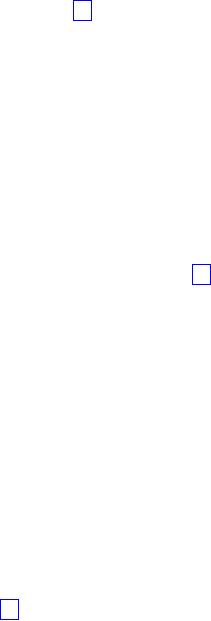
fill_n
template<class
OutIt, class Size, class
T>
void
fill_n(OutIt first,
Size n, const T& x);
The
template function evaluates *(first + N) = x
once for
each N
in
the range [0,
n).
find
template<class
InIt, class T>
InIt
find(InIt first, InIt
last, const T& val);
The
template function determines
the lowest value of N
in
the range [0,
last -
first)
for
which the predicate *(first
+ N) == val is
true. Here, operator==
must
impose
an equivalence relationship (page 39)
between its operands. It
then returns
first
+ N. If
no such value exists, the
function returns last. It
evaluates the
predicate
at most once for each N.
find_end
template<class
FwdIt1, class
FwdIt2>
FwdIt1
find_end(FwdIt1
first1, FwdIt1 last1,
FwdIt2
first2, FwdIt2 last2);
template<class
FwdIt1, class FwdIt2, class
Pred>
FwdIt1
find_end(FwdIt1
first1, FwdIt1 last1,
FwdIt2
first2, FwdIt2 last2, Pred
pr);
The
first template function
determines the highest value
of N
in
the range [0,
last1
- first1 - (last2 - first2)) such
that for each M
in
the range [0,
last2
-
first2),
the predicate *(first1
+ N + M) == *(first2 + N + M) is
true. Here,
operator==
must
impose an equivalence relationship
(page 39)
between its
operands.
It then returns first1
+ N. If
no such value exists, the
function returns
last1. It
evaluates the predicate at
most (last2
- first2) * (last1 - first1 -
(last2
- first2) + 1) times.
The
second template function
behaves the same, except
that the predicate is
pr(*(first1
+ N + M), *(first2 + N + M)).
find_first_of
template<class
FwdIt1, class
FwdIt2>
FwdIt1
find_first_of(FwdIt1
first1, FwdIt1 last1,
FwdIt2
first2, FwdIt2 last2);
template<class
FwdIt1, class FwdIt2, class
Pred>
FwdIt1
find_first_of(FwdIt1
first1, FwdIt1 last1,
FwdIt2
first2, FwdIt2 last2, Pred
pr);
The
first template function
determines the lowest value
of N
in
the range [0,
last1
-
first1) such
that for some M
in
the range [0,
last2 - first2),
the predicate
*(first1
+ N) == *(first2 + M) is
true. Here, operator==
must
impose an
equivalence
relationship (page 39)
between its operands. It
then returns first1
+
N. If no
such value exists, the
function returns last1. It
evaluates the predicate
at
most
(last1 - first1)
* (last2 - first2) times.
The
second template function
behaves the same, except
that the predicate is
pr(*(first1
+ N), *(first2 + M)).
256
Standard
C++ Library

find_if
template<class
InIt, class Pred>
InIt
find_if(InIt first, InIt
last, Pred pr);
The
template function determines
the lowest value of N
in
the range [0,
last -
first)
for
which the predicate pred(*(first
+ N)) is
true. It then returns first
+
N. If no
such value exists, the
function returns last. It
evaluates the predicate
at
most
once for each N.
for_each
template<class
InIt, class Fun>
Fun
for_each(InIt first, InIt
last, Fun f);
The
template function evaluates f(*(first + N))
once for
each N
in
the range [0,
last
- first). It
then returns f.
generate
template<class
FwdIt, class Gen>
void
generate(FwdIt
first, FwdIt last, Gen g);
The
template function evaluates *(first + N) =
g() once for
each N
in
the range
[0,
last - first).
generate_n
template<class
OutIt, class Pred, class
Gen>
void
generate_n(OutIt first,
Dist n, Gen g);
The
template function evaluates *(first + N) =
g() once for
each N
in
the range
[0,
n).
includes
template<class
InIt1, class InIt2>
bool
includes(InIt1 first1,
InIt1 last1,
InIt2
first2, InIt2 last2);
template<class
InIt1, class InIt2, class
Pred>
bool
includes(InIt1 first1,
InIt1 last1,
InIt2
first2, InIt2 last2, Pred pr);
The
first template function
determines whether a value of
N
exists
in the range [0,
last2
- first2) such
that, for each M
in
the range [0,
last1 - first1),
*(first
+
M)
and
*(first + N)
do
not have equivalent ordering
(page 39),
where the
elements
designated by iterators in the
ranges [first1,
last1) and [first2,
last2)
each
form a sequence ordered by (page 39)
operator<. If so,
the function
returns
false. If no such value
exists, it returns true.
Thus, the function
determines
whether
the ordered sequence
designated by iterators in the
range [first2,
last2)
all
have equivalent ordering with
some element designated by
iterators in
the
range [first1,
last1).
The
function evaluates the
predicate at most 2
* ((last1 - first1) + (last2 -
first2))
- 1 times.
The
second template function
behaves the same, except
that it replaces
operator<(X,
Y) with
pr(X,
Y).
257
Chapter
13. Standard Template Library
C++
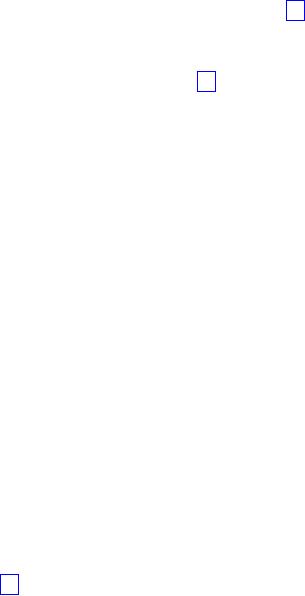
inplace_merge
template<class
BidIt>
void
inplace_merge(BidIt first,
BidIt middle,
BidIt
last);
template<class
BidIt, class Pred>
void
inplace_merge(BidIt first,
BidIt middle,
BidIt
last, Pred pr);
The
first template function
reorders the sequences
designated by iterators in
the
ranges
[first,
middle) and
[middle,
last),
each ordered by (page 39)
operator<,
to
form a merged sequence of length
last
- first beginning
at first
also
ordered
by
operator<. The
merge occurs without
altering the relative order
of elements
within
either original sequence.
Moreover, for any two elements from
different
original
sequences that have
equivalent ordering (page 39),
the element from
the
ordered
range [first,
middle) precedes
the other.
The
function evaluates the
ordering predicate X
< Y at most
ceil((last -
first)
*
log(last - first)) times.
(Given enough temporary
storage, it can evaluate
the
predicate
at most (last
- first) - 1 times.)
The
second template function
behaves the same, except
that it replaces
operator<(X,
Y) with
pr(X,
Y).
iter_swap
template<class
FwdIt1, class
FwdIt2>
void
iter_swap(FwdIt1
x, FwdIt2 y);
The
template function leaves the
value originally stored in *y subsequently
stored
in
*x, and
the value originally stored
in *x subsequently
stored in *y.
lexicographical_compare
template<class
InIt1, class InIt2>
bool
lexicographical_compare(InIt1
first1,
InIt1
last1, InIt2 first2, InIt2 last2);
template<class
InIt1, class InIt2, class
Pred>
bool
lexicographical_compare(InIt1
first1,
InIt1
last1, InIt2 first2, InIt2 last2, Pred
pr);
The
first template function
determines K, the
number of elements to compare as
the
smaller
of last1 - first1
and
last2 -
first2.
It then determines the
lowest value
of
N
in
the range [0,
K) for
which *(first1
+ N) and
*(first2 + N)
do
not have
equivalent
ordering (page 39).
If no such value exists,
the function returns
true
only
if K
< (last2 - first2).
Otherwise, it returns true
only if *(first1
+ N) <
*(first2
+ N).
Thus, the function returns
true only if the sequence
designated by
iterators
in the range [first1,
last1) is
lexicographically less than the
other
sequence.
The
function evaluates the
ordering predicate X
< Y at most
2 *
K times.
The
second template function
behaves the same, except
that it replaces
operator<(X,
Y) with
pr(X,
Y).
258
Standard
C++ Library
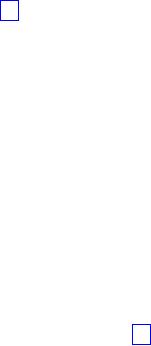
lower_bound
template<class
FwdIt, class T>
FwdIt
lower_bound(FwdIt
first, FwdIt last,
const
T& val);
template<class
FwdIt, class T, class
Pred>
FwdIt
lower_bound(FwdIt
first, FwdIt last,
const
T& val, Pred pr);
The
first template function
determines the highest value
of N
in
the range (0,
last
-
first] such
that, for each M
in
the range [0,
N) the
predicate *(first
+ M) <
val
is
true, where the elements
designated by iterators in the
range [first,
last)
form
a sequence ordered by (page 39)
operator<. It
then returns first
+ N.
Thus,
the
function determines the
lowest position before which
val
can be
inserted in the
sequence
and still preserve its
ordering.
If
FwdIt
is a
random-access iterator type,
the function evaluates the
ordering
predicate
X
< Y at most
ceil(log(last -
first)) + 1 times.
Otherwise, the
function
evaluates the predicate a
number of times proportional to
last
- first.
The
second template function
behaves the same, except
that it replaces
operator<(X,
Y) with
pr(X,
Y).
make_heap
template<class
RanIt>
void
make_heap(RanIt
first, RanIt last);
template<class
RanIt, class Pred>
void
make_heap(RanIt
first, RanIt last, Pred pr);
The
first template function
reorders the sequence
designated by iterators in
the
range
[first, last)
to form
a heap ordered by (page 39)
operator<.
The
function evaluates the
ordering predicate X
< Y at most
3 *
(last - first)
times.
The
second template function
behaves the same, except
that it replaces
operator<(X,
Y) with
pr(X,
Y).
max
template<class
T>
const
T& max(const
T& x, const T& y);
template<class
T, class Pred>
const
T& max(const
T& x, const T& y, Pred
pr);
The
first template function
returns y
if
x
< y.
Otherwise it returns x. T
need
supply
only
a single-argument constructor and a
destructor.
The
second template function
behaves the same, except
that it replaces
operator<(X,
Y) with
pr(X,
Y).
max_element
template<class
FwdIt>
FwdIt
max_element(FwdIt
first, FwdIt last);
template<class
FwdIt, class Pred>
FwdIt
max_element(FwdIt
first, FwdIt last, Pred pr);
259
Chapter
13. Standard Template Library
C++
The
first template function
determines the lowest value
of N
in
the range [0,
last
-
first) such
that, for each M
in
the range [0,
last - first) the
predicate
*(first
+ N) < *(first + M) is
false. It then returns first
+ N.
Thus, the function
determines
the lowest position that
contains the largest value
in the sequence.
The
function evaluates the
ordering predicate X
< Y exactly
max((last
- first) -
1,
0) times.
The
second template function
behaves the same, except
that it replaces
operator<(X,
Y) with
pr(X,
Y).
merge
template<class
InIt1,
class
InIt2, class OutIt>
OutIt
merge(InIt1
first1,
InIt1 last1,
InIt2
first2,
InIt2
last2, OutIt x);
template<class
InIt1,
class
InIt2, class OutIt,
class
Pred>
OutIt
merge(InIt1
first1,
InIt1 last1,
InIt2
first2,
InIt2
last2, OutIt x, Pred pr);
The
first template function
determines K, the
number of elements to copy as
(last1
-
first1) + (last2 - first2).
It then alternately copies two
sequences,
designated
by iterators in the ranges [first1, last1)
and
[first2, last2)
and
each
ordered by (page 39)
operator<, to form a
merged sequence of length K
beginning
at x, also
ordered by operator<. The
function then returns x
+ K.
The
merge occurs without
altering the relative order
of elements within
either
sequence.
Moreover, for any two elements from
different sequences that
have
equivalent
ordering (page 39),
the element from the
ordered range [first1,
last1)
precedes
the other. Thus, the
function merges two ordered
sequences to
form
another ordered
sequence.
If
x
and
first1
designate
regions of storage, the
range [x,
x + K) must
not
overlap
the range [first1,
last1).
If x
and
first2
designate
regions of storage,
the
range [x,
x + K) must
not overlap the range
[first2,
last2).
The function
evaluates
the ordering predicate X
< Y at most
K -
1 times.
The
second template function
behaves the same, except
that it replaces
operator<(X,
Y) with
pr(X,
Y).
min
template<class
T>
const
T& min(const
T& x, const T& y);
template<class
T, class Pred>
const
T& min(const
T& x, const T& y, Pred
pr);
The
first template function
returns y
if
y
< x.
Otherwise it returns x. T
need
supply
only
a single-argument constructor and a
destructor.
The
second template function
behaves the same, except
that it replaces
operator<(X,
Y) with
pr(X,
Y).
260
Standard
C++ Library

min_element
template<class
FwdIt>
FwdIt
min_element(FwdIt
first, FwdIt last);
template<class
FwdIt, class Pred>
FwdIt
min_element(FwdIt
first, FwdIt last, Pred pr);
The
first template function
determines the lowest value
of N
in
the range [0,
last
-
first) such
that, for each M
in
the range [0,
last - first) the
predicate
*(first
+ M) < *(first + N) is
false. It then returns first
+ N.
Thus, the function
determines
the lowest position that
contains the smallest value
in the sequence.
The
function evaluates the
ordering predicate X
< Y exactly
max((last
- first) -
1,
0) times.
The
second template function
behaves the same, except
that it replaces
operator<(X,
Y) with
pr(X,
Y).
mismatch
template<class
InIt1, class InIt2>
pair<InIt1,
InIt2> mismatch(InIt1 first,
InIt1 last,
InIt2
x);
template<class
InIt1, class InIt2, class
Pred>
pair<InIt1,
InIt2> mismatch(InIt1 first,
InIt1 last,
InIt2
x, Pred pr);
The
first template function
determines the lowest value
of N
in
the range [0,
last1
-
first1) for
which the predicate !(*(first1
+ N) == *(first2 + N)) is
true.
Here,
operator==
must
impose an equivalence relationship
(page 39)
between its
operands.
It then returns pair(first1
+ N, first2 + N).
If no such value exists,
N
has
the value last1
- first1. The
function evaluates the
predicate at most
once
for
each N.
The
second template function
behaves the same, except
that the predicate is
pr(*(first1
+ N), *(first2 + N)).
next_permutation
template<class
BidIt>
bool
next_permutation(BidIt first,
BidIt last);
template<class
BidIt, class Pred>
bool
next_permutation(BidIt first,
BidIt last,
Pred
pr);
The
first template function
determines a repeating sequence of
permutations,
whose
initial permutation occurs when
the sequence designated by
iterators in the
range
[first, last)
is
ordered by (page 39)
operator<. (The
elements are sorted
in
ascending
order.)
It then reorders the
elements in the sequence, by
evaluating
swap(X,
Y) for
the elements X
and
Y
zero or
more times, to form the
next
permutation.
The function returns true
only if the resulting
sequence is not the
initial
permutation. Otherwise, the
resultant sequence is the
one next larger
lexicographically
than the original sequence.
No two elements may have
equivalent
ordering
(page 39).
The
function evaluates swap(X,
Y) at
most (last
- first) / 2.
The
second template function
behaves the same, except
that it replaces
operator<(X,
Y) with
pr(X,
Y).
261
Chapter
13. Standard Template Library
C++

nth_element
template<class
RanIt>
void
nth_element(RanIt
first, RanIt nth, RanIt last);
template<class
RanIt, class Pred>
void
nth_element(RanIt
first, RanIt nth, RanIt last,
Pred
pr);
The
first template function
reorders the sequence
designated by iterators in
the
range
[first, last)
such
that for each N
in
the range [0,
nth - first) and
for
each
M
in
the range [nth
- first, last - first) the
predicate !(*(first
+ M) <
*(first
+ N)) is
true. Moreover, for N
equal to
nth
- first and for
each M
in
the
range
(nth
- first, last - first) the
predicate !(*(first
+ M) < *(first +
N))
is
true. Thus, if nth
!= last the
element *nth
is in
its proper position
if
elements
of the entire sequence were
sorted in ascending
order,
ordered by (page
39)
operator<. Any
elements before this one
belong before it in the sort
sequence,
and
any elements after it belong
after it.
The
function evaluates the
ordering predicate X
< Y a
number of times
proportional
to last -
first,
on average.
The
second template function
behaves the same, except
that it replaces
operator<(X,
Y) with
pr(X,
Y).
partial_sort
template<class
RanIt>
void
partial_sort(RanIt
first, RanIt middle,
RanIt
last);
template<class
RanIt, class Pred>
void
partial_sort(RanIt
first, RanIt middle,
RanIt
last, Pred pr);
The
first template function
reorders the sequence
designated by iterators in
the
range
[first, last)
such
that for each N
in
the range [0,
middle - first) and
for
each M
in
the range (N,
last - first) the
predicate !(*(first
+ M) < *(first
+
N)) is
true. Thus, the smallest
middle
- first elements
of the entire
sequence
are
sorted in ascending
order,
ordered by (page 39)
operator<. The
order of the
remaining
elements is otherwise
unspecified.
The
function evaluates the
ordering predicate X
< Y at most
ceil((last -
first)
*
log(middle - first)) times.
The
second template function
behaves the same, except
that it replaces
operator<(X,
Y) with
pr(X,
Y).
partial_sort_copy
template<class
InIt, class RanIt>
RanIt
partial_sort_copy(InIt first1,
InIt last1,
RanIt
first2, RanIt last2);
template<class
InIt, class RanIt, class
Pred>
RanIt
partial_sort_copy(InIt first1,
InIt last1,
RanIt
first2, RanIt last2, Pred
pr);
The
first template function
determines K, the
number of elements to copy as
the
smaller
of last1 - first1
and
last2 -
first2.
It then copies and reorders K of
the
sequence
designated by iterators in the
range [first1,
last1) such
that the K
elements
copied to first2
are
ordered by (page 39)
operator<.
Moreover, for each
N
in
the range [0,
K) and
for each M
in
the range (0,
last1 - first1)
262
Standard
C++ Library
corresponding
to an uncopied element, the
predicate !(*(first2
+ M) < *(first1
+
N)) is
true. Thus, the smallest
K
elements
of the entire sequence
designated by
iterators
in the range [first1,
last1) are
copied and sorted in ascending
order
to
the
range [first2,
first2 + K).
The
function evaluates the
ordering predicate X
< Y at most
ceil((last -
first)
*
log(K)) times.
The
second template function
behaves the same, except
that it replaces
operator<(X,
Y) with
pr(X,
Y).
partition
template<class
BidIt, class Pred>
BidIt
partition(BidIt first,
BidIt last, Pred pr);
The
template function reorders
the sequence designated by
iterators in the
range
[first,
last) and
determines the value K
such
that for each N
in
the range [0,
K)
the
predicate pr(*(first
+ N)) is
true, and for each N
in
the range [K,
last -
first)
the
predicate pr(*(first
+ N)) is
false. The function then
returns first
+
K.
The
predicate must not alter
its operand. The function
evaluates pr(*(first
+ N))
exactly
last
- first times,
and swaps at most (last
- first) / 2 pairs
of
elements.
pop_heap
template<class
RanIt>
void
pop_heap(RanIt
first, RanIt last);
template<class
RanIt, class Pred>
void
pop_heap(RanIt
first, RanIt last, Pred pr);
The
first template function
reorders the sequence
designated by iterators in
the
range
[first, last)
to form
a new heap, ordered by (page 39)
operator<
and
designated
by iterators in the range [first, last -
1),
leaving the original
element
at *first
subsequently
at *(last -
1).
The original sequence
must
designate
an existing heap, also
ordered by operator<. Thus,
first != last
must
be
true and *(last
- 1) is
the element to remove from
(pop off) the
heap.
The
function evaluates the
ordering predicate X
< Y at most
ceil(2 * log(last
-
first))
times.
The
second template function
behaves the same, except
that it replaces
operator<(X,
Y) with
pr(X,
Y).
prev_permutation
template<class
BidIt>
bool
prev_permutation(BidIt first,
BidIt last);
template<class
BidIt, class Pred>
bool
prev_permutation(BidIt first,
BidIt last,
Pred
pr);
The
first template function
determines a repeating sequence of
permutations,
whose
initial permutation occurs when
the sequence designated by
iterators in the
range
[first, last)
is
the reverse
of
one ordered by (page 39)
operator<.
(The
elements
are sorted in descending
order.)
It then reorders the
elements in the
sequence,
by evaluating swap(X,
Y) for
the elements X
and
Y
zero or
more times, to
263
Chapter
13. Standard Template Library
C++

form
the next permutation. The
function returns true only
if the resulting
sequence
is
not the initial permutation.
Otherwise, the resultant
sequence is the one
next
smaller
lexicographically than the
original sequence. No two elements
may have
equivalent
ordering (page 39).
The
function evaluates swap(X,
Y) at
most (last
- first) / 2.
The
second template function
behaves the same, except
that it replaces
operator<(X,
Y) with
pr(X,
Y).
push_heap
template<class
RanIt>
void
push_heap(RanIt
first, RanIt last);
template<class
RanIt, class Pred>
void
push_heap(RanIt
first, RanIt last, Pred pr);
The
first template function
reorders the sequence
designated by iterators in
the
range
[first, last)
to form
a new heap ordered by (page 39)
operator<.
Iterators
in
the range [first,
last - 1) must
designate an existing heap,
also ordered by
operator<. Thus,
first != last
must be
true and *(last
- 1) is
the element to
add
to (push on) the
heap.
The
function evaluates the
ordering predicate X
< Y at most
ceil(log(last
-
first))
times.
The
second template function
behaves the same, except
that it replaces
operator<(X,
Y) with
pr(X,
Y).
random_shuffle
template<class
RanIt>
void
random_shuffle(RanIt
first, RanIt last);
template<class
RanIt, class Fun>
void
random_shuffle(RanIt
first, RanIt last, Fun& f);
The
first template function
evaluates swap(*(first
+ N), *(first + M)) once
for
each
N
in
the range [1,
last - first),
where M
is a
value from some
uniform
random
distribution over the range [0,
N).
Thus, the function randomly
shuffles
the
order of elements in the
sequence.
The
second template function
behaves the same, except
that M
is
(Dist)f((Dist)N),
where
Dist
is a
type convertible to iterator_traits
(page 302)::
difference_type (page
remove
template<class
FwdIt, class T>
FwdIt
remove(FwdIt
first, FwdIt last, const T&
val);
The
template function effectively
assigns first
to
X, then
executes the
statement:
if
(!(*(first + N) == val))
*X++
= *(first + N);
once
for each N
in
the range [0,
last - first).
Here, operator==
must
impose an
equivalence
relationship (page 39)
between its operands. It
then returns X.
Thus,
the
function removes from the
sequence all elements for
which the predicate
264
Standard
C++ Library
*(first
+ N) == val is
true, without altering the
relative order of
remaining
elements,
and returns the iterator
value that designates the
end of the revised
sequence.
remove_copy
template<class
InIt, class OutIt, class T>
OutIt
remove_copy(InIt first, InIt
last, OutIt x,
const
T& val);
The
template function effectively
executes the
statement:
if
(!(*(first + N) == val))
*x++
= *(first + N);
once
for each N
in
the range [0,
last - first).
Here, operator==
must
impose an
equivalence
relationship (page 39)
between its operands. It
then returns x.
Thus,
the
function removes from the
sequence all elements for
which the predicate
*(first
+ N) == val is
true, without altering the
relative order of
remaining
elements,
and returns the iterator
value that designates the
end of the revised
sequence.
If
x
and
first
designate
regions of storage, the
range [x,
x + (last - first))
must
not overlap the range
[first,
last).
remove_copy_if
template<class
InIt, class OutIt, class
Pred>
OutIt
remove_copy_if(InIt first, InIt
last, OutIt x,
Pred
pr);
The
template function effectively
executes the
statement:
if
(!pr(*(first + N)))
*x++
= *(first + N);
once
for each N
in
the range [0,
last - first).
It then returns x. Thus,
the
function
removes from the sequence
all elements for which the
predicate
pr(*(first
+ N)) is
true, without altering the
relative order of remaining
elements,
and
returns the iterator value
that designates the end of
the revised sequence.
If
x
and
first
designate
regions of storage, the
range [x,
x + (last - first))
must
not overlap the range
[first,
last).
remove_if
template<class
FwdIt, class Pred>
FwdIt
remove_if(FwdIt
first, FwdIt last, Pred pr);
The
template function effectively
assigns first
to
X, then
executes the
statement:
if
(!pr(*(first + N)))
*X++
= *(first + N);
once
for each N
in
the range [0,
last - first).
It then returns X. Thus,
the
function
removes from the sequence
all elements for which the
predicate
pr(*(first
+ N)) is
true, without altering the
relative order of remaining
elements,
and
returns the iterator value
that designates the end of
the revised sequence.
265
Chapter
13. Standard Template Library
C++
replace
template<caass
FwdIt, class T>
void
replace(FwdIt
first, FwdIt last,
const
T& vold, const T& vnew);
The
template function executes
the statement:
if
(*(first + N) == vold)
*(first
+ N) = vnew;
once
for each N
in
the range [0,
last - first).
Here, operator==
must
impose an
equivalence
relationship (page 39)
between its
operands.
replace_copy
template<class
InIt, class OutIt, class T>
OutIt
replace_copy(InIt first, InIt
last, OutIt x,
const
T& vold, const T& vnew);
The
template function executes
the statement:
if
(*(first + N) == vold)
*(x
+ N) = vnew;
else
*(x
+ N) = *(first + N)
once
for each N
in
the range [0,
last - first).
Here, operator==
must
impose an
equivalence
relationship (page 39)
between its
operands.
If
x
and
first
designate
regions of storage, the
range [x,
x + (last - first))
must
not overlap the range
[first,
last).
replace_copy_if
template<class
InIt, class OutIt, class Pred,
class T>
OutIt
replace_copy_if(InIt first, InIt
last, OutIt x,
Pred
pr, const T& val);
The
template function executes
the statement:
if
(pr(*(first + N)))
*(x
+ N) = val;
else
*(x
+ N) = *(first + N)
once
for each N
in
the range [0,
last - first).
If
x
and
first
designate
regions of storage, the
range [x,
x + (last - first))
must
not overlap the range
[first,
last).
replace_if
template<class
FwdIt, class Pred, class
T>
void
replace_if(FwdIt
first, FwdIt last,
Pred
pr, const T& val);
The
template function executes
the statement:
if
(pr(*(first + N)))
*(first
+ N) = val;
once
for each N
in
the range [0,
last - first).
266
Standard
C++ Library
reverse
template<class
BidIt>
void
reverse(BidIt first,
BidIt last);
The
template function evaluates swap(*(first +
N), *(last - 1 - N) once
for
each
N
in
the range [0,
(last - first) / 2).
Thus, the function reverses
the order
of
elements in the
sequence.
reverse_copy
template<class
BidIt, class OutIt>
OutIt
reverse_copy(BidIt first,
BidIt last, OutIt x);
The
template function evaluates *(x + N) = *(last
- 1 - N) once for
each N
in
the
range [0,
last - first).
It then returns x
+ (last - first).
Thus, the
function
reverses the order of
elements in the sequence
that it copies.
If
x
and
first
designate
regions of storage, the
range [x,
x + (last - first))
must
not overlap the range
[first,
last).
rotate
template<class
FwdIt>
void
rotate(FwdIt
first, FwdIt middle, FwdIt
last);
The
template function leaves the
value originally stored in *(first + (N +
(middle
-
last)) % (last - first)) subsequently
stored in *(first
+ N) for
each N
in
the
range
[0,
last - first).
Thus, if a ``left'' shift by
one element leaves the
element
originally
stored in *(first
+ (N + 1) % (last - first)) subsequently
stored in
*(first
+ N),
then the function can be
said to rotate the sequence
either left by
middle
- first elements
or right by last
- middle elements.
Both [first,
middle)
and
[middle,
last) must be
valid ranges. The function
swaps at most
last
- first pairs of
elements.
rotate_copy
template<class
FwdIt, class
OutIt>
OutIt
rotate_copy(FwdIt
first, FwdIt middle,
FwdIt
last, OutIt x);
The
template function evaluates *(x + N) =
*(first + (N + (middle - first)) %
(last
- first)) once
for each N
in
the range [0,
last - first).
Thus, if a ``left''
shift
by one element leaves the
element originally stored in *(first + (N + 1)
%
(last
- first)) subsequently
stored in *(first
+ N),
then the function can
be
said
to rotate the sequence
either left by middle
- first elements
or right by last
-
middle elements
as it copies. Both [first,
middle) and
[middle,
last) must
be
valid
ranges.
If
x
and
first
designate
regions of storage, the
range [x,
x + (last - first))
must
not overlap the range
[first,
last).
search
template<class
FwdIt1, class
FwdIt2>
FwdIt1
search(FwdIt1
first1, FwdIt1 last1,
FwdIt2
first2, FwdIt2 last2);
template<class
FwdIt1, class FwdIt2, class
Pred>
FwdIt1
search(FwdIt1
first1, FwdIt1 last1,
FwdIt2
first2, FwdIt2 last2, Pred
pr);
267
Chapter
13. Standard Template Library
C++

The
first template function
determines the lowest value
of N
in
the range [0,
(last1
- first1) - (last2 - first2)) such
that for each M
in
the range [0,
last2
- first2), the
predicate *(first1
+ N + M) == *(first2 + M) is
true. Here,
operator==
must
impose an equivalence relationship
(page 39)
between its
operands.
It then returns first1
+ N. If
no such value exists, the
function returns
last1. It
evaluates the predicate at
most (last2
- first2) * (last1 - first1)
times.
The
second template function
behaves the same, except
that the predicate is
pr(*(first1
+ N + M), *(first2 + M)).
search_n
template<class
FwdIt, class Dist, class
T>
FwdIt
search_n(FwdIt
first, FwdIt last,
Dist
n, const T& val);
template<class
FwdIt, class Dist, class T,
class Pred>
FwdIt
search_n(FwdIt
first, FwdIt last,
Dist
n, const T& val, Pred pr);
The
first template function
determines the lowest value
of N
in
the range [0,
(last
-
first) - n) such
that for each M
in
the range [0,
n),
the predicate *(first
+ N
+
M) == val is
true. Here, operator==
must
impose an equivalence
relationship
(page
39)
between its operands. It
then returns first
+ N. If
no such value exists,
the
function returns last. It
evaluates the predicate at
most n
* (last - first)
times.
The
second template function
behaves the same, except
that the predicate is
pr(*(first
+ N + M), val).
set_difference
template<class
InIt1, class InIt2, class
OutIt>
OutIt
set_difference(InIt1 first1,
InIt1 last1,
InIt2
first2, InIt2 last2, OutIt x);
template<class
InIt1, class InIt2, class OutIt,
class
Pred>
OutIt
set_difference(InIt1 first1,
InIt1 last1,
InIt2
first2, InIt2 last2, OutIt x, Pred
pr);
The
first template function
alternately copies values from two
sequences
designated
by iterators in the ranges [first1, last1)
and
[first2,
last2),
both
ordered
by (page 39)
operator<, to form a
merged sequence of length K beginning
at
x, also
ordered by operator<. The
function then returns x
+ K.
The
merge occurs without
altering the relative order
of elements within
either
sequence.
Moreover, for two elements from different
sequences that have
equivalent
ordering (page 39)
that would otherwise be copied to
adjacent elements,
the
function copies only the
element from the ordered
range [first1,
last1) and
skips
the other. An element from
one sequence that has
equivalent ordering with
no
element from the other
sequence is copied from the
ordered range [first1,
last1)
and
skipped from the other.
Thus, the function merges
two ordered
sequences
to form another ordered sequence
that is effectively the
difference of
two
sets.
If
x
and
first1
designate
regions of storage, the
range [x,
x + K) must
not
overlap
the range [first1,
last1).
If x
and
first2
designate
regions of storage,
268
Standard
C++ Library

the
range [x,
x + K) must
not overlap the range
[first2,
last2).
The function
evaluates
the ordering predicate X
< Y at most
2 *
((last1 - first1) + (last2 -
first2))
- 1 times.
The
second template function
behaves the same, except
that it replaces
operator<(X,
Y) with
pr(X,
Y).
set_intersection
template<class
InIt1, class InIt2, class
OutIt>
OutIt
set_intersection(InIt1
first1,
InIt1
last1,
InIt2
first2, InIt2 last2, OutIt
x);
template<class
InIt1, class InIt2, class
OutIt,
class
Pred>
OutIt
set_intersection(InIt1
first1,
InIt1
last1,
InIt2
first2, InIt2 last2, OutIt
x,
Pred pr);
The
first template function
alternately copies values from two
sequences
designated
by iterators in the ranges [first1, last1)
and
[first2,
last2),
both
ordered
by (page 39)
operator<, to form a
merged sequence of length K beginning
at
x, also
ordered by operator<. The
function then returns x
+ K.
The
merge occurs without
altering the relative order
of elements within
either
sequence.
Moreover, for two elements from different
sequences that have
equivalent
ordering (page 39)
that would otherwise be copied to
adjacent elements,
the
function copies only the
element from the ordered
range [first1,
last1) and
skips
the other. An element from
one sequence that has
equivalent ordering with
no
element from the other
sequence is also skipped.
Thus, the function merges
two
ordered
sequences to form another ordered
sequence that is effectively
the
intersection
of two sets.
If
x
and
first1
designate
regions of storage, the
range [x,
x + K) must
not
overlap
the range [first1,
last1).
If x
and
first2
designate
regions of storage,
the
range [x,
x + K) must
not overlap the range
[first2,
last2).
The function
evaluates
the ordering predicate X
< Y at most
2 *
((last1 - first1) + (last2 -
first2))
- 1 times.
The
second template function
behaves the same, except
that it replaces
operator<(X,
Y) with
pr(X,
Y).
set_symmetric_difference
template<class
InIt1, class InIt2, class
OutIt>
OutIt
set_symmetric_difference(InIt1
first1,
InIt1
last1, InIt2 first2, InIt2
last2,
OutIt x);
template<class
InIt1, class InIt2, class
OutIt,
class
Pred>
OutIt
set_symmetric_difference(InIt1
first1,
InIt1
last1, InIt2 first2, InIt2
last2,
OutIt x,
Pred
pr);
The
first template function
alternately copies values from two
sequences
designated
by iterators in the ranges [first1, last1)
and
[first2,
last2),
both
ordered
by (page 39)
operator<, to form a
merged sequence of length K beginning
at
x, also
ordered by operator<. The
function then returns x
+ K.
The
merge occurs without
altering the relative order
of elements within
either
sequence.
Moreover, for two elements from different
sequences that have
equivalent
ordering (page 39)
that would otherwise be copied to
adjacent elements,
269
Chapter
13. Standard Template Library
C++
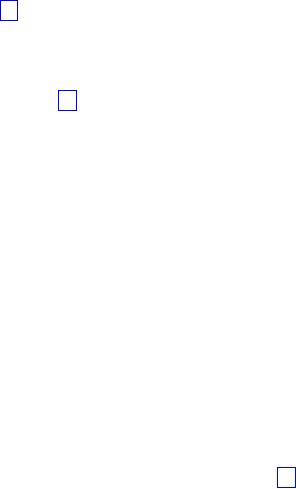
the
function copies neither
element. An element from one
sequence that has
equivalent
ordering with no element from the
other sequence is copied.
Thus, the
function
merges two ordered sequences to form
another ordered sequence
that is
effectively
the symmetric difference of two
sets.
If
x
and
first1
designate
regions of storage, the
range [x,
x + K) must
not
overlap
the range [first1,
last1).
If x
and
first2
designate
regions of storage,
the
range [x,
x + K) must
not overlap the range
[first2,
last2).
The function
evaluates
the ordering predicate X
< Y at most
2 *
((last1 - first1) + (last2 -
first2))
- 1 times.
The
second template function
behaves the same, except
that it replaces
operator<(X,
Y) with
pr(X,
Y).
set_union
template<class
InIt1, class InIt2, class
OutIt>
OutIt
set_union(InIt1 first1,
InIt1 last1,
InIt2
first2, InIt2 last2, OutIt x);
template<class
InIt1, class InIt2, class OutIt,
class
Pred>
OutIt
set_union(InIt1 first1,
InIt1 last1,
InIt2
first2, InIt2 last2, OutIt x, Pred
pr);
The
first template function
alternately copies values from two
sequences
designated
by iterators in the ranges [first1, last1)
and
[first2,
last2),
both
ordered
by (page 39)
operator<, to form a
merged sequence of length K beginning
at
x, also
ordered by operator<. The
function then returns x
+ K.
The
merge occurs without
altering the relative order
of elements within
either
sequence.
Moreover, for two elements from different
sequences that have
equivalent
ordering (page 39)
that would otherwise be copied to
adjacent elements,
the
function copies only the
element from the ordered
range [first1,
last1) and
skips
the other. Thus, the
function merges two ordered
sequences to form another
ordered
sequence that is effectively
the union of two
sets.
If
x
and
first1
designate
regions of storage, the
range [x,
x + K) must
not
overlap
the range [first1,
last1).
If x
and
first2
designate
regions of storage,
the
range [x,
x + K) must
not overlap the range
[first2,
last2).
The function
evaluates
the ordering predicate X
< Y at most
2 *
((last1 - first1) + (last2 -
first2))
- 1 times.
The
second template function
behaves the same, except
that it replaces
operator<(X,
Y) with
pr(X,
Y).
sort
template<class
RanIt>
void
sort(RanIt
first, RanIt last);
template<class
RanIt, class Pred>
void
sort(RanIt
first, RanIt last, Pred pr);
The
first template function
reorders the sequence
designated by iterators in
the
range
[first, last)
to form
a sequence ordered by (page 39)
operator<. Thus,
the
elements
are sorted in ascending
order.
The
function evaluates the
ordering predicate X
< Y at most
ceil((last -
first)
*
log(last - first)) times.
270
Standard
C++ Library

The
second template function
behaves the same, except
that it replaces
operator<(X,
Y) with
pr(X,
Y).
sort_heap
template<class
RanIt>
void
sort_heap(RanIt
first, RanIt last);
template<class
RanIt, class Pred>
void
sort_heap(RanIt
first, RanIt last, Pred pr);
The
first template function
reorders the sequence
designated by iterators in
the
range
[first, last)
to form
a sequence that is ordered by
(page 39)
operator<.
The
original sequence must
designate a heap, also
ordered by (page 39)
operator<.
Thus,
the elements are sorted in
ascending
order.
The
function evaluates the
ordering predicate X
< Y at most
ceil((last -
first)
*
log(last - first)) times.
The
second template function
behaves the same, except
that it replaces
operator<(X,
Y) with
pr(X,
Y).
stable_partition
template<class
BidIt, class Pred>
BidIt
stable_partition(BidIt first,
BidIt last,
Pred
pr);
The
template function reorders
the sequence designated by
iterators in the
range
[first,
last) and
determines the value K
such
that for each N
in
the range [0,
K)
the
predicate pr(*(first
+ N)) is
true, and for each N
in
the range [K,
last -
first)
the
predicate pr(*(first
+ N)) is
false. It does so without
altering the
relative
order of either the elements
designated by indexes in the
range [0,
K) or
the
elements designated by indexes in
the range [K,
last - first).
The function
then
returns first
+ K.
The
predicate must not alter
its operand. The function
evaluates pr(*(first
+ N))
exactly
last
- first times,
and swaps at most ceil((last
- first) * log(last -
first))
pairs of
elements. (Given enough
temporary storage, it can
replace the
swaps
with at most 2
* (last - first) assignments.)
stable_sort
template<class
BidIt>
void
stable_sort(BidIt first,
BidIt last);
template<class
BidIt, class Pred>
void
stable_sort(BidIt first,
BidIt last, Pred pr);
The
first template function
reorders the sequence
designated by iterators in
the
range
[first, last)
to form
a sequence ordered by (page 39)
operator<. It
does so
without
altering the relative order
of elements that have
equivalent ordering
(page
39).
Thus, the elements are
sorted in ascending
order.
The
function evaluates the
ordering predicate X
< Y at most
ceil((last -
first)
*
(log(last - first))^2) times.
(Given enough temporary
storage, it can
evaluate
the
predicate at most ceil((last
- first) * log(last - first)) times.)
The
second template function
behaves the same, except
that it replaces
operator<(X,
Y) with
pr(X,
Y).
271
Chapter
13. Standard Template Library
C++
swap
template<class
T>
void
swap(T& x, T&
y);
The
template function leaves the
value originally stored in y subsequently
stored in
x, and
the value originally stored
in x
subsequently
stored in y.
swap_ranges
template<class
FwdIt1, class
FwdIt2>
FwdIt2
swap_ranges(FwdIt1
first, FwdIt1 last,
FwdIt2
x);
The
template function evaluates swap(*(first +
N), *(x + N)) once
for each N
in
the
range [0,
last - first).
It then returns x
+ (last - first).
If x
and
first
designate
regions of storage, the
range [x,
x + (last - first)) must
not overlap
the
range [first,
last).
transform
template<class
InIt, class OutIt, class
Unop>
OutIt
transform(InIt first, InIt
last, OutIt x,
Unop
uop);
template<class
InIt1, class InIt2, class OutIt,
class
Binop>
OutIt
transform(InIt1 first1,
InIt1 last1,
InIt2
first2, OutIt x, Binop bop);
The
first template function
evaluates *(x
+ N) = uop(*(first + N)) once
for each
N
in
the range [0,
last - first).
It then returns x
+ (last - first).
The call
uop(*(first
+ N)) must
not alter *(first
+ N).
The
second template function
evaluates *(x
+ N) = bop(*(first1 + N), *(first2
+
N)) once for
each N
in
the range [0,
last1 - first1).
It then returns x
+ (last1
-
first1).
The call bop(*(first1
+ N), *(first2 + N)) must
not alter either
*(first1
+ N) or
*(first2 +
N).
unique
template<class
FwdIt>
FwdIt
unique(FwdIt
first, FwdIt last);
template<class
FwdIt, class Pred>
FwdIt
unique(FwdIt
first, FwdIt last, Pred pr);
The
first template function
effectively assigns first
to
X, then
executes the
statement:
if
(N == 0 || !(*(first + N) == V))
V
= *(first + N), *X++ = V;
once
for each N
in
the range [0,
last - first).
It then returns X. Thus,
the
function
repeatedly removes from the
sequence the second of a
pair of elements for
which
the predicate *(first
+ N) == *(first + N - 1) is
true, until only the
first
of
a sequence of equal elements
survives. Here, operator==
must
impose an
equivalence
relationship (page 39)
between its operands. It
does so without
altering
the relative order of
remaining elements, and returns
the iterator value
that
designates the end of the
revised sequence. The
function evaluates
the
predicate
at most last
- first times.
272
Standard
C++ Library

The
second template function
behaves the same, except
that it executes the
statement:
if
(N == 0 || !pr(*(first + N), V))
V
= *(first + N), *X++ = V;
unique_copy
template<class
InIt, class
OutIt>
OutIt
unique_copy(InIt
first,
InIt last, OutIt x);
template<class
InIt, class
OutIt,
class Pred>
OutIt
unique_copy(InIt
first,
InIt last, OutIt x,
Pred
pr);
The
first template function
effectively executes the
statement:
if
(N == 0 || !(*(first + N) == V))
V
= *(first + N), *x++ = V;
once
for each N
in
the range [0,
last - first).
It then returns x. Thus,
the
function
repeatedly removes from the
sequence it copies the
second of a pair of
elements
for which the predicate *(first + N) ==
*(first + N - 1) is
true, until
only
the first of a sequence of
equal elements survives.
Here, operator==
must
impose
an equivalence relationship (page 39)
between its operands. It
does so
without
altering the relative order
of remaining elements, and returns
the iterator
value
that designates the end of
the copied sequence.
If
x
and
first
designate
regions of storage, the
range [x,
x + (last - first))
must
not overlap the range
[first,
last).
The
second template function
behaves the same, except
that it executes the
statement:
if
(N == 0 || !pr(*(first + N), V))
V
= *(first + N), *x++ = V;
upper_bound
template<class
FwdIt, class T>
FwdIt
upper_bound(FwdIt
first, FwdIt last,
const
T& val);
template<class
FwdIt, class T, class
Pred>
FwdIt
upper_bound(FwdIt
first, FwdIt last,
const
T& val, Pred pr);
The
first template function
determines the highest value
of N
in
the range (0,
last
-
first] such
that, for each M
in
the range [0,
N) the
predicate !(val
< *(first +
M))
is
true, where the elements
designated by iterators in the
range [first,
last)
form
a sequence ordered by (page 39)
operator<. It
then returns first
+ N.
Thus,
the
function determines the
highest position before
which val
can be
inserted in
the
sequence and still preserve
its ordering.
If
FwdIt
is a
random-access iterator type,
the function evaluates the
ordering
predicate
X
< Y at most
ceil(log(last -
first)) + 1 times.
Otherwise, the
function
evaluates the predicate a
number of times proportional to
last
- first.
The
second template function
behaves the same, except
that it replaces
operator<(X,
Y) with
pr(X,
Y).
273
Chapter
13. Standard Template Library
C++

<deque>
namespace
std {
template<class
T, class A>
class
deque;
//
TEMPLATE FUNCTIONS
template<class
T, class A>
bool
operator==(
const
deque<T, A>& lhs,
const
deque<T, A>& rhs);
template<class
T, class A>
bool
operator!=(
const
deque<T, A>& lhs,
const
deque<T, A>& rhs);
template<class
T, class A>
bool
operator<(
const
deque<T, A>& lhs,
const
deque<T, A>& rhs);
template<class
T, class A>
bool
operator>(
const
deque<T, A>& lhs,
const
deque<T, A>& rhs);
template<class
T, class A>
bool
operator<=(
const
deque<T, A>& lhs,
const
deque<T, A>& rhs);
template<class
T, class A>
bool
operator>=(
const
deque<T, A>& lhs,
const
deque<T, A>& rhs);
template<class
T, class A>
void
swap(
deque<T,
A>& lhs,
deque<T,
A>& rhs);
};
template
class deque
and
several supporting
templates.
deque
template<class
T, class A = allocator<T>
>
class
deque
{
public:
typedef
A allocator_type;
typedef
typename A::pointer pointer;
typedef
typename A::const_pointer const_pointer;
typedef
typename A::reference reference;
typedef
typename A::const_reference const_reference;
typedef
typename A::value_type value_type;
typedef
T0 iterator;
typedef
T1 const_iterator;
typedef
T2 size_type;
274
Standard
C++ Library
typedef
T3 difference_type;
typedef
reverse_iterator<const_iterator>
const_reverse_iterator;
typedef
reverse_iterator<iterator>
reverse_iterator;
deque();
explicit
deque(const
A& al);
explicit
deque(size_type
n);
deque(size_type
n, const T& v);
deque(size_type
n, const T& v,
const
A& al);
deque(const
deque& x);
template<class
InIt>
deque(InIt first, InIt
last);
template<class
InIt>
deque(InIt first, InIt
last, const A& al);
iterator
begin();
const_iterator
begin()
const;
iterator
end();
const_iterator
end()
const;
reverse_iterator
rbegin();
const_reverse_iterator
rbegin()
const;
reverse_iterator
rend();
const_reverse_iterator
rend()
const;
void
resize(size_type
n);
void
resize(size_type
n, T x);
size_type
size()
const;
size_type
max_size()
const;
bool
empty()
const;
A
get_allocator()
const;
reference
at(size_type
pos);
const_reference
at(size_type
pos) const;
reference
operator[](size_type
pos);
const_reference
operator[](size_type
pos);
reference
front();
const_reference
front()
const;
reference
back();
const_reference
back()
const;
void
push_front(const
T& x);
void
pop_front();
void
push_back(const
T& x);
void
pop_back();
template<class
InIt>
void
assign(InIt first, InIt
last);
void
assign(size_type
n, const T& x);
iterator
insert(iterator it,
const T& x);
void
insert(iterator it,
size_type n, const T& x);
template<class
InIt>
void
insert(iterator it,
InIt first, InIt last);
iterator
erase(iterator
it);
iterator
erase(iterator first,
iterator last);
void
clear();
void
swap(deque&
x);
};
The
template class describes an object
that controls a varying-length
sequence of
elements
of type T. The
sequence is represented in a way that
permits insertion
and
removal of an element at either
end with a single element
copy (constant
time).
Such operations in the
middle of the sequence
require element copies
and
assignments
proportional to the number of
elements in the sequence
(linear time).
The
object allocates and frees
storage for the sequence it
controls through a
stored
allocator
object (page 337)
of class A. Such
an allocator object must
have the same
external
interface as an object of template class
allocator (page 337).
Note that the
stored
allocator object is not
copied
when the container object is
assigned.
275
Chapter
13. Standard Template Library
C++
Deque
reallocation occurs
when a member function must
insert or erase
elements
of
the controlled
sequence:
v
If an
element is inserted into an
empty sequence, or if an element is
erased to
leave
an empty sequence, then
iterators earlier returned by
begin()
and
end()
become
invalid.
v
If an
element is inserted at first(), then
all iterators but no
references, that
designate
existing elements become
invalid.
v
If an
element is inserted at end(), then
end()
and
all iterators, but no
references,
that
designate existing elements
become invalid.
v
If an
element is erased at first(), only
that iterator and references to
the erased
element
become invalid.
v
If an
element is erased at last()
- 1,
only that iterator, last(), and
references to
the
erased element become
invalid.
v
Otherwise,
inserting or erasing an element
invalidates all iterators
and
references.
deque::allocator_type
typedef
A allocator_type;
The
type is a synonym for the
template parameter A.
deque::assign
template<class
InIt>
void
assign(InIt first, InIt
last);
void
assign(size_type
n, const T& x);
If
InIt
is an
integer type, the first
member function behaves the
same as
assign((size_type)first,
(T)last).
Otherwise, the first member
function replaces
the
sequence controlled by *this
with
the sequence [first,
last),
which must not
overlap
the initial controlled
sequence. The second member
function replaces the
sequence
controlled by *this
with a
repetition of n
elements
of value x.
deque::at
const_reference
at(size_type
pos) const;
reference
at(size_type
pos);
The
member function returns a
reference to the element of
the controlled
sequence
at
position pos. If
that position is invalid,
the function throws an
object of class
out_of_range.
deque::back
reference
back();
const_reference
back()
const;
The
member function returns a
reference to the last
element of the
controlled
sequence,
which must be
non-empty.
deque::begin
const_iterator
begin()
const;
iterator
begin();
The
member function returns a
random-access iterator that
points at the first
element
of the sequence (or just
beyond the end of an empty
sequence).
276
Standard
C++ Library
deque::clear
void
clear();
The
member function calls erase(
begin(), end()).
deque::const_iterator
typedef
T1 const_iterator;
The
type describes an object
that can serve as a constant
random-access iterator for
the
controlled sequence. It is described
here as a synonym for
the
implementation-defined
type T1.
deque::const_pointer
typedef
typename A::const_pointer const_pointer;
The
type describes an object
that can serve as a constant
pointer to an element of
the
controlled sequence.
deque::const_reference
typedef
typename A::const_reference const_reference;
The
type describes an object
that can serve as a constant
reference to an element of
the
controlled sequence.
deque::const_reverse_iterator
typedef
reverse_iterator<const_iterator>
const_reverse_iterator;
The
type describes an object
that can serve as a constant
reverse random-access
iterator
for the controlled
sequence.
deque::deque
deque();
explicit
deque(const
A& al);
explicit
deque(size_type
n);
deque(size_type
n, const T& v);
deque(size_type
n, const T& v,
const
A& al);
deque(const
deque& x);
template<class
InIt>
deque(InIt first, InIt
last);
template<class
InIt>
deque(InIt first, InIt
last, const A& al);
All
constructors store an allocator
object (page 337)
and initialize the
controlled
sequence.
The allocator object is the
argument al, if
present. For the
copy
constructor,
it is x.get_allocator().
Otherwise, it is A().
The
first two constructors specify an
empty initial controlled
sequence. The third
constructor
specifies a repetition of n
elements
of value T(). The
fourth and fifth
constructors
specify a repetition of n
elements
of value x. The
sixth constructor
specifies
a copy of the sequence
controlled by x. If InIt is an
integer type, the
last
two
constructors specify a repetition of
(size_type)first
elements
of value
(T)last.
Otherwise, the last two
constructors specify the
sequence [first,
last).
deque::difference_type
typedef
T3 difference_type;
277
Chapter
13. Standard Template Library
C++

The
signed integer type
describes an object that can
represent the
difference
between
the addresses of any two
elements in the controlled
sequence. It is
described
here as a synonym for the
implementation-defined type T3.
deque::empty
bool
empty()
const;
The
member function returns true
for an empty controlled
sequence.
deque::end
const_iterator
end()
const;
iterator
end();
The
member function returns a
random-access iterator that
points just beyond
the
end
of the sequence.
deque::erase
iterator
erase(iterator
it);
iterator
erase(iterator first,
iterator last);
The
first member function
removes the element of the
controlled sequence
pointed
to
by it. The
second member function
removes the elements of the
controlled
sequence
in the range [first,
last).
Both return an iterator that
designates the
first
element remaining beyond any
elements removed, or end()
if no
such element
exists.
Removing
N
elements
causes N
destructor
calls and an assignment for each of
the
elements
between the insertion point
and the nearer end of the
sequence.
Removing
an element at either end
invalidates (page 279)
only iterators and
references
that designate the erased
elements. Otherwise, erasing an
element
invalidates
all iterators and
references.
The
member functions never throw an
exception.
deque::front
reference
front();
const_reference
front()
const;
The
member function returns a
reference to the first
element of the
controlled
sequence,
which must be
non-empty.
deque::get_allocator
A
get_allocator()
const;
The
member function returns the
stored allocator object
(page 337).
deque::insert
iterator
insert(iterator it,
const T& x);
void
insert(iterator it,
size_type n, const T& x);
template<class
InIt>
void
insert(iterator it,
InIt first, InIt last);
Each
of the member functions
inserts, before the element
pointed to by it
in
the
controlled
sequence, a sequence specified by
the remaining operands. The
first
member
function inserts a single
element with value x
and
returns an iterator
that
points
to the newly inserted
element. The second member
function inserts a
repetition
of n
elements
of value x.
278
Standard
C++ Library

If
InIt
is an
integer type, the last
member function behaves the
same as
insert(it,
(size_type)first, (T)last).
Otherwise, the last member
function
inserts
the sequence [first,
last),
which must not
overlap
the initial
controlled
sequence.
When
inserting a single element,
the number of element copies
is linear in the
number
of elements between the
insertion point and the
nearer end of the
sequence.
When inserting a single
element at either end of the
sequence, the
amortized
number of element copies is
constant. When inserting N elements,
the
number
of element copies is linear in
N
plus
the number of elements
between the
insertion
point and the nearer end of
the sequence -- except when
the template
member
is specialized for InIt
an
input or forward iterator, which
behaves like N
single
insertions. Inserting an element at
either end invalidates (page
276)
all
iterators,
but no references, that
designate existing elements.
Otherwise, inserting
an
element invalidates all
iterators and references.
If
an exception is thrown during the
insertion of a single element,
the container is
left
unaltered and the exception is
rethrown. If an exception is thrown
during the
insertion
of multiple elements, and the
exception is not thrown while
copying an
element,
the container is left
unaltered and the exception is
rethrown.
deque::iterator
typedef
T0 iterator;
The
type describes an object
that can serve as a
random-access iterator for
the
controlled
sequence. It is described here as a
synonym for the
implementation-defined
type T0.
deque::max_size
size_type
max_size()
const;
The
member function returns the
length of the longest
sequence that the object
can
control.
deque::operator[]
const_reference
operator[](size_type
pos) const;
reference
operator[](size_type
pos);
The
member function returns a
reference to the element of
the controlled
sequence
at
position pos. If
that position is invalid,
the behavior is
undefined.
deque::pointer
typedef
typename A::pointer pointer;
The
type describes an object
that can serve as a pointer
to an element of the
controlled
sequence.
deque::pop_back
void
pop_back();
The
member function removes the
last element of the
controlled sequence,
which
must
be non-empty. Removing the
element invalidates (page 276)
only iterators
and
references that designate
the erased element.
The
member function never throws
an exception.
279
Chapter
13. Standard Template Library
C++

deque::pop_front
void
pop_front();
The
member function removes the
first element of the
controlled sequence,
which
must
be non-empty. Removing the
element invalidates (page 276)
only iterators
and
references that designate
the erased element.
The
member function never throws
an exception.
deque::push_back
void
push_back(const
T& x);
The
member function inserts an
element with value x
at
the end of the
controlled
sequence.
Inserting the element
invalidates (page 276)
all iterators, but
no
references,
to existing elements.
If
an exception is thrown, the
container is left unaltered and
the exception is
rethrown.
deque::push_front
void
push_front(const
T& x);
The
member function inserts an
element with value x
at
the beginning of the
controlled
sequence. Inserting the
element invalidates (page 276)
all iterators,
but
no
references, to existing
elements.
If
an exception is thrown, the
container is left unaltered and
the exception is
rethrown.
deque::rbegin
const_reverse_iterator
rbegin()
const;
reverse_iterator
rbegin();
The
member function returns a
reverse iterator that points
just beyond the end
of
the
controlled sequence. Hence, it
designates the beginning of
the reverse
sequence.
deque::reference
typedef
typename A::reference reference;
The
type describes an object
that can serve as a
reference to an element of
the
controlled
sequence.
deque::rend
const_reverse_iterator
rend()
const;
reverse_iterator
rend();
The
member function returns a
reverse iterator that points
at the first element
of
the
sequence (or just beyond
the end of an empty
sequence). Hence, it
designates
the
end of the reverse
sequence.
deque::resize
void
resize(size_type
n);
void
resize(size_type
n, T x);
The
member functions both ensure
that size()
henceforth
returns n. If it
must
make
the controlled sequence
longer, the first member
function appends
elements
280
Standard
C++ Library
with
value T(), while
the second member function
appends elements with value x.
To
make the controlled sequence
shorter, both member
functions call
erase(begin()
+ n, end()).
deque::reverse_iterator
typedef
reverse_iterator<iterator>
reverse_iterator;
The
type describes an object
that can serve as a reverse
random-access iterator for
the
controlled sequence.
deque::size
size_type
size()
const;
The
member function returns the
length of the controlled
sequence.
deque::size_type
typedef
T2 size_type;
The
unsigned integer type
describes an object that can
represent the length of
any
controlled
sequence. It is described here as a
synonym for the
implementation-defined
type T2.
deque::swap
void
swap(deque&
x);
The
member function swaps the
controlled sequences between *this
and
x.
If
get_allocator()
== x.get_allocator(),
it does so in constant time, it
throws no
exceptions,
and it invalidates no references,
pointers, or iterators that
designate
elements
in the two controlled sequences.
Otherwise, it performs a number
of
element
assignments and constructor calls
proportional to the number of
elements
in
the two controlled
sequences.
deque::value_type
typedef
typename A::value_type value_type;
The
type is a synonym for the
template parameter T.
operator!=
template<class
T, class A>
bool
operator!=(
const
deque <T, A>& lhs,
const
deque <T, A>& rhs);
The
template function returns !(lhs ==
rhs).
operator==
template<class
T, class A>
bool
operator==(
const
deque <T, A>& lhs,
const
deque <T, A>& rhs);
The
template function overloads operator==
to
compare two objects of
template
class
deque (page 274).
The function returns lhs.size() ==
rhs.size() &&
equal(lhs.
begin(), lhs. end(), rhs.begin()).
281
Chapter
13. Standard Template Library
C++
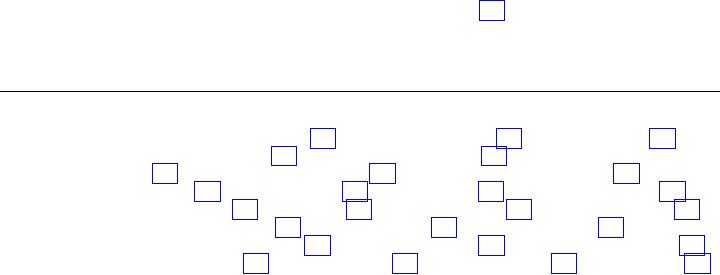
operator<
template<class
T, class A>
bool
operator<(
const
deque <T, A>& lhs,
const
deque <T, A>& rhs);
The
template function overloads operator<
to
compare two objects of
template
class
deque. The function returns
lexicographical_compare(lhs.
begin(), lhs.
end(),
rhs.begin(), rhs.end()).
operator<=
template<class
T, class A>
bool
operator<=(
const
deque <T, A>& lhs,
const
deque <T, A>& rhs);
The
template function returns !(rhs <
lhs).
operator>
template<class
T, class A>
bool
operator>(
const
deque <T, A>& lhs,
const
deque <T, A>& rhs);
The
template function returns rhs <
lhs.
operator>=
template<class
T, class A>
bool
operator>=(
const
deque <T, A>& lhs,
const
deque <T, A>& rhs);
The
template function returns !(lhs <
rhs).
swap
template<class
T, class A>
void
swap(
deque
<T, A>& lhs,
deque
<T, A>& rhs);
The
template function executes lhs.swap
(page 281)(rhs).
Portions
derived from work copyright
� 1994 by Hewlett-Packard Company.
All rights
reserved.
<functional>
282
Standard
C++ Library

unary_negate
(page 292)
namespace
std {
template<class
Arg, class Result>
struct
unary_function;
template<class
Arg1, class Arg2, class
Result>
struct
binary_function;
template<class
T>
struct
plus;
template<class
T>
struct
minus;
template<class
T>
struct
multiplies;
template<class
T>
struct
divides;
template<class
T>
struct
modulus;
template<class
T>
struct
negate;
template<class
T>
struct
equal_to;
template<class
T>
struct
not_equal_to;
template<class
T>
struct
greater;
template<class
T>
struct
less;
template<class
T>
struct
greater_equal;
template<class
T>
struct
less_equal;
template<class
T>
struct
logical_and;
template<class
T>
struct
logical_or;
template<class
T>
struct
logical_not;
template<class
Pred>
struct
unary_negate;
template<class
Pred>
struct
binary_negate;
template<class
Pred>
class
binder1st;
template<class
Pred>
class
binder2nd;
template<class
Arg, class Result>
class
pointer_to_unary_function;
template<class
Arg1, class Arg2, class
Result>
class
pointer_to_binary_function;
template<class
R, class T>
struct
mem_fun_t;
template<class
R, class T, class A>
struct
mem_fun1_t;
template<class
R, class T>
struct
const_mem_fun_t;
template<class
R, class T, class A>
struct
const_mem_fun1_t;
template<class
R, class T>
struct
mem_fun_ref_t;
template<class
R, class T, class A>
struct
mem_fun1_ref_t;
template<class
R, class T>
283
Chapter
13. Standard Template Library
C++
struct
const_mem_fun_ref_t;
template<class
R, class T, class A>
struct
const_mem_fun1_ref_t;
//
TEMPLATE FUNCTIONS
template<class
Pred>
unary_negate<Pred>
not1(const
Pred& pr);
template<class
Pred>
binary_negate<Pred>
not2(const
Pred& pr);
template<class
Pred, class T>
binder1st<Pred>
bind1st(const
Pred& pr, const T& x);
template<class
Pred, class T>
binder2nd<Pred>
bind2nd(const
Pred& pr, const T& x);
template<class
Arg, class Result>
pointer_to_unary_function<Arg,
Result>
ptr_fun(Result
(*)(Arg));
template<class
Arg1, class Arg2, class
Result>
pointer_to_binary_function<Arg1,
Arg2, Result>
ptr_fun(Result
(*)(Arg1, Arg2));
template<class
R, class T>
mem_fun_t<R,
T> mem_fun(R
(T::*pm)());
template<class
R, class T, class A>
mem_fun1_t<R,
T, A> mem_fun(R
(T::*pm)(A arg));
template<class
R, class T>
const_mem_fun_t<R,
T> mem_fun(R
(T::*pm)() const);
template<class
R, class T, class A>
const_mem_fun1_t<R,
T, A> mem_fun(R
(T::*pm)(A arg)
const);
template<class
R, class T>
mem_fun_ref_t<R,
T> mem_fun_ref(R
(T::*pm)());
template<class
R, class T, class A>
mem_fun1_ref_t<R,
T, A>
mem_fun_ref(R
(T::*pm)(A arg));
template<class
R, class T>
const_mem_fun_ref_t<R,
T> mem_fun_ref(R
(T::*pm)() const);
template<class
R, class T, class A>
const_mem_fun1_ref_t<R,
T, A>
mem_fun_ref(R
(T::*pm)(A arg)
const);
}
#ifdef
_VACPP_TR1
namespace
tr1 {
template
<class _Ty>
struct
hash;
template
<>
struct hash<bool>;
template
<>
struct hash<char>;
template
<>
struct hash<signed
char>;
template
<>
struct hash<unsigned char>;
template
<>
struct hash<wchar_t>;
template
<>
struct hash<short>;
template
<>
struct hash<unsigned short>;
template
<>
struct hash<int>;
template
<>
struct hash<unsigned int>;
template
<>
struct hash<long>;
template
<>
struct hash<unsigned long>;
template
<>
struct hash<long
long>;
template
<>
struct hash<unsigned long
long>;
template
<>
struct hash<float>;
template
<>
struct hash<double>;
template
<>
struct hash<long
double>;
template
<class
_T> struct hash<_T
*>;
template
<class _CharT, class
_Traits, class
_Alloc>
struct
hash<basic_string<_CharT, _Traits,
_Alloc> >;
284
Standard
C++ Library

}
#endif
/* def _VACPP_TR1 */
Include
the STL (page 1)
standard header <functional>
to
define several
templates
that
help construct function
objects,
objects of a type that
defines operator().
A
function
object can thus be a
function pointer, but in the
more general case
the
object
can store additional
information that can be used
during a function
call.
binary_function
template<class
Arg1, class Arg2, class
Result>
struct
binary_function
{
typedef
Arg1 first_argument_type;
typedef
Arg2 second_argument_type;
typedef
Result result_type;
};
The
template class serves as a base for
classes that define a member
function of the
form:
result_type
operator()(const
first_argument_type&,
const
second_argument_type&) const
Hence,
all such binary
functions can
refer to their first
argument type as
first_argument_type, their
second argument type as
second_argument_type,
and
their
return type as result_type.
binary_negate
template<class
Pred>
class
binary_negate
:
public binary_function<
typename
Pred::first_argument_type,
typename
Pred::second_argument_type, bool>
{
public:
explicit
binary_negate(const
Pred& pr);
bool
operator()(
const
typename Pred::first_argument_type& x,
const
typename Pred::second_argument_type& y)
const;
};
The
template class stores a copy of
pr, which
must be a binary function
(page 285)
object.
It defines its member
function operator()
as
returning !pr(x,
y).
bind1st
template<class
Pred, class T>
binder1st<Pred>
bind1st(const
Pred& pr, const T& x);
The
function returns binder1st<Pred>(pr,
typename
Pred::first_argument_type(x)).
bind2nd
template<class
Pred, class T>
binder2nd<Pred>
bind2nd(const
Pred& pr, const T& y);
The
function returns binder2nd<Pred>(pr,
typename
Pred::second_argument_type(y)).
285
Chapter
13. Standard Template Library
C++
binder1st
template<class
Pred>
class
binder1st
:
public unary_function<
typename
Pred::second_argument_type,
typename
Pred::result_type> {
public:
typedef
typename Pred::second_argument_type
argument_type;
typedef
typename Pred::result_type
result_type;
binder1st(const
Pred& pr,
const
typename Pred::first_argument_type& x);
result_type
operator()(const
argument_type& y) const;
protected:
Pred
op;
typename
Pred::first_argument_type value;
};
The
template class stores a copy of
pr, which
must be a binary function
(page 285)
object,
in op,
and a copy of x
in
value.
It defines its member
function operator()
as
returning op(value,
y).
binder2nd
template<class
Pred>
class
binder2nd
:
public unary_function<
typename
Pred::first_argument_type,
typename
Pred::result_type> {
public:
typedef
typename Pred::first_argument_type
argument_type;
typedef
typename Pred::result_type
result_type;
binder2nd(const
Pred& pr,
const
typename Pred::second_argument_type& y);
result_type
operator()(const
argument_type& x) const;
protected:
Pred
op;
typename
Pred::second_argument_type value;
};
The
template class stores a copy of
pr, which
must be a binary function
(page 285)
object,
in op,
and a copy of y
in
value.
It defines its member
function operator()
as
returning op(x,
value).
const_mem_fun_t
template<class
R, class T>
struct
const_mem_fun_t
:
public unary_function<T *, R>
{
explicit
const_mem_fun_t(R
(T::*pm)() const);
R
operator()(const
T *p) const;
};
The
template class stores a copy of
pm, which
must be a pointer to a
member
function
of class T, in a
private member object. It
defines its member
function
operator()
as
returning (p->*pm)()
const.
286
Standard
C++ Library
const_mem_fun_ref_t
template<class
R, class T>
struct
const_mem_fun_ref_t
:
public unary_function<T, R>
{
explicit
const_mem_fun_t(R
(T::*pm)() const);
R
operator()(const
T& x) const;
};
The
template class stores a copy of
pm, which
must be a pointer to a
member
function
of class T, in a
private member object. It
defines its member
function
operator()
as
returning (x.*Pm)()
const.
const_mem_fun1_t
template<class
R, class T, class A>
struct
const_mem_fun1_t
:
public binary_function<T *, A, R>
{
explicit
const_mem_fun1_t(R
(T::*pm)(A) const);
R
operator()(const
T *p, A arg) const;
};
The
template class stores a copy of
pm, which
must be a pointer to a
member
function
of class T, in a
private member object. It
defines its member
function
operator()
as
returning (p->*pm)(arg)
const.
const_mem_fun1_ref_t
template<class
R, class T, class A>
struct
const_mem_fun1_ref_t
:
public binary_function<T, A, R>
{
explicit
const_mem_fun1_ref_t(R
(T::*pm)(A) const);
R
operator()(const
T& x, A arg) const;
};
The
template class stores a copy of
pm, which
must be a pointer to a
member
function
of class T, in a
private member object. It
defines its member
function
operator()
as
returning (x.*pm)(arg)
const.
divides
template<class
T>
struct
divides
:
public binary_function<T, T, T>
{
T
operator()(const
T& x, const T& y) const;
};
The
template class defines its
member function as returning x / y.
equal_to
template<class
T>
struct
equal_to
:
public binary_function<T, T, bool>
{
bool
operator()(const
T& x, const T& y) const;
};
The
template class defines its
member function as returning x ==
y.
287
Chapter
13. Standard Template Library
C++
greater
template<class
T>
struct
greater
:
public binary_function<T, T, bool>
{
bool
operator()(const
T& x, const T& y) const;
};
The
template class defines its
member function as returning x >
y.
The member
function
defines a total ordering
(page 401),
even if T
is an
object pointer type.
greater_equal
template<class
T>
struct
greater_equal
:
public binary_function<T, T, bool>
{
bool
operator()(const
T& x, const T& y) const;
};
The
template class defines its
member function as returning x >=
y.
The member
function
defines a total ordering
(page 401),
even if T
is an
object pointer type.
hash
namespace
tr1 {
template
<class T>
struct
hash : public std::unary_function<T,
std::size_t>
{
std::size_t
operator()(T val) const;
};
}
The
template class is used as the
default hash function by the
hashed
associative
containers.
Its member function
operator()
returns
an unspecified value, but
equal
arguments
yield the same
result.
less
template<class
T>
struct
less
:
public binary_function<T, T, bool>
{
bool
operator()(const
T& x, const T& y) const;
};
The
template class defines its
member function as returning x <
y.
The member
function
defines a total ordering
(page 401),
even if T
is an
object pointer type.
less_equal
template<class
T>
struct
less_equal
:
public binary_function<T, T, bool>
{
bool
operator()(const
T& x, const T& y) const;
};
The
template class defines its
member function as returning x <=
y.
The member
function
defines a total ordering
(page 401),
even if T
is an
object pointer type.
logical_and
template<class
T>
struct
logical_and
:
public binary_function<T, T, bool>
{
bool
operator()(const
T& x, const T& y) const;
};
288
Standard
C++ Library
The
template class defines its
member function as returning x &&
y.
logical_not
template<class
T>
struct
logical_not
:
public unary_function<T, bool>
{
bool
operator()(const
T& x) const;
};
The
template class defines its
member function as returning !x.
logical_or
template<class
T>
struct
logical_or
:
public binary_function<T, T, bool>
{
bool
operator()(const
T& x, const T& y) const;
};
The
template class defines its
member function as returning x ||
y.
mem_fun
template<class
R, class T>
mem_fun_t<R,
T> mem_fun(R
(T::*pm)());
template<class
R, class T, class A>
mem_fun1_t<R,
T, A> mem_fun(R
(T::*pm)(A));
template<class
R, class T>
const_mem_fun_t<R,
T> mem_fun(R
(T::*pm)() const);
template<class
R, class T, class A>
const_mem_fun1_t<R,
T, A> mem_fun(R
(T::*pm)(A) const);
The
template function returns pm cast to
the return type.
mem_fun_ref
template<class
R, class T>
mem_fun_ref_t<R,
T> mem_fun_ref(R
(T::*pm)());
template<class
R, class T, class A>
mem_fun1_ref_t<R,
T, A> mem_fun_ref(R
(T::*pm)(A));
template<class
R, class T>
const_mem_fun_ref_t<R,
T> mem_fun_ref(R
(T::*pm)() const);
template<class
R, class T, class A>
const_mem_fun1_ref_t<R,
T, A> mem_fun_ref(R
(T::*pm)(A) const);
The
template function returns pm cast to
the return type.
mem_fun_t
template<class
R, class T>
struct
mem_fun_t
:
public unary_function<T *, R>
{
explicit
mem_fun_t(R
(T::*pm)());
R
operator()(T *p)
const;
};
The
template class stores a copy of
pm, which
must be a pointer to a
member
function
of class T, in a
private member object. It
defines its member
function
operator()
as
returning (p->*pm)().
289
Chapter
13. Standard Template Library
C++
mem_fun_ref_t
template<class
R, class T>
struct
mem_fun_ref_t
:
public unary_function<T, R>
{
explicit
mem_fun_t(R
(T::*pm)());
R
operator()(T& x)
const;
};
The
template class stores a copy of
pm, which
must be a pointer to a
member
function
of class T, in a
private member object. It
defines its member
function
operator()
as
returning (x.*Pm)().
mem_fun1_t
template<class
R, class T, class A>
struct
mem_fun1_t
:
public binary_function<T *, A, R>
{
explicit
mem_fun1_t(R
(T::*pm)(A));
R
operator()(T *p, A
arg) const;
};
The
template class stores a copy of
pm, which
must be a pointer to a
member
function
of class T, in a
private member object. It
defines its member
function
operator()
as
returning (p->*pm)(arg).
mem_fun1_ref_t
template<class
R, class T, class A>
struct
mem_fun1_ref_t
:
public binary_function<T, A, R>
{
explicit
mem_fun1_ref_t(R
(T::*pm)(A));
R
operator()(T& x, A
arg) const;
};
The
template class stores a copy of
pm, which
must be a pointer to a
member
function
of class T, in a
private member object. It
defines its member
function
operator()
as
returning (x.*pm)(arg).
minus
template<class
T>
struct
minus
:
public binary_function<T, T, T>
{
T
operator()(const
T& x, const T& y) const;
};
The
template class defines its
member function as returning x - y.
modulus
template<class
T>
struct
modulus
:
public binary_function<T, T, T>
{
T
operator()(const
T& x, const T& y) const;
};
The
template class defines its
member function as returning x % y.
multiplies
template<class
T>
struct
multiplies
:
public binary_function<T, T, T>
{
T
operator()(const
T& x, const T& y) const;
};
290
Standard
C++ Library
The
template class defines its
member function as returning x * y.
negate
template<class
T>
struct
negate
:
public unary_function<T, T>
{
T
operator()(const
T& x) const;
};
The
template class defines its
member function as returning -x.
not1
template<class
Pred>
unary_negate<Pred>
not1(const
Pred& pr);
The
template function returns unary_negate<Pred>(pr).
not2
template<class
Pred>
binary_negate<Pred>
not2(const
Pred& pr);
The
template function returns binary_negate<Pred>(pr).
not_equal_to
template<class
T>
struct
not_equal_to
:
public binary_function<T, T, bool>
{
bool
operator()(const
T& x, const T& y) const;
};
The
template class defines its
member function as returning x !=
y.
plus
template<class
T>
struct
plus
:
public binary_function<T, T, T>
{
T
operator()(const
T& x, const T& y) const;
};
The
template class defines its
member function as returning x + y.
pointer_to_binary_function
template<class
Arg1, class Arg2, class
Result>
class
pointer_to_binary_function
:
public binary_function<Arg1, Arg2,
Result> {
public:
explicit
pointer_to_binary_function(
Result
(*pf)(Arg1, Arg2));
Result
operator()(const
Arg1 x, const Arg2 y)
const;
};
The
template class stores a copy of
pf. It
defines its member function
operator()
as
returning (*pf)(x,
y).
pointer_to_unary_function
template<class
Arg, class Result>
class
pointer_to_unary_function
:
public unary_function<Arg, Result>
{
291
Chapter
13. Standard Template Library
C++
public:
explicit
pointer_to_unary_function(
Result
(*pf)(Arg));
Result
operator()(const
Arg x) const;
};
The
template class stores a copy of
pf. It
defines its member function
operator()
as
returning (*pf)(x).
ptr_fun
template<class
Arg, class Result>
pointer_to_unary_function<Arg,
Result>
ptr_fun(Result
(*pf)(Arg));
template<class
Arg1, class Arg2, class
Result>
pointer_to_binary_function<Arg1,
Arg2, Result>
ptr_fun(Result
(*pf)(Arg1, Arg2));
The
first template function
returns pointer_to_unary_function<Arg,
Result>(pf).
The
second template function
returns pointer_to_binary_function<Arg1,
Arg2,
Result>(pf).
unary_function
template<class
Arg, class Result>
struct
unary_function
{
typedef
Arg argument_type;
typedef
Result result_type;
};
The
template class serves as a base for
classes that define a member
function of the
form:
result_type
operator()(const argument_type&)
const
Hence,
all such unary
functions can
refer to their sole argument
type as
argument_type
and
their return type as
result_type.
unary_negate
template<class
Pred>
class
unary_negate
:
public unary_function<
typename
Pred::argument_type,
bool>
{
public:
explicit
unary_negate(const
Pred& pr);
bool
operator()(
const
typename Pred::argument_type& x)
const;
};
The
template class stores a copy of
pr, which
must be a unary function
(page 292)
object.
It defines its member
function operator()
as
returning !pr(x).
Portions
derived from work copyright
� 1994 by Hewlett-Packard Company.
All rights
reserved.
292
Standard
C++ Library

<iterator>
namespace
std {
struct
input_iterator_tag;
struct
output_iterator_tag;
struct
forward_iterator_tag;
struct
bidirectional_iterator_tag;
struct
random_access_iterator_tag;
//
TEMPLATE CLASSES
template<class
C, class T, class Dist,
class
Pt, class Rt>
struct
iterator;
template<class
It>
struct
iterator_traits;
template<class
T>
struct
iterator_traits<T
*>
template<class
RanIt>
class
reverse_iterator;
template<class
Cont>
class
back_insert_iterator;
template<class
Cont>
class
front_insert_iterator;
template<class
Cont>
class
insert_iterator;
template<class
U, class E, class T, class
Dist>
class
istream_iterator;
template<class
U, class E, class T>
class
ostream_iterator;
template<class
E, class T>
class
istreambuf_iterator;
template<class
E, class T>
class
ostreambuf_iterator;
//
TEMPLATE FUNCTIONS
template<class
RanIt>
bool
operator==(
const
reverse_iterator<RanIt>& lhs,
const
reverse_iterator<RanIt>& rhs);
template<class
U, class E, class T, class
Dist>
bool
operator==(
const
istream_iterator<U, E, T, Dist>& lhs,
const
istream_iterator<U, E, T, Dist>&
rhs);
template<class
E, class T>
bool
operator==(
const
istreambuf_iterator<E, T>& lhs,
const
istreambuf_iterator<E, T>& rhs);
template<class
RanIt>
bool
operator!=(
const
reverse_iterator<RanIt>& lhs,
const
reverse_iterator<RanIt>& rhs);
template<class
U, class E, class T, class
Dist>
bool
operator!=(
const
istream_iterator<U, E, T, Dist>& lhs,
293
Chapter
13. Standard Template Library
C++
const
istream_iterator<U, E, T, Dist>&
rhs);
template<class
E, class T>
bool
operator!=(
const
istreambuf_iterator<E, T>& lhs,
const
istreambuf_iterator<E, T>& rhs);
template<class
RanIt>
bool
operator<(
const
reverse_iterator<RanIt>& lhs,
const
reverse_iterator<RanIt>& rhs);
template<class
RanIt>
bool
operator>(
const
reverse_iterator<RanIt>& lhs,
const
reverse_iterator<RanIt>& rhs);
template<class
RanIt>
bool
operator<=(
const
reverse_iterator<RanIt>& lhs,
const
reverse_iterator<RanIt>& rhs);
template<class
RanIt>
bool
operator>=(
const
reverse_iterator<RanIt>& lhs,
const
reverse_iterator<RanIt>& rhs);
template<class
RanIt>
Dist
operator-(
const
reverse_iterator<RanIt>& lhs,
const
reverse_iterator<RanIt>& rhs);
template<class
RanIt>
reverse_iterator<RanIt>
operator+(
Dist
n,
const
reverse_iterator<RanIt>& rhs);
template<class
Cont>
back_insert_iterator<Cont>
back_inserter(Cont&
x);
template<class
Cont>
front_insert_iterator<Cont>
front_inserter(Cont&
x);
template<class
Cont, class Iter>
insert_iterator<Cont>
inserter(Cont&
x, Iter it);
template<class
InIt, class Dist>
void
advance(InIt& it,
Dist n);
template<class
Init, class Dist>
iterator_traits<InIt>::difference_type
distance(InIt first, InIt
last);
};
Include
the STL (page 1)
standard header <iterator>
to
define a number of
classes,
template classes, and template functions
that aid in the declaration
and
manipulation
of iterators.
advance
template<class
InIt, class Dist>
void
advance(InIt& it,
Dist n);
The
template function effectively
advances it
by
incrementing it n
times.
If InIt is
a
random-access iterator type,
the function evaluates the
expression it
+= n.
Otherwise,
it performs each increment by
evaluating ++it. If InIt is an
input or
forward
iterator type, n
must
not be negative.
back_insert_iterator
template<class
Cont>
class
back_insert_iterator
:
public
iterator<output_iterator_tag,
void,
void, void, void> {
public:
typedef
Cont container_type;
typedef
typename Cont::reference reference;
294
Standard
C++ Library
typedef
typename Cont::value_type value_type;
explicit
back_insert_iterator(Cont&
x);
back_insert_iterator&
operator=(typename
Cont::const_reference val);
back_insert_iterator&
operator*();
back_insert_iterator&
operator++();
back_insert_iterator
operator++(int);
protected:
Cont
*container;
};
The
template class describes an output
iterator object. It inserts
elements into a
container
of type Cont, which
it accesses via the protected
pointer object it
stores
called
container. The
container must
define:
v
the
member type const_reference, which
is the type of a constant
reference to
an
element of the sequence
controlled by the
container
v
the
member type reference, which
is the type of a reference to an
element of the
sequence
controlled by the
container
v
the
member type value_type, which
is the type of an element of
the sequence
controlled
by the container
v
the
member function push_back(value_type
c), which
appends a new element
with
value c
to
the end of the
sequence
back_insert_iterator::back_insert_iterator
explicit
back_insert_iterator(Cont&
x);
The
constructor initializes container
(page 295)
with &x.
back_insert_iterator::container_type
typedef
Cont container_type;
The
type is a synonym for the
template parameter Cont.
back_insert_iterator::operator*
back_insert_iterator&
operator*();
The
member function returns *this.
back_insert_iterator::operator++
back_insert_iterator&
operator++();
back_insert_iterator
operator++(int);
The
member functions both return
*this.
back_insert_iterator::operator=
back_insert_iterator&
operator=(typename
Cont::const_reference val);
The
member function evaluates container.
push_back(val),
then returns *this.
back_insert_iterator::reference
typedef
typename Cont::reference reference;
The
type describes a reference to an
element of the sequence
controlled by the
associated
container.
295
Chapter
13. Standard Template Library
C++
back_insert_iterator::value_type
typedef
typename Cont::value_type value_type;
The
type describes the elements
of the sequence controlled by
the associated
container.
back_inserter
template<class
Cont>
back_insert_iterator<Cont>
back_inserter(Cont&
x);
The
template function returns back_insert_iterator<Cont>(x).
bidirectional_iterator_tag
struct
bidirectional_iterator_tag
:
public forward_iterator_tag {
};
The
type is the same as iterator<It>::iterator_category
when
It
describes
an
object
that can serve as a
bidirectional iterator.
distance
template<class
Init, class Dist>
typename
iterator_traits<InIt>::difference_type
distance(InIt first, InIt
last);
The
template function sets a count
n
to
zero. It then effectively
advances first
and
increments
n
until
first ==
last. If
InIt
is a
random-access iterator type,
the
function
evaluates the expression n += last -
first.
Otherwise, it performs
each
iterator
increment by evaluating ++first.
forward_iterator_tag
struct
forward_iterator_tag
:
public input_iterator_tag {
};
The
type is the same as iterator<It>::iterator_category
when
It
describes
an
object
that can serve as a forward
iterator.
front_insert_iterator
template<class
Cont>
class
front_insert_iterator
:
public
iterator<output_iterator_tag,
void,
void, void, void> {
public:
typedef
Cont container_type;
typedef
typename Cont::reference reference;
typedef
typename Cont::value_type value_type;
explicit
front_insert_iterator(Cont&
x);
front_insert_iterator&
operator=(typename
Cont::const_reference val);
front_insert_iterator&
operator*();
front_insert_iterator&
operator++();
front_insert_iterator
operator++(int);
protected:
Cont
*container;
};
296
Standard
C++ Library
The
template class describes an output
iterator object. It inserts
elements into a
container
of type Cont, which
it accesses via the protected
pointer object it
stores
called
container.
The container must
define:
v
the
member type const_reference, which
is the type of a constant
reference to
an
element of the sequence
controlled by the
container
v
the
member type reference, which
is the type of a reference to an
element of the
sequence
controlled by the
container
v
the
member type value_type, which
is the type of an element of
the sequence
controlled
by the container
v
the
member function push_front(value_type
c), which
prepends a new element
with
value c
to
the beginning of the
sequence
front_insert_iterator::container_type
typedef
Cont container_type;
The
type is a synonym for the
template parameter Cont.
front_insert_iterator::front_insert_iterator
explicit
front_insert_iterator(Cont&
x);
The
constructor initializes container
(page 297)
with &x.
front_insert_iterator::operator*
front_insert_iterator&
operator*();
The
member function returns *this.
front_insert_iterator::operator++
front_insert_iterator&
operator++();
front_insert_iterator
operator++(int);
The
member functions both return
*this.
front_insert_iterator::operator=
front_insert_iterator&
operator=(typename
Cont::const_reference val);
The
member function evaluates container.
push_front(val),
then returns *this.
front_insert_iterator::reference
typedef
typename Cont::reference reference;
The
type describes a reference to an
element of the sequence
controlled by the
associated
container.
front_insert_iterator::value_type
typedef
typename Cont::value_type value_type;
The
type describes the elements
of the sequence controlled by
the associated
container.
front_inserter
template<class
Cont>
front_insert_iterator<Cont>
front_inserter(Cont&
x);
The
template function returns front_insert_iterator<Cont>(x).
297
Chapter
13. Standard Template Library
C++
input_iterator_tag
struct
input_iterator_tag
{
};
The
type is the same as iterator<It>::iterator_category
when
It
describes
an
object
that can serve as an input
iterator.
insert_iterator
template<class
Cont>
class
insert_iterator
:
public
iterator<output_iterator_tag,
void,
void, void, void> {
public:
typedef
Cont container_type;
typedef
typename Cont::reference reference;
typedef
typename Cont::value_type value_type;
insert_iterator(Cont&
x,
typename
Cont::iterator it);
insert_iterator&
operator=(typename
Cont::const_reference val);
insert_iterator&
operator*();
insert_iterator&
operator++();
insert_iterator&
operator++(int);
protected:
Cont
*container;
typename
Cont::iterator iter;
};
The
template class describes an output
iterator object. It inserts
elements into a
container
of type Cont, which
it accesses via the protected
pointer object it
stores
called
container.
It also stores the protected
iterator object, of class Cont::iterator,
called
iter.
The container must
define:
v
the
member type const_reference, which
is the type of a constant
reference to
an
element of the sequence
controlled by the
container
v
the
member type iterator, which
is the type of an iterator for
the container
v
the
member type reference, which
is the type of a reference to an
element of the
sequence
controlled by the
container
v
the
member type value_type, which
is the type of an element of
the sequence
controlled
by the container
v
the
member function insert(iterator
it, value_type c), which
inserts a new
element
with value c
immediately
before the element
designated by it
in
the
controlled
sequence, then returns an
iterator that designates the
inserted element
insert_iterator::container_type
typedef
Cont container_type;
The
type is a synonym for the
template parameter Cont.
insert_iterator::insert_iterator
insert_iterator(Cont&
x,
typename
Cont::iterator it);
298
Standard
C++ Library
insert_iterator::operator*
insert_iterator&
operator*();
The
member function returns *this.
insert_iterator::operator++
insert_iterator&
operator++();
insert_iterator&
operator++(int);
The
member functions both return
*this.
insert_iterator::operator=
insert_iterator&
operator=(typename
Cont::const_reference val);
The
member function evaluates iter =
container. insert(iter, val),
then
returns
*this.
insert_iterator::reference
typedef
typename Cont::reference reference;
The
type describes a reference to an
element of the sequence
controlled by the
associated
container.
insert_iterator::value_type
typedef
typename Cont::value_type value_type;
The
type describes the elements
of the sequence controlled by
the associated
container.
inserter
template<class
Cont, class Iter>
insert_iterator<Cont>
inserter(Cont&
x, Iter it);
The
template function returns insert_iterator<Cont>(x,
it).
istream_iterator
template<class
U, class E = char,
class
T = char_traits>
class
Dist = ptrdiff_t>
class
istream_iterator
:
public
iterator<input_iterator_tag,
U,
Dist, U *, U&> {
public:
typedef
E char_type;
typedef
T traits_type;
typedef
basic_istream<E, T> istream_type;
istream_iterator();
istream_iterator(istream_type&
is);
const
U& operator*()
const;
const
U *operator->()
const;
istream_iterator<U,
E, T, Dist>& operator++();
istream_iterator<U,
E, T, Dist> operator++(int);
};
The
template class describes an input
iterator object. It extracts
objects of class U
from
an input
stream, which
it accesses via an object it stores, of
type pointer to
basic_istream<E,
T>.
After constructing or incrementing an
object of class
299
Chapter
13. Standard Template Library
C++
istream_iterator
with a
non-null stored pointer, the
object attempts to extract
and
store
an object of type U
from
the associated input stream.
If the extraction fails,
the
object
effectively replaces the
stored pointer with a null pointer
(thus making an
end-of-sequence
indicator).
istream_iterator::char_type
typedef
E char_type;
The
type is a synonym for the
template parameter E.
istream_iterator::istream_iterator
istream_iterator();
istream_iterator(istream_type&
is);
The
first constructor initializes
the input stream pointer
with a null pointer. The
second
constructor initializes the
input stream pointer with &is, then
attempts to
extract
and store an object of type U.
istream_iterator::istream_type
typedef
basic_istream<E, T> istream_type;
The
type is a synonym for basic_istream<E,
T>.
istream_iterator::operator*
const
U& operator*()
const;
The
operator returns the stored
object of type U.
istream_iterator::operator->
const
U *operator->()
const;
The
operator returns &**this.
istream_iterator::operator++
istream_iterator<U,
E, T, Dist>& operator++();
istream_iterator<U,
E, T, Dist> operator++(int);
The
first operator attempts to
extract and store an object of
type U
from
the
associated
input stream. The second
operator makes a copy of the
object,
increments
the object, then returns
the copy.
istream_iterator::traits_type
typedef
T traits_type;
The
type is a synonym for the
template parameter T.
istreambuf_iterator
template<class
E, class T = char_traits<E>
>
class
istreambuf_iterator
:
public
iterator<input_iterator_tag,
E,
typename T::off_type, E *, E&> {
public:
typedef
E char_type;
typedef
T traits_type;
typedef
typename T::int_type int_type;
typedef
basic_streambuf<E, T> streambuf_type;
typedef
basic_istream<E, T> istream_type;
istreambuf_iterator(streambuf_type
*sb = 0) throw();
300
Standard
C++ Library
istreambuf_iterator(istream_type&
is) throw();
const
E& operator*()
const;
const
E *operator->();
istreambuf_iterator&
operator++();
istreambuf_iterator
operator++(int);
bool
equal(const
istreambuf_iterator& rhs)
const;
};
The
template class describes an input
iterator object. It extracts
elements of class E
from
an input
stream buffer, which
it accesses via an object it stores, of
type
pointer
to basic_streambuf<E,
T>. After
constructing or incrementing an object
of
class
istreambuf_iterator
with a
non-null stored pointer, the
object effectively
attempts
to extract and store an object of
type E
from
the associated itput
stream.
(The
extraction may be delayed,
however, until the object is
actually dereferenced
or
copied.) If the extraction
fails, the object
effectively replaces the
stored pointer
with
a null pointer (thus making an
end-of-sequence indicator).
istreambuf_iterator::char_type
typedef
E char_type;
The
type is a synonym for the
template parameter E.
istreambuf_iterator::equal
bool
equal(const
istreambuf_iterator& rhs)
const;
The
member function returns true
only if the stored stream
buffer pointers for
the
object
and rhs are
both null pointers or are
both non-null
pointers.
istreambuf_iterator::int_type
typedef
typename T::int_type int_type;
The
type is a synonym for T::int_type.
istreambuf_iterator::istream_type
typedef
basic_istream<E, T> istream_type;
The
type is a synonym for basic_istream<E,
T>.
istreambuf_iterator::istreambuf_iterator
istreambuf_iterator(streambuf_type
*sb = 0) throw();
istreambuf_iterator(istream_type&
is) throw();
The
first constructor initializes
the input stream-buffer
pointer with sb. The
second
constructor
initializes the input
stream-buffer pointer with is.rdbuf(),
then
(eventually)
attempts to extract and store an
object of type E.
istreambuf_iterator::operator*
const
E& operator*()
const;
The
operator returns the stored
object of type E.
istreambuf_iterator::operator++
istreambuf_iterator&
operator++();
istreambuf_iterator
operator++(int);
The
first operator (eventually)
attempts to extract and store an
object of type E
from
the associated input stream.
The second operator makes a
copy of the object,
increments
the object, then returns
the copy.
301
Chapter
13. Standard Template Library
C++
istreambuf_iterator::operator->
const
E *operator->()
const;
The
operator returns &**this.
istreambuf_iterator::streambuf_type
typedef
basic_streambuf<E, T> streambuf_type;
The
type is a synonym for basic_streambuf<E,
T>.
istreambuf_iterator::traits_type
typedef
T traits_type;
The
type is a synonym for the
template parameter T.
iterator
template<class
C, class T, class Dist =
ptrdiff_t
class
Pt = T *, class Rt = T&>
struct
iterator
{
typedef
C iterator_category;
typedef
T value_type;
typedef
Dist difference_type;
typedef
Pt pointer;
typedef
Rt reference;
};
The
template class serves as a base
type for all iterators. It
defines the member
types
iterator_category,
(a
synonym for the template
parameter C), value_type
(a
synonym
for the template parameter T), difference_type
(a
synonym for the
template
parameter Dist), pointer
(a
synonym for the template
parameter Pt),
and
reference
(a
synonym for the template
parameter T).
Note
that value_type
should
not
be
a constant type even if pointer
points
at an
object
of const type and reference
designates
an object of const
type.
iterator_traits
template<class
It>
struct
iterator_traits
{
typedef
typename It::iterator_category iterator_category;
typedef
typename It::value_type value_type;
typedef
typename It::difference_type difference_type;
typedef
typename It::pointer pointer;
typedef
typename It::reference reference;
};
template<class
T>
struct
iterator_traits<T *>
{
typedef
random_access_iterator_tag iterator_category;
typedef
T value_type;
typedef
ptrdiff_t difference_type;
typedef
T *pointer;
typedef
T& reference;
};
template<class
T>
struct
iterator_traits<const
T *> {
typedef
random_access_iterator_tag iterator_category;
typedef
T value_type;
typedef
ptrdiff_t difference_type;
typedef
const T *pointer;
typedef
const T& reference;
};
302
Standard
C++ Library
The
template class determines several
critical types associated with
the iterator
type
It. It
defines the member types
iterator_category
(a
synonym for
It::iterator_category), value_type
(a
synonym for It::value_type),
difference_type
(a
synonym for It::difference_type), pointer
(a
synonym for
It::pointer), and reference
(a
synonym for It::reference).
The
partial specializations determine
the critical types
associated with an object
pointer
type T
*. In
this implementation (page 3),
you can also use
several
template
functions that do not make
use of partial
specialization:
template<class
C, class T, class
Dist>
C
_Iter_cat(const
iterator<C, T, Dist>&);
template<class
T>
random_access_iterator_tag
_Iter_cat(const
T *);
template<class
C, class T, class
Dist>
T
*_Val_type(const
iterator<C, T, Dist>&);
template<class
T>
T
*_Val_type(const
T *);
template<class
C, class T, class
Dist>
Dist
*_Dist_type(const
iterator<C, T, Dist>&);
template<class
T>
ptrdiff_t
*_Dist_type(const
T *);
which
determine several of the
same types a bit more
indirectly. You use
these
functions
as arguments on a function call.
Their sole purpose is to
supply a useful
template
class parameter to the called
function.
operator!=
template<class
RanIt>
bool
operator!=(
const
reverse_iterator<RanIt>& lhs,
const
reverse_iterator<RanIt>& rhs);
template<class
U, class E, class T, class
Dist>
bool
operator!=(
const
istream_iterator<U, E, T, Dist>& lhs,
const
istream_iterator<U, E, T, Dist>&
rhs);
template<class
E, class T>
bool
operator!=(
const
istreambuf_iterator<E, T>& lhs,
const
istreambuf_iterator<E, T>& rhs);
The
template operator returns !(lhs ==
rhs).
operator==
template<class
RanIt>
bool
operator==(
const
reverse_iterator<RanIt>& lhs,
const
reverse_iterator<RanIt>& rhs);
template<class
U, class E, class T, class
Dist>
bool
operator==(
const
istream_iterator<U, E, T, Dist>& lhs,
const
istream_iterator<U, E, T, Dist>&
rhs);
template<class
E, class T>
bool
operator==(
const
istreambuf_iterator<E, T>& lhs,
const
istreambuf_iterator<E, T>& rhs);
The
first template operator
returns true only if lhs.current
== rhs.current.
The
second
template operator returns
true only if both lhs
and
rhs
store
the same
stream
pointer. The third template
operator returns lhs.equal(rhs).
303
Chapter
13. Standard Template Library
C++
operator<
template<class
RanIt>
bool
operator<(
const
reverse_iterator<RanIt>& lhs,
const
reverse_iterator<RanIt>& rhs);
The
template operator returns rhs.current
< lhs.current [sic].
operator<=
template<class
RanIt>
bool
operator<=(
const
reverse_iterator<RanIt>& lhs,
const
reverse_iterator<RanIt>& rhs);
The
template operator returns !(rhs <
lhs).
operator>
template<class
RanIt>
bool
operator>(
const
reverse_iterator<RanIt>& lhs,
const
reverse_iterator<RanIt>& rhs);
The
template operator returns rhs <
lhs.
operator>=
template<class
RanIt>
bool
operator>=(
const
reverse_iterator<RanIt>& lhs,
const
reverse_iterator<RanIt>& rhs);
The
template operator returns !(lhs <
rhs).
operator+
template<class
RanIt>
reverse_iterator<RanIt>
operator+(Dist
n,
const
reverse_iterator<RanIt>& rhs);
The
template operator returns rhs +
n.
operator-
template<class
RanIt>
Dist
operator-(
const
reverse_iterator<RanIt>& lhs,
const
reverse_iterator<RanIt>& rhs);
The
template operator returns rhs.current
- lhs.current [sic].
ostream_iterator
template<class
U, class E = char,
class
T = char_traits<E> >
class
ostream_iterator
:
public
iterator<output_iterator_tag,
void,
void, void, void> {
public:
typedef
U value_type;
typedef
E char_type;
typedef
T traits_type;
304
Standard
C++ Library
typedef
basic_ostream<E, T> ostream_type;
ostream_iterator(ostream_type&
os);
ostream_iterator(ostream_type&
os, const E *delim);
ostream_iterator<U,
E, T>& operator=(const
U& val);
ostream_iterator<U,
E, T>& operator*();
ostream_iterator<U,
E, T>& operator++();
ostream_iterator<U,
E, T> operator++(int);
};
The
template class describes an output
iterator object. It inserts
objects of class U
into
an output
stream, which
it accesses via an object it stores, of
type pointer to
basic_ostream<E,
T>.
It also stores a pointer to a
delimiter
string,
a
null-terminated
string of elements of type E, which
is appended after
each
insertion.
(Note that the string
itself is not
copied
by the constructor.
ostream_iterator::char_type
typedef
E char_type;
The
type is a synonym for the
template parameter E.
ostream_iterator::operator*
ostream_iterator<U,
E, T>& operator*();
The
operator returns *this.
ostream_iterator::operator++
ostream_iterator<U,
E, T>& operator++();
ostream_iterator<U,
E, T> operator++(int);
The
operators both return *this.
ostream_iterator::operator=
ostream_iterator<U,
E, T>& operator=(const
U& val);
The
operator inserts val
into
the output stream associated
with the object, then
returns
*this.
ostream_iterator::ostream_iterator
ostream_iterator(ostream_type&
os);
ostream_iterator(ostream_type&
os, const E *delim);
The
first constructor initializes
the output stream pointer
with &os. The
delimiter
string
pointer designates an empty
string. The second
constructor initializes
the
output
stream pointer with &os
and
the delimiter string pointer
with delim.
ostream_iterator::ostream_type
typedef
basic_ostream<E, T> ostream_type;
The
type is a synonym for basic_ostream<E,
T>.
ostream_iterator::traits_type
typedef
T traits_type;
The
type is a synonym for the
template parameter T.
305
Chapter
13. Standard Template Library
C++
ostream_iterator::value_type
typedef
U value_type;
The
type is a synonym for the
template parameter U.
ostreambuf_iterator
template<class
E, class T = char_traits<E>
>
class
ostreambuf_iterator
:
public
iterator<output_iterator_tag,
void,
void, void, void> {
public:
typedef
E char_type;
typedef
T traits_type;
typedef
basic_streambuf<E, T> streambuf_type;
typedef
basic_ostream<E, T> ostream_type;
ostreambuf_iterator(streambuf_type
*sb) throw();
ostreambuf_iterator(ostream_type&
os) throw();
ostreambuf_iterator&
operator=(E
x);
ostreambuf_iterator&
operator*();
ostreambuf_iterator&
operator++();
T1
operator++(int);
bool
failed()
const throw();
};
The
template class describes an output
iterator object. It inserts
elements of class E
into
an output
stream buffer, which
it accesses via an object it stores, of
type
pointer
to basic_streambuf<E,
T>.
ostreambuf_iterator::char_type
typedef
E char_type;
The
type is a synonym for the
template parameter E.
ostreambuf_iterator::failed
bool
failed()
const throw();
The
member function returns true
only if no insertion into
the output stream
buffer
has earlier failed.
ostreambuf_iterator::operator*
ostreambuf_iterator&
operator*();
The
operator returns *this.
ostreambuf_iterator::operator++
ostreambuf_iterator&
operator++();
T1
operator++(int);
The
first operator returns *this. The
second operator returns an
object of some
type
T1
that
can be converted to ostreambuf_iterator<E,
T>.
ostreambuf_iterator::operator=
ostreambuf_iterator&
operator=(E
x);
The
operator inserts x
into
the associated stream
buffer, then returns *this.
306
Standard
C++ Library
ostreambuf_iterator::ostream_type
typedef
basic_ostream<E, T> ostream_type;
The
type is a synonym for basic_ostream<E,
T>.
ostreambuf_iterator::ostreambuf_iterator
ostreambuf_iterator(streambuf_type
*sb) throw();
ostreambuf_iterator(ostream_type&
os) throw();
The
first conttructor initializes
the output stream-buffer
pointer with sb.
The
second
constructor initializes the
output stream-buffer pointer with
os.rdbuf().
(The
stored pointer must not be a
null pointer.)
ostreambuf_iterator::streambuf_type
typedef
basic_streambuf<E, T> streambuf_type;
The
type is a synonym for basic_streambuf<E,
T>.
ostreambuf_iterator::traits_type
typedef
T traits_type;
The
type is a synonym for the
template parameter T.
output_iterator_tag
struct
output_iterator_tag
{
};
The
type is the same as iterator<It>::iterator_category
when
It
describes
an
object
that can serve as a output
iterator.
random_access_iterator_tag
struct
random_access_iterator_tag
:
public bidirectional_iterator_tag
{
};
The
type is the same as iterator<It>::iterator_category
when
It
describes
an
object
that can serve as a
random-access iterator.
reverse_iterator
template<class
RanIt>
class
reverse_iterator
:
public iterator<
typename
iterator_traits<RanIt>::iterator_category,
typename
iterator_traits<RanIt>::value_type,
typename
iterator_traits<RanIt>::difference_type,
typename
iterator_traits<RanIt>::pointer,
typename
iterator_traits<RanIt>::reference> {
typedef
typename
iterator_traits<RanIt>::difference_type
Dist;
typedef
typename iterator_traits<RanIt>::pointer
Ptr;
typedef
typename
iterator_traits<RanIt>::reference
Ref;
public:
typedef
RanIt iterator_type;
reverse_iterator();
explicit
reverse_iterator(RanIt
x);
template<class
U>
reverse_iterator(const
reverse_iterator<U>& x);
307
Chapter
13. Standard Template Library
C++
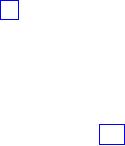
RanIt
base()
const;
Ref
operator*()
const;
Ptr
operator->()
const;
reverse_iterator&
operator++();
reverse_iterator
operator++(int);
reverse_iterator&
operator--();
reverse_iterator
operator--();
reverse_iterator&
operator+=(Dist
n);
reverse_iterator
operator+(Dist
n) const;
reverse_iterator&
operator-=(Dist
n);
reverse_iterator
operator-(Dist
n) const;
Ref
operator[](Dist
n) const;
protected:
RanIt
current;
};
The
template class describes an object
that behaves like a
random-access iterator,
only
in reverse. It stores a random-access
iterator of type RanIt
in the
protected
object
current.
Incrementing the object x of type
reverse_iterator
decrements
x.current, and
decrementing x
increments
x.current.
Moreover, the expression *x
evaluates
to *(current -
1), of
type Ref.
Typically, Ref
is
type T&.
Thus,
you can use an object of class
reverse_iterator
to
access in reverse order
a
sequence
that is traversed in order by a
random-access iterator.
Several
STL containers (page 41)
specialize reverse_iterator
for
RanIt
a
bidirectional
iterator. In these cases, you
must not call any of
the member functions
operator+=, operator+, operator-=, operator-, or operator[].
reverse_iterator::base
RanIt
base()
const;
The
member function returns
current (page 308).
reverse_iterator::iterator_type
typedef
RanIt iterator_type;
The
type is a synonym for the
template parameter RanIt.
reverse_iterator::operator*
Ref
operator*()
const;
The
operator returns *(current
- 1).
reverse_iterator::operator+
reverse_iterator
operator+(Dist
n) const;
The
operator returns reverse_iterator(*this)
+= n.
reverse_iterator::operator++
reverse_iterator&
operator++();
reverse_iterator
operator++(int);
The
first (preincrement) operator
evaluates --current.
then
returns *this.
The
second (postincrement) operator
makes a copy of *this,
evaluates --current,
then
returns the copy.
308
Standard
C++ Library
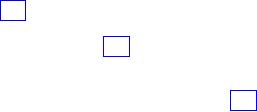
reverse_iterator::operator+=
reverse_iterator&
operator+=(Dist
n);
The
operator evaluates current
- n.
then returns *this.
reverse_iterator::operator-
reverse_iterator
operator-(Dist
n) const;
The
operator returns reverse_iterator(*this)
-= n.
reverse_iterator::operator--
reverse_iterator&
operator--();
reverse_iterator
operator--();
The
first (predecrement) operator
evaluates ++current.
then
returns *this.
The
second (postdecrement) operator
makes a copy of *this,
evaluates ++current,
then
returns the copy.
reverse_iterator::operator-=
reverse_iterator&
operator-=(Dist
n);
The
operator evaluates current
+ n.
then returns *this.
reverse_iterator::operator->
Ptr
operator->()
const;
The
operator returns &**this.
reverse_iterator::operator[]
Ref
operator[](Dist
n) const;
The
operator returns *(*this
+ n).
reverse_iterator::pointer
typedef
Ptr pointer;
The
type is a synonym for the
template parameter Ref.
reverse_iterator::reference
typedef
Ref reference;
The
type is a synonym for the
template parameter Ref.
reverse_iterator::reverse_iterator
reverse_iterator();
explicit
reverse_iterator(RanIt
x);
template<class
U>
reverse_iterator
(page 309)(const
reverse_iterator<U>& x);
The
first constructor initializes
current (page 308)
with its default constructor.
The
second
constructor initializes current
with
x.current.
The
template constructor initializes
current
with
x.base
(page 308)().
309
Chapter
13. Standard Template Library
C++

<list>
namespace
std {
template<class
T, class A>
class
list;
//
TEMPLATE FUNCTIONS
template<class
T, class A>
bool
operator==(
const
list<T, A>& lhs,
const
list<T, A>& rhs);
template<class
T, class A>
bool
operator!=(
const
list<T, A>& lhs,
const
list<T, A>& rhs);
template<class
T, class A>
bool
operator<(
const
list<T, A>& lhs,
const
list<T, A>& rhs);
template<class
T, class A>
bool
operator>(
const
list<T, A>& lhs,
const
list<T, A>& rhs);
template<class
T, class A>
bool
operator<=(
const
list<T, A>& lhs,
const
list<T, A>& rhs);
template<class
T, class A>
bool
operator>=(
const
list<T, A>& lhs,
const
list<T, A>& rhs);
template<class
T, class A>
void
swap(
list<T,
A>& lhs,
list<T,
A>& rhs);
};
template
class list
and
several supporting
templates.
list
template<class
T, class A = allocator<T>
>
class
list
{
public:
typedef
A allocator_type;
typedef
typename A::pointer pointer;
typedef
typename A::const_pointer
const_pointer;
typedef
typename A::reference reference;
typedef
typename A::const_reference const_reference;
typedef
typename A::value_type value_type;
typedef
T0 iterator;
310
Standard
C++ Library
typedef
T1 const_iterator;
typedef
T2 size_type;
typedef
T3 difference_type;
typedef
reverse_iterator<const_iterator>
const_reverse_iterator;
typedef
reverse_iterator<iterator>
reverse_iterator;
list();
explicit
list(const
A& al);
explicit
list(size_type
n);
list(size_type
n, const T& v);
list(size_type
n, const T& v, const A&
al);
list(const
list& x);
template<class
InIt>
list(InIt first, InIt
last);
template<class
InIt>
list(InIt first, InIt
last, const A& al);
iterator
begin();
const_iterator
begin()
const;
iterator
end();
const_iterator
end()
const;
reverse_iterator
rbegin();
const_reverse_iterator
rbegin()
const;
reverse_iterator
rend();
const_reverse_iterator
rend()
const;
void
resize(size_type
n);
void
resize(size_type
n, T x);
size_type
size()
const;
size_type
max_size()
const;
bool
empty()
const;
A
get_allocator()
const;
reference
front();
const_reference
front()
const;
reference
back();
const_reference
back()
const;
void
push_front(const
T& x);
void
pop_front();
void
push_back(const
T& x);
void
pop_back();
template<class
InIt>
void
assign(InIt first, InIt
last);
void
assign(size_type
n, const T& x);
iterator
insert(iterator it,
const T& x);
void
insert(iterator it,
size_type n, const T& x);
template<class
InIt>
void
insert(iterator it,
InIt first, InIt last);
iterator
erase(iterator
it);
iterator
erase(iterator first,
iterator last);
void
clear();
void
swap(list&
x);
void
splice(iterator it,
list& x);
void
splice(iterator it,
list& x, iterator first);
void
splice(iterator it,
list& x, iterator first,
iterator
last);
void
remove(const
T& x);
templace<class
Pred>
void
remove_if(Pred
pr);
void
unique();
template<class
Pred>
void
unique(Pred
pr);
void
merge(list&
x);
template<class
Pred>
void
merge(list& x,
Pred pr);
void
sort();
311
Chapter
13. Standard Template Library
C++
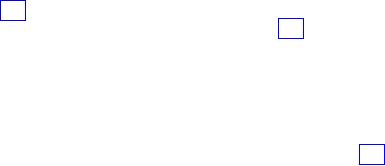
template<class
Pred>
void
sort(Pred
pr);
void
reverse();
};
The
template class describes an object
that controls a varying-length
sequence of
elements
of type T. The
sequence is stored as a bidirectional
linked list of
elements,
each
containing a member of type T.
The
object allocates and frees
storage for the sequence it
controls through a
stored
allocator
object (page 337)
of class A. Such
an allocator object must
have the same
external
interface as an object of template class
allocator (page 337).
Note that the
stored
allocator object is not
copied
when the container object is
assigned.
List
reallocation occurs
when a member function must
insert or erase elements
of
the
controlled sequence. In all
such cases, only iterators
or references that point
at
erased
portions of the controlled
sequence become invalid.
All
additions to the controlled
sequence occur as if by calls to
insert (page 314),
which
is the only member function
that calls the constructor
T(const
T&).
If such
an
expression throws an exception,
the container object inserts
no new elements
and
rethrows the exception.
Thus, an object of template class
list
is
left in a
known
state when such exceptions
occur.
list::allocator_type
typedef
A allocator_type;
The
type is a synonym for the
template parameter A.
list::assign
template<class
InIt>
void
assign(InIt first, InIt
last);
void
assign(size_type
n, const T& x);
If
InIt
is an
integer type, the first
member function behaves the
same as
assign((size_type)first,
(T)last).
Otherwise, the first member
function replaces
the
sequence controlled by *this
with
the sequence [first,
last),
which must not
overlap
the initial controlled
sequence. The second member
function replaces the
sequence
controlled by *this
with a
repetition of n
elements
of value x.
list::back
reference
back();
const_reference
back()
const;
The
member function returns a
reference to the last
element of the
controlled
sequence,
which must be
non-empty.
list::begin
const_iterator
begin()
const;
iterator
begin();
The
member function returns a
bidirectional iterator that
points at the first
element
of
the sequence (or just
beyond the end of an empty
sequence).
list::clear
void
clear();
The
member function calls erase(
begin(), end()).
312
Standard
C++ Library
list::const_iterator
typedef
T1 const_iterator;
The
type describes an object
that can serve as a constant
bidirectional iterator for
the
controlled sequence. It is described
here as a synonym for
the
implementation-defined
type T1.
list::const_pointer
typedef
typename A::const_pointer
const_pointer;
The
type describes an object
that can serve as a constant
pointer to an element of
the
controlled sequence.
list::const_reference
typedef
typename A::const_reference const_reference;
The
type describes an object
that can serve as a constant
reference to an element of
the
controlled sequence.
list::const_reverse_iterator
typedef
reverse_iterator<const_iterator>
const_reverse_iterator;
The
type describes an object
that can serve as a constant
reverse bidirectional
iterator
for the controlled
sequence.
list::difference_type
typedef
T3 difference_type;
The
signed integer type
describes an object that can
represent the
difference
between
the addresses of any two
elements in the controlled
sequence. It is
described
here as a synonym for the
implementation-defined type T3.
list::empty
bool
empty()
const;
The
member function returns true
for an empty controlled
sequence.
list::end
const_iterator
end()
const;
iterator
end();
The
member function returns a
bidirectional iterator that
points just beyond
the
end
of the sequence.
list::erase
iterator
erase(iterator
it);
iterator
erase(iterator first,
iterator last);
The
first member function
removes the element of the
controlled sequence
pointed
to
by it. The
second member function
removes the elements of the
controlled
sequence
in the range [first,
last).
Both return an iterator that
designates the
first
element remaining beyond any
elements removed, or end()
if no
such element
exists.
313
Chapter
13. Standard Template Library
C++

Erasing
N
elements
causes N
destructor
calls. No reallocation (page 312)
occurs, so
iterators
and references become invalid
(page 312)
only for the erased
elements.
The
member functions never throw an
exception.
list::front
reference
front();
const_reference
front()
const;
The
member function returns a
reference to the first
element of the
controlled
sequence,
which must be
non-empty.
list::get_allocator
A
get_allocator()
const;
The
member function returns the
stored allocator object
(page 337).
list::insert
iterator
insert(iterator it,
const T& x);
void
insert(iterator it,
size_type n, const T& x);
template<class
InIt>
void
insert(iterator it,
InIt first, InIt last);
Each
of the member functions
inserts, before the element
pointed to by it
in
the
controlled
sequence, a sequence specified by
the remaining operands. The
first
member
function inserts a single
element with value x
and
returns an iterator
that
points
to the newly inserted
element. The second member
function inserts a
repetition
of n
elements
of value x.
If
InIt
is an
integer type, the last
member function behaves the
same as
insert(it,
(size_type)first, (T)last).
Otherwise, the last member
function
inserts
the sequence [first,
last),
which must not
overlap
the initial
controlled
sequence.
Inserting
N
elements
causes N
constructor
calls. No reallocation (page 312)
occurs,
so
no iterators or references become
invalid (page 312).
If
an exception is thrown during the
insertion of one or more
elements, the
container
is left unaltered and the
exception is rethrown.
list::iterator
typedef
T0 iterator;
The
type describes an object
that can serve as a
bidirectional iterator for
the
controlled
sequence. It is described here as a
synonym for the
implementation-defined
type T0.
list::list
list();
explicit
list(const
A& al);
explicit
list(size_type
n);
list(size_type
n, const T& v);
list(size_type
n, const T& v,
const
A& al);
list(const
list& x);
template<class
InIt>
list(InIt first, InIt
last);
template<class
InIt>
list(InIt first, InIt
last, const A& al);
314
Standard
C++ Library

All
constructors store an allocator
object (page 337)
and initialize the
controlled
sequence.
The allocator object is the
argument al, if
present. For the
copy
constructor,
it is x.get_allocator().
Otherwise, it is A().
The
first two constructors specify an
empty initial controlled
sequence. The third
constructor
specifies a repetition of n
elements
of value T(). The
fourth and fifth
constructors
specify a repetition of n
elements
of value x. The
sixth constructor
specifies
a copy of the sequence
controlled by x. If InIt is an
integer type, the
last
two
constructors specify a repetition of
(size_type)first
elements
of value
(T)last.
Otherwise, the last two
constructors specify the
sequence [first,
last).
None
of the constructors perform
any interim reallocations
(page 312).
list::max_size
size_type
max_size()
const;
The
member function returns the
length of the longest
sequence that the object
can
control.
list::merge
void
merge(list&
x);
template<class
Pred>
void
merge(list& x,
Pred pr);
Both
member functions remove all
elements from the sequence
controlled by x
and
insert
them in the controlled
sequence. Both sequences
must be ordered by
(page
39)
the same predicate,
described below. The
resulting sequence is also
ordered by
that
predicate.
For
the iterators Pi
and
Pj
designating
elements at positions i
and
j, the
first
member
function imposes the order
!(*Pj < *Pi)
whenever
i
< j.
(The elements
are
sorted in ascending
order.)
The second member function
imposes the order
!pr(*Pj,
*Pi) whenever
i
< j.
No
pairs of elements in the
original controlled sequence
are reversed in the
resulting
controlled sequence. If a pair of
elements in the resulting
controlled
sequence
compares equal (!(*Pi
< *Pj) && !(*Pj < *Pi)),
an element from the
original
controlled sequence appears
before an element from the
sequence
controlled
by x.
An
exception occurs only if pr throws
an exception. In that case,
the controlled
sequence
is left in unspecified order and
the exception is
rethrown.
list::pointer
typedef
typename A::pointer pointer;
The
type describes an object
that can serve as a pointer
to an element of the
controlled
sequence.
list::pop_back
void
pop_back();
The
member function removes the
last element of the
controlled sequence,
which
must
be non-empty.
The
member function never throws
an exception.
315
Chapter
13. Standard Template Library
C++
list::pop_front
void
pop_front();
The
member function removes the
first element of the
controlled sequence,
which
must
be non-empty.
The
member function never throws
an exception.
list::push_back
void
push_back(const
T& x);
The
member function inserts an
element with value x
at
the end of the
controlled
sequence.
If
an exception is thrown, the
container is left unaltered and
the exception is
rethrown.
list::push_front
void
push_front(const
T& x);
The
member function inserts an
element with value x
at
the beginning of the
controlled
sequence.
If
an exception is thrown, the
container is left unaltered and
the exception is
rethrown.
list::rbegin
const_reverse_iterator
rbegin()
const;
reverse_iterator
rbegin();
The
member function returns a
reverse bidirectional iterator
that points just
beyond
the end of the controlled
sequence. Hence, it designates
the beginning of
the
reverse sequence.
list::reference
typedef
typename A::reference reference;
The
type describes an object
that can serve as a
reference to an element of
the
controlled
sequence.
list::remove
void
remove(const
T& x);
The
member function removes from
the controlled sequence all
elements,
designated
by the iterator P, for
which *P
== x.
The
member function never throws
an exception.
list::remove_if
templace<class
Pred>
void
remove_if(Pred
pr);
The
member function removes from
the controlled sequence all
elements,
designated
by the iterator P, for
which pr(*P)
is
true.
An
exception occurs only if pr throws
an exception. In that case,
the controlled
sequence
is left in an unspecified state and
the exception is
rethrown.
316
Standard
C++ Library
list::rend
const_reverse_iterator
rend()
const;
reverse_iterator
rend();
The
member function returns a
reverse bidirectional iterator
that points at the
first
element
of the sequence (or just
beyond the end of an empty
sequence). Hence, it
designates
the end of the reverse
sequence.
list::resize
void
resize(size_type
n);
void
resize(size_type
n, T x);
The
member functions both ensure
that size()
henceforth
returns n. If it
must
make
the controlled sequence
longer, the first member
function appends
elements
with
value T(), while
the second member function
appends elements with value x.
To
make the controlled sequence
shorter, both member
functions call
erase(begin()
+ n, end()).
list::reverse
void
reverse();
The
member function reverses the
order in which elements
appear in the
controlled
sequence.
list::reverse_iterator
typedef
reverse_iterator<iterator>
reverse_iterator;
The
type describes an object
that can serve as a reverse
bidirectional iterator for
the
controlled
sequence.
list::size
size_type
size()
const;
The
member function returns the
length of the controlled
sequence.
list::size_type
typedef
T2 size_type;
The
unsigned integer type
describes an object that can
represent the length of
any
controlled
sequence. It is described here as a
synonym for the
implementation-defined
type T2.
list::sort
void
sort();
template<class
Pred>
void
sort(Pred
pr);
Both
member functions order the
elements in the controlled
sequence by a
predicate,
described below.
For
the iterators Pi
and
Pj
designating
elements at positions i
and
j, the
first
member
function imposes the order
!(*Pj < *Pi)
whenever
i
< j.
(The elements
are
sorted in ascending
order.)
The member template function
imposes the order
!pr(*Pj,
*Pi) whenever
i
< j.
No pairs of elements in the
original controlled
sequence
are reversed in the
resulting controlled
sequence.
317
Chapter
13. Standard Template Library
C++
An
exception occurs only if pr throws
an exception. In that case,
the controlled
sequence
is left in unspecified order and
the exception is
rethrown.
list::splice
void
splice(iterator it,
list& x);
void
splice(iterator it,
list& x, iterator first);
void
splice(iterator it,
list& x, iterator first,
iterator
last);
The
first member function
inserts the sequence
controlled by x
before
the element
in
the controlled sequence
pointed to by it. It
also removes all elements
from x.
(&x
must
not equal this.)
The
second member function
removes the element pointed
to by first
in
the
sequence
controlled by x
and
inserts it before the
element in the
controlled
sequence
pointed to by it. (If it == first || it
== ++first,
no change occurs.)
The
third member function
inserts the subrange
designated by [first,
last) from
the
sequence controlled by x
before
the element in the
controlled sequence
pointed
to
by it. It
also removes the original
subrange from the sequence
controlled by x.
(If
&x ==
this,
the range [first,
last) must
not include the element
pointed to
by
it.)
If
the third member function
inserts N
elements,
and &x !=
this, an
object of class
iterator
(page 314)
is incremented N
times.
For all splice
member
functions, If
get_allocator()
== str.get_allocator(),
no exception occurs. Otherwise, a
copy
and
a destructor call also occur
for each inserted
element.
In
all cases, only iterators or
references that point at
spliced elements
become
invalid.
list::swap
void
swap(list&
x);
The
member function swaps the
controlled sequences between *this
and
x.
If
get_allocator()
== x.get_allocator(),
it does so in constant time, it
throws no
exceptions,
and it invalidates no references,
pointers, or iterators that
designate
elements
in the two controlled sequences.
Otherwise, it performs a number
of
element
assignments and constructor calls
proportional to the number of
elements
in
the two controlled
sequences.
list::unique
void
unique();
template<class
Pred>
void
unique(Pred
pr);
The
first member function
removes from the controlled
sequence every
element
that
compares equal to its
preceding element. For the
iterators Pi
and
Pj
designating
elements at positions i
and
j, the
second member function
removes
every
element for which i
+ 1 == j && pr(*Pi, *Pj).
For
a controlled sequence of length
N
(>
0), the predicate pr(*Pi,
*Pj) is
evaluated
N
- 1 times.
An
exception occurs only if pr throws
an exception. In that case,
the controlled
sequence
is left in an unspecified state and
the exception is
rethrown.
318
Standard
C++ Library
list::value_type
typedef
typename A::value_type value_type;
The
type is a synonym for the
template parameter T.
operator!=
template<class
T, class A>
bool
operator!=(
const
list <T, A>& lhs,
const
list <T, A>& rhs);
The
template function returns !(lhs ==
rhs).
operator==
template<class
T, class A>
bool
operator==(
const
list <T, A>& lhs,
const
list <T, A>& rhs);
The
template function overloads operator==
to
compare two objects of
template
class
list (page 310).
The function returns lhs.size() ==
rhs.size() &&
equal(lhs.
begin(), lhs. end(), rhs.begin()).
operator<
template<class
T, class A>
bool
operator<(
const
list <T, A>& lhs,
const
list <T, A>& rhs);
The
template function overloads operator<
to
compare two objects of
template
class
list. The
function returns lexicographical_compare(lhs.
begin(), lhs.
end(),
rhs.begin(), rhs.end()).
operator<=
template<class
T, class A>
bool
operator<=(
const
list <T, A>& lhs,
const
list <T, A>& rhs);
The
template function returns !(rhs <
lhs).
operator>
template<class
T, class A>
bool
operator>(
const
list <T, A>& lhs,
const
list <T, A>& rhs);
The
template function returns rhs <
lhs.
operator>=
template<class
T, class A>
bool
operator>=(
const
list <T, A>& lhs,
const
list <T, A>& rhs);
The
template function returns !(lhs <
rhs).
319
Chapter
13. Standard Template Library
C++

swap
template<class
T, class A>
void
swap(
list
<T, A>& lhs,
list
<T, A>& rhs);
The
template function executes lhs.swap
(page 318)(rhs).
Portions
derived from work copyright
� 1994 by Hewlett-Packard Company.
All rights
reserved.
<map>
namespace
std {
template<class
Key, class T, class Pred,
class A>
class
map;
template<class
Key, class T, class Pred,
class A>
class
multimap;
//
TEMPLATE FUNCTIONS
template<class
Key, class T, class Pred,
class
A>
bool
operator==(
const
map<Key, T, Pred, A>& lhs,
const
map<Key, T, Pred, A>& rhs);
template<class
Key, class T, class Pred,
class
A>
bool
operator==(
const
multimap<Key, T, Pred, A>&
lhs,
const
multimap<Key, T, Pred, A>&
rhs);
template<class
Key, class T, class Pred,
class
A>
bool
operator!=(
const
map<Key, T, Pred, A>& lhs,
const
map<Key, T, Pred, A>& rhs);
template<class
Key, class T, class Pred,
class
A>
bool
operator!=(
const
multimap<Key, T, Pred, A>&
lhs,
const
multimap<Key, T, Pred, A>&
rhs);
template<class
Key, class T, class Pred,
class
A>
bool
operator<(
const
map<Key, T, Pred, A>& lhs,
const
map<Key, T, Pred, A>& rhs);
template<class
Key, class T, class Pred,
class
A>
bool
operator<(
const
multimap<Key, T, Pred, A>&
lhs,
const
multimap<Key, T, Pred, A>&
rhs);
template<class
Key, class T, class Pred,
class
A>
bool
operator>(
const
map<Key, T, Pred, A>& lhs,
const
map<Key, T, Pred, A>& rhs);
template<class
Key, class T, class Pred,
class
A>
bool
operator>(
const
multimap<Key, T, Pred, A>&
lhs,
const
multimap<Key, T, Pred, A>&
rhs);
template<class
Key, class T, class Pred,
class
A>
bool
operator<=(
const
map<Key, T, Pred, A>& lhs,
const
map<Key, T, Pred, A>& rhs);
template<class
Key, class T, class Pred,
class
A>
bool
operator<=(
const
multimap<Key, T, Pred, A>&
lhs,
const
multimap<Key, T, Pred, A>&
rhs);
template<class
Key, class T, class Pred,
class
A>
bool
operator>=(
const
map<Key, T, Pred, A>& lhs,
const
map<Key, T, Pred, A>& rhs);
template<class
Key, class T, class Pred,
class
A>
320
Standard
C++ Library
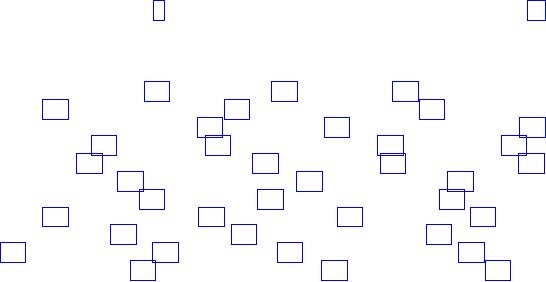
bool
operator>=(
const
multimap<Key, T, Pred,
A>&
lhs,
const
multimap<Key, T, Pred,
A>&
rhs);
template<class
Key, class T, class
Pred,
class
A>
void
swap(
map<Key,
T, Pred, A>& lhs,
map<Key,
T, Pred, A>& rhs);
template<class
Key, class T, class
Pred,
class
A>
void
swap(
multimap<Key,
T, Pred, A>& lhs,
multimap<Key,
T, Pred, A>& rhs);
};
template
classes map
and
multimap, and
their supporting
templates.
map
template<class
Key, class T, class Pred =
less<Key>,
class
A = allocator<pair<const Key, T> >
>
class
map
{
public:
typedef
Key key_type;
typedef
T mapped_type;
typedef
Pred key_compare;
typedef
A allocator_type;
typedef
pair<const Key, T> value_type;
class
value_compare;
typedef
A::pointer pointer;
typedef
A::const_pointer const_pointer;
typedef
A::reference reference;
typedef
A::const_reference const_reference;
typedef
T0 iterator;
typedef
T1 const_iterator;
typedef
T2 size_type;
typedef
T3 difference_type;
typedef
reverse_iterator<const_iterator>
const_reverse_iterator;
typedef
reverse_iterator<iterator> reverse_iterator;
map();
explicit
map(const
Pred& comp);
map(const
Pred& comp, const A& al);
map(const
map& x);
template<class
InIt>
map(InIt first, InIt
last);
template<class
InIt>
map(InIt first, InIt
last,
const
Pred& comp);
template<class
InIt>
map(InIt first, InIt
last,
const
Pred& comp, const A& al);
iterator
begin();
const_iterator
begin()
const;
321
Chapter
13. Standard Template Library
C++

iterator
end();
const_iterator
end()
const;
reverse_iterator
rbegin();
const_reverse_iterator
rbegin()
const;
reverse_iterator
rend();
const_reverse_iterator
rend()
const;
size_type
size()
const;
size_type
max_size()
const;
bool
empty()
const;
A
get_allocator()
const;
mapped_type
operator[](const
Key& key);
pair<iterator,
bool> insert(const
value_type& x);
iterator
insert(iterator it,
const value_type& x);
template<class
InIt>
void
insert(InIt first, InIt
last);
iterator
erase(iterator
it);
iterator
erase(iterator first,
iterator last);
size_type
erase(const
Key& key);
void
clear();
void
swap(map&
x);
key_compare
key_comp()
const;
value_compare
value_comp()
const;
iterator
find(const
Key& key);
const_iterator
find(const
Key& key) const;
size_type
count(const
Key& key) const;
iterator
lower_bound(const
Key& key);
const_iterator
lower_bound(const
Key& key) const;
iterator
upper_bound(const
Key& key);
const_iterator
upper_bound(const
Key& key) const;
pair<iterator,
iterator> equal_range(const
Key& key);
pair<const_iterator,
const_iterator>
equal_range(const
Key& key) const;
};
The
template class describes an object
that controls a varying-length
sequence of
elements
of type pair<const
Key, T>.
The sequence is ordered by
(page 39)
the
predicate
Pred. The
first element of each pair
is the sort
key and the
second is its
associated
value.
The sequence is represented in a way
that permits lookup,
insertion,
and removal of an arbitrary element with
a number of operations
proportional
to the logarithm of the
number of elements in the
sequence
(logarithmic
time). Moreover, inserting an
element invalidates no iterators,
and
removing
an element invalidates only
those iterators which point
at the removed
element.
The
object orders the sequence
it controls by calling a stored
function
object of
type
Pred. You
access this stored object by
calling the member function
key_comp().
Such
a function object must
impose a total ordering
(page 401)
on sort keys of
type
Key. For
any element x
that
precedes y
in
the sequence, key_comp()(y.first,
x.first)
is
false. (For the default
function object less<Key>, sort
keys never
decrease
in value.) Unlike template class
multimap (page 328),
an object of
template
class map
ensures
that key_comp()(x.first,
y.first) is true.
(Each key is
unique.)
The
object allocates and frees
storage for the sequence it
controls through a
stored
allocator
object (page 337)
of class A. Such
an allocator object must
have the same
external
interface as an object of template class
allocator (page 337).
Note that the
stored
allocator object is not
copied
when the container object is
assigned.
322
Standard
C++ Library
map::allocator_type
typedef
A allocator_type;
The
type is a synonym for the
template parameter A.
map::begin
const_iterator
begin()
const;
iterator
begin();
The
member function returns a
bidirectional iterator that
points at the first
element
of
the sequence (or just
beyond the end of an empty
sequence).
map::clear
void
clear();
The
member function calls erase(
begin(), end()).
map::const_iterator
typedef
T1 const_iterator;
The
type describes an object
that can serve as a constant
bidirectional iterator for
the
controlled sequence. It is described
here as a synonym for
the
implementation-defined
type T1.
map::const_pointer
typedef
A::const_pointer const_pointer;
The
type describes an object
that can serve as a constant
pointer to an element of
the
controlled sequence.
map::const_reference
typedef
A::const_reference const_reference;
The
type describes an object
that can serve as a constant
reference to an element of
the
controlled sequence.
map::const_reverse_iterator
typedef
reverse_iterator<const_iterator>
const_reverse_iterator;
The
type describes an object
that can serve as a constant
reverse bidirectional
iterator
for the controlled
sequence.
map::count
size_type
count(const
Key& key) const;
The
member function returns the
number of elements x
in
the range
[lower_bound(key),
upper_bound(key)).
map::difference_type
typedef
T3 difference_type;
The
signed integer type
describes an object that can
represent the
difference
between
the addresses of any two
elements in the controlled
sequence. It is
described
here as a synonym for the
implementation-defined type T3.
323
Chapter
13. Standard Template Library
C++
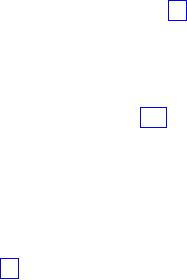
map::empty
bool
empty()
const;
The
member function returns true
for an empty controlled
sequence.
map::end
const_iterator
end()
const;
iterator
end();
The
member function returns a
bidirectional iterator that
points just beyond
the
end
of the sequence.
map::equal_range
pair<iterator,
iterator> equal_range(const
Key& key);
pair<const_iterator,
const_iterator>
equal_range(const
Key& key) const;
The
member function returns a
pair of iterators x
such
that x.first
==
lower_bound(key)
and
x.second
== upper_bound(key).
map::erase
iterator
erase(iterator
it);
iterator
erase(iterator first,
iterator last);
size_type
erase(const
Key& key);
The
first member function
removes the element of the
controlled sequence
pointed
to
by it. The
second member function
removes the elements in the
interval
[first,
last).
Both return an iterator that
designates the first element
remaining
beyond
any elements removed, or end()
if no
such element exists.
The
third member function
removes the elements with
sort keys in the
range
[lower_bound(key),
upper_bound(key)). It
returns the number of
elements it
removes.
The
member functions never throw an
exception.
map::find
iterator
find(const
Key& key);
const_iterator
find(const
Key& key) const;
The
member function returns an
iterator that designates the
earliest element in
the
controlled
sequence whose sort key
has equivalent ordering
(page 39)
to key. If
no
such
element exists, the function
returns end().
map::get_allocator
A
get_allocator()
const;
The
member function returns the
stored allocator object
(page 337).
map::insert
pair<iterator,
bool> insert(const
value_type& x);
iterator
insert(iterator it,
const value_type& x);
template<class
InIt>
void
insert(InIt first, InIt
last);
The
first member function
determines whether an element
y
exists
in the sequence
whose
key has equivalent ordering
(page 39)
to that of x. If
not, it creates such
an
324
Standard
C++ Library
element
y
and
initializes it with x. The
function then determines the
iterator it
that
designates
y. If an
insertion occurred, the
function returns pair(it,
true).
Otherwise,
it returns pair(it,
false).
The
second member function
returns insert(x), using
it
as a
starting place within
the
controlled sequence to search for
the insertion point.
(Insertion can occur
in
amortized
constant time, instead of
logarithmic time, if the
insertion point
immediately
follows it.) The
third member function
inserts the sequence
of
element
values, for each it
in
the range [first,
last),
by calling insert(*it).
If
an exception is thrown during the
insertion of a single element,
the container is
left
unaltered and the exception is
rethrown. If an exception is thrown
during the
insertion
of multiple elements, the
container is left in a stable
but unspecified state
and
the exception is
rethrown.
map::iterator
typedef
T0 iterator;
The
type describes an object
that can serve as a
bidirectional iterator for
the
controlled
sequence. It is described here as a
synonym for the
implementation-defined
type T0.
map::key_comp
key_compare
key_comp()
const;
The
member function returns the
stored function object that
determines the order
of
elements in the controlled
sequence. The stored object
defines the member
function:
bool
operator()(const Key& x, const Key&
y);
which
returns true if x
strictly
precedes y
in
the sort order.
map::key_compare
typedef
Pred key_compare;
The
type describes a function
object that can compare two
sort keys to
determine
the
relative order of two elements in
the controlled
sequence.
map::key_type
typedef
Key key_type;
The
type describes the sort
key object stored in each
element of the
controlled
sequence.
map::lower_bound
iterator
lower_bound(const
Key& key);
const_iterator
lower_bound(const
Key& key) const;
The
member function returns an
iterator that designates the
earliest element x
in
the
controlled sequence for which
key_comp()(x.
first, key) is
false.
If
no such element exists, the
function returns end().
map::map
map();
explicit
map(const
Pred& comp);
map(const
Pred& comp, const A& al);
325
Chapter
13. Standard Template Library
C++
map(const
map& x);
template<class
InIt>
map(InIt first, InIt
last);
template<class
InIt>
map(InIt first, InIt
last,
const
Pred& comp);
template<class
InIt>
map(InIt first, InIt
last,
const
Pred& comp, const A& al);
All
constructors store an allocator
object (page 337)
and initialize the
controlled
sequence.
The allocator object is the
argument al, if
present. For the
copy
constructor,
it is x.get_allocator().
Otherwise, it is A().
All
constructors also store a
function object that can
later be returned by
calling
key_comp(). The
function object is the
argument comp, if
present. For the
copy
constructor,
it is x.key_comp()).
Otherwise, it is Pred().
The
first three constructors
specify an empty initial
controlled sequence. The
fourth
constructor
specifies a copy of the
sequence controlled by x. The
last three
constructors
specify the sequence of
element values [first,
last).
map::mapped_type
typedef
T mapped_type;
The
type is a synonym for the
template parameter T.
map::max_size
size_type
max_size()
const;
The
member function returns the
length of the longest
sequence that the object
can
control.
map::operator[]
T&
operator[](const
Key& key);
The
member function determines
the iterator it
as
the return value of insert(
value_type(key,
T()).
(It inserts an element with
the specified key if no
such
element
exists.) It then returns a
reference to (*it).second.
map::pointer
typedef
A::pointer pointer;
The
type describes an object
that can serve as a pointer
to an element of the
controlled
sequence.
map::rbegin
const_reverse_iterator
rbegin()
const;
reverse_iterator
rbegin();
The
member function returns a
reverse bidirectional iterator
that points just
beyond
the end of the controlled
sequence. Hence, it designates
the beginning of
the
reverse sequence.
map::reference
typedef
A::reference reference;
326
Standard
C++ Library
The
type describes an object
that can serve as a
reference to an element of
the
controlled
sequence.
map::rend
const_reverse_iterator
rend()
const;
reverse_iterator
rend();
The
member function returns a
reverse bidirectional iterator
that points at the
first
element
of the sequence (or just
beyond the end of an empty
sequence). Hence, it
designates
the end of the reverse
sequence.
map::reverse_iterator
typedef
reverse_iterator<iterator> reverse_iterator;
The
type describes an object
that can serve as a reverse
bidirectional iterator for
the
controlled
sequence.
map::size
size_type
size()
const;
The
member function returns the
length of the controlled
sequence.
map::size_type
typedef
T2 size_type;
The
unsigned integer type
describes an object that can
represent the length of
any
controlled
sequence. It is described here as a
synonym for the
implementation-defined
type T2.
map::swap
void
swap(map&
x);
The
member function swaps the
controlled sequences between *this
and
x.
If
get_allocator()
== x.get_allocator(),
it does so in constant time, it
throws an
exception
only as a result of copying
the stored function object
of type Pred, and
it
invalidates
no references, pointers, or iterators
that designate elements in
the two
controlled
sequences. Otherwise, it performs a
number of element assignments
and
constructor
calls proportional to the
number of elements in the two
controlled
sequences.
map::upper_bound
iterator
upper_bound(const
Key& key);
const_iterator
upper_bound(const
Key& key) const;
The
member function returns an
iterator that designates the
earliest element x
in
the
controlled sequence for which
key_comp()(key,
x.first) is
true.
If
no such element exists, the
function returns end().
map::value_comp
value_compare
value_comp()
const;
The
member function returns a
function object that
determines the order
of
elements
in the controlled
sequence.
327
Chapter
13. Standard Template Library
C++
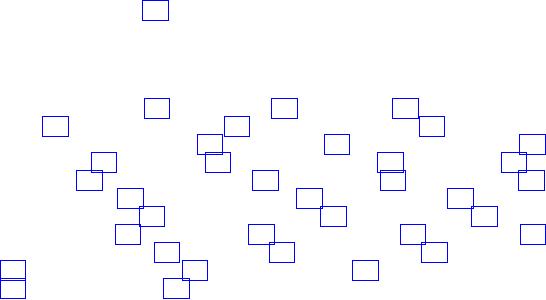
map::value_compare
class
value_compare
:
public binary_function<value_type,
value_type,
bool>
{
public:
bool
operator()(const value_type&
x,
const
value_type& y) const
{return
(comp(x.first, y.first)); }
protected:
value_compare(key_compare
pr)
:
comp(pr) {}
key_compare
comp;
};
The
type describes a function
object that can compare
the sort keys in two
elements
to determine their relative
order in the controlled
sequence. The
function
object
stores an object comp
of type
key_compare. The member
function operator()
uses
this object to compare the
sort-key components of two
element.
map::value_type
typedef
pair (page 402)<const Key, T>
value_type;
The
type describes an element of
the controlled
sequence.
multimap
template<class
Key, class T, class Pred =
less<Key>,
class
A = allocator<pair<const Key, T> >
>
class
multimap
{
public:
typedef
Key key_type;
typedef
T mapped_type;
typedef
Pred key_compare;
typedef
A allocator_type;
typedef
pair<const Key, T> value_type;
class
value_compare;
typedef
A::reference reference;
typedef
A::const_reference const_reference;
typedef
T0 iterator;
typedef
T1 const_iterator;
typedef
T2 size_type;
typedef
T3 difference_type;
typedef
reverse_iterator<const_iterator>
const_reverse_iterator;
typedef
reverse_iterator<iterator> reverse_iterator;
multimap();
explicit
multimap(const
Pred& comp);
multimap(const
Pred& comp, const A& al);
multimap(const
multimap& x);
template<class
InIt>
multimap(InIt first, InIt
last);
328
Standard
C++ Library
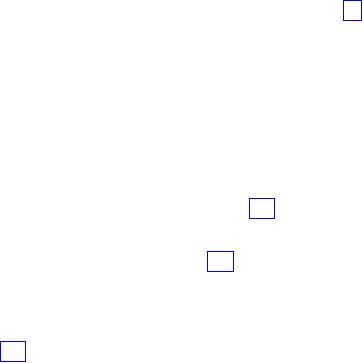
template<class
InIt>
multimap(InIt first, InIt
last,
const
Pred& comp);
template<class
InIt>
multimap(InIt first, InIt
last,
const
Pred& comp, const A& al);
iterator
begin();
const_iterator
begin()
const;
iterator
end();
const_iterator
end()
const;
reverse_iterator
rbegin();
const_reverse_iterator
rbegin()
const;
reverse_iterator
rend();
const_reverse_iterator
rend()
const;
size_type
size()
const;
size_type
max_size()
const;
bool
empty()
const;
A
get_allocator()
const;
iterator
insert(const
value_type& x);
iterator
insert(iterator it,
const value_type& x);
template<class
InIt>
void
insert(InIt first, InIt
last);
iterator
erase(iterator
it);
iterator
erase(iterator first,
iterator last);
size_type
erase(const
Key& key);
void
clear();
void
swap(multimap&
x);
key_compare
key_comp()
const;
value_compare
value_comp()
const;
iterator
find(const
Key& key);
const_iterator
find(const
Key& key) const;
size_type
count(const
Key& key) const;
iterator
lower_bound(const
Key& key);
const_iterator
lower_bound(const
Key& key) const;
iterator
upper_bound(const
Key& key);
const_iterator
upper_bound(const
Key& key) const;
pair<iterator,
iterator> equal_range(const
Key& key);
pair<const_iterator,
const_iterator>
equal_range(const
Key& key) const;
};
The
template class describes an object
that controls a varying-length
sequence of
elements
of type pair<const
Key, T>.
The sequence is ordered by
(page 39)
the
predicate
Pred. The
first element of each pair
is the sort
key and the
second is its
associated
value.
The sequence is represented in a way
that permits lookup,
insertion,
and removal of an arbitrary element with
a number of operations
proportional
to the logarithm of the
number of elements in the
sequence
(logarithmic
time). Moreover, inserting an
element invalidates no iterators,
and
removing
an element invalidates only
those iterators which point
at the removed
element.
The
object orders the sequence
it controls by calling a stored
function
object of
type
Pred. You
access this stored object by
calling the member function
key_comp().
Such
a function object must
impose a total ordering
(page 401)
on sort keys of
type
Key. For
any element x
that
precedes y
in
the sequence, key_comp()(y.first,
x.first)
is
false. (For the default
function object less<Key>, sort
keys never
decrease
in value.) Unlike template class map
(page 321),
an object of template
class
multimap
does
not ensure that key_comp()(x.first,
y.first) is true.
(Keys
need
not be unique.)
The
object allocates and frees
storage for the sequence it
controls through a
stored
allocator
object (page 337)
of class A. Such
an allocator object must
have the same
329
Chapter
13. Standard Template Library
C++
external
interface as an object of template class
allocator (page 337).
Note that the
stored
allocator object is not
copied
when the container object is
assigned.
multimap::allocator_type
typedef
A allocator_type;
The
type is a synonym for the
template parameter A.
multimap::begin
const_iterator
begin()
const;
iterator
begin();
The
member function returns a
bidirectional iterator that
points at the first
element
of
the sequence (or just
beyond the end of an empty
sequence).
multimap::clear
void
clear();
The
member function calls erase(
begin(), end()).
multimap::const_iterator
typedef
T1 const_iterator;
The
type describes an object
that can serve as a constant
bidirectional iterator for
the
controlled sequence. It is described
here as a synonym for
the
implementation-defined
type T1.
multimap::const_pointer
typedef
A::const_pointer const_pointer;
The
type describes an object
that can serve as a constant
pointer to an element of
the
controlled sequence.
multimap::const_reference
typedef
A::const_reference const_reference;
The
type describes an object
that can serve as a constant
reference to an element of
the
controlled sequence.
multimap::const_reverse_iterator
typedef
reverse_iterator<const_iterator>
const_reverse_iterator;
The
type describes an object
that can serve as a constant
reverse bidirectional
iterator
for the controlled
sequence.
multimap::count
size_type
count(const
Key& key) const;
The
member function returns the
number of elements x
in
the range
[lower_bound(key),
upper_bound(key)).
multimap::difference_type
typedef
T3 difference_type;
330
Standard
C++ Library
The
signed integer type
describes an object that can
represent the
difference
between
the addresses of any two
elements in the controlled
sequence. It is
described
here as a synonym for the
implementation-defined type T3.
multimap::empty
bool
empty()
const;
The
member function returns true
for an empty controlled
sequence.
multimap::end
const_iterator
end()
const;
iterator
end();
The
member function returns a
bidirectional iterator that
points just beyond
the
end
of the sequence.
multimap::equal_range
pair<iterator,
iterator> equal_range(const
Key& key);
pair<const_iterator,
const_iterator>
equal_range(const
Key& key) const;
The
member function returns a
pair of iterators x
such
that x.first
==
lower_bound(key)
and
x.second
== upper_bound(key).
multimap::erase
iterator
erase(iterator
it);
iterator
erase(iterator first,
iterator last);
size_type
erase(const
Key& key);
The
first member function
removes the element of the
controlled sequence
pointed
to
by it. The
second member function
removes the elements in the
range [first,
last). Both
return an iterator that
designates the first element
remaining beyond
any
elements removed, or end()
if no
such element exists.
The
third member removes the
elements with sort keys in
the range
[lower_bound(key),
upper_bound(key)). It
returns the number of
elements it
removes.
The
member functions never throw an
exception.
multimap::find
iterator
find(const
Key& key);
const_iterator
find(const
Key& key) const;
The
member function returns an
iterator that designates the
earliest element in
the
controlled
sequence whose sort key
has equivalent ordering
(page 39)
to key. If
no
such
element exists, the function
returns end().
multimap::get_allocator
A
get_allocator()
const;
The
member function returns the
stored allocator object
(page 337).
multimap::insert
iterator
insert(const
value_type& x);
iterator
insert(iterator it,
const value_type& x);
template<class
InIt>
void
insert(InIt first, InIt
last);
331
Chapter
13. Standard Template Library
C++
The
first member function
inserts the element x
in
the controlled sequence,
then
returns
the iterator that designates
the inserted element. The
second member
function
returns insert(x), using
it
as a
starting place within the
controlled
sequence
to search for the insertion
point. (Insertion can occur
in amortized
constant
time, instead of logarithmic
time, if the insertion point
immediately
follows
it.) The
third member function
inserts the sequence of
element values, for
each
it
in
the range [first,
last),
by calling insert(*it).
If
an exception is thrown during the
insertion of a single element,
the container is
left
unaltered and the exception is
rethrown. If an exception is thrown
during the
insertion
of multiple elements, the
container is left in a stable
but unspecified state
and
the exception is
rethrown.
multimap::iterator
typedef
T0 iterator;
The
type describes an object
that can serve as a
bidirectional iterator for
the
controlled
sequence. It is described here as a
synonym for the
implementation-defined
type T0.
multimap::key_comp
key_compare
key_comp()
const;
The
member function returns the
stored function object that
determines the order
of
elements in the controlled
sequence. The stored object
defines the member
function:
bool
operator()(const Key& x, const Key&
y);
which
returns true if x
strictly
precedes y
in
the sort order.
multimap::key_compare
typedef
Pred key_compare;
The
type describes a function
object that can compare two
sort keys to
determine
the
relative order of two elements in
the controlled
sequence.
multimap::key_type
typedef
Key key_type;
The
type describes the sort
key object stored in each
element of the
controlled
sequence.
multimap::lower_bound
iterator
lower_bound(const
Key& key);
const_iterator
lower_bound(const
Key& key) const;
The
member function returns an
iterator that designates the
earliest element x
in
the
controlled sequence for which
key_comp()(x.
first, key) is
false.
If
no such element exists, the
function returns end().
multimap::mapped_type
typedef
T mapped_type;
The
type is a synonym for the
template parameter T.
332
Standard
C++ Library
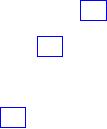
multimap::max_size
size_type
max_size()
const;
The
member function returns the
length of the longest
sequence that the object
can
control.
multimap::multimap
multimap();
explicit
multimap(const
Pred& comp);
multimap(const
Pred& comp, const A& al);
multimap(const
multimap& x);
template<class
InIt>
multimap(InIt first, InIt
last);
template<class
InIt>
multimap(InIt first, InIt
last,
const
Pred& comp);
template<class
InIt>
multimap(InIt first, InIt
last,
const
Pred& comp, const A& al);
All
constructors store an allocator
object (page 337)
and initialize the
controlled
sequence.
The allocator object is the
argument al, if
present. For the
copy
constructor,
it is x.get_allocator
(page 331)().
Otherwise, it is A().
All
constructors also store a
function object that can
later be returned by
calling
key_comp(). The
function object is the
argument comp, if
present. For the
copy
constructor,
it is x.key_comp
(page 332)()).
Otherwise, it is Pred().
The
first three constructors
specify an empty initial
controlled sequence. The
fourth
constructor
specifies a copy of the
sequence controlled by x. The
last three
constructors
specify the sequence of
element values [first,
last).
multimap::pointer
typedef
A::pointer pointer;
The
type describes an object
that can serve as a pointer
to an element of the
controlled
sequence.
multimap::rbegin
const_reverse_iterator
rbegin()
const;
reverse_iterator
rbegin();
The
member function returns a
reverse bidirectional iterator
that points just
beyond
the end of the controlled
sequence. Hence, it designates
the beginning of
the
reverse sequence.
multimap::reference
typedef
A::reference reference;
The
type describes an object
that can serve as a
reference to an element of
the
controlled
sequence.
multimap::rend
const_reverse_iterator
rend()
const;
reverse_iterator
rend();
333
Chapter
13. Standard Template Library
C++
The
member function returns a
reverse bidirectional iterator
that points at the
first
element
of the sequence (or just
beyond the end of an empty
sequence). Hence, it
designates
the end of the reverse
sequence.
multimap::reverse_iterator
typedef
reverse_iterator<iterator> reverse_iterator;
The
type describes an object
that can serve as a reverse
bidirectional iterator for
the
controlled
sequence.
multimap::size
size_type
size()
const;
The
member function returns the
length of the controlled
sequence.
multimap::size_type
typedef
T2 size_type;
The
unsigned integer type
describes an object that can
represent the length of
any
controlled
sequence. It is described here as a
synonym for the
implementation-defined
type T2.
multimap::swap
void
swap(multimap&
x);
The
member function swaps the
controlled sequences between *this
and
x.
If
get_allocator()
== x.get_allocator(),
it does so in constant time, it
throws an
exception
only as a result of copying
the stored function object
of type Pred, and
it
invalidates
no references, pointers, or iterators
that designate elements in
the two
controlled
sequences. Otherwise, it performs a
number of element assignments
and
constructor
calls proportional to the
number of elements in the two
controlled
sequences.
multimap::upper_bound
iterator
upper_bound(const
Key& key);
const_iterator
upper_bound(const
Key& key) const;
The
member function returns an
iterator that designates the
earliest element x
in
the
controlled sequence for which
key_comp()(key,
x.first) is
true.
If
no such element exists, the
function returns end().
multimap::value_comp
value_compare
value_comp()
const;
The
member function returns a
function object that
determines the order
of
elements
in the controlled
sequence.
multimap::value_compare
class
value_compare
:
public binary_function (page
285)<value_type, value_type,
bool>
{
public:
bool
operator()(const value_type& x,
const
value_type& y) const
{return
(comp(x.first, x.second)); }
protected:
334
Standard
C++ Library

value_compare(key_compare
pr)
:
comp(pr) {}
key_compare
comp;
};
The
type describes a function
object that can compare
the sort keys in two
elements
to determine their relative
order in the controlled
sequence. The
function
object
stores an object comp
of type
key_compare. The
member function operator()
uses
this object to compare the
sort-key components of two
element.
multimap::value_type
typedef
pair (page 402)<const Key, T>
value_type;
The
type describes an element of
the controlled
sequence.
operator!=
template<class
Key, class T, class Pred,
class A>
bool
operator!=(
const
map <Key, T, Pred, A>&
lhs,
const
map <Key, T, Pred, A>&
rhs);
template<class
Key, class T, class Pred,
class A>
bool
operator!=(
const
multimap <Key, T, Pred, A>&
lhs,
const
multimap <Key, T, Pred, A>&
rhs);
The
template function returns !(lhs ==
rhs).
operator==
template<class
Key, class T, class Pred,
class A>
bool
operator==(
const
map <Key, T, Pred, A>&
lhs,
const
map <Key, T, Pred, A>&
rhs);
template<class
Key, class T, class Pred,
class A>
bool
operator==(
const
multimap <Key, T, Pred, A>&
lhs,
const
multimap <Key, T, Pred, A>&
rhs);
The
first template function
overloads operator==
to
compare two objects of
template
class multimap (page 328).
The second template
function overloads
operator==
to
compare two objects of template class
multimap (page 328).
Both
functions
return lhs.size
(page 334)()
== rhs.size() && equal (page
255)(lhs.
begin
(page 330)(), lhs. end (page 331)(),
rhs.begin()).
operator<
template<class
Key, class T, class Pred,
class A>
bool
operator<(
const
map <Key, T, Pred, A>&
lhs,
const
map <Key, T, Pred, A>&
rhs);
template<class
Key, class T, class Pred,
class A>
bool
operator<(
const
multimap <Key, T, Pred, A>&
lhs,
const
multimap <Key, T, Pred, A>&
rhs);
The
first template function
overloads operator<
to
compare two objects of
template
class
multimap (page 328).
The second template
function overloads operator<
to
compare
two objects of template class multimap
(page 328).
Both functions
return
lexicographical_compare(lhs.
begin(), lhs. end(), rhs.begin(), rhs.end()).
335
Chapter
13. Standard Template Library
C++

operator<=
template<class
Key, class T, class Pred,
class A>
bool
operator<=(
const
map <Key, T, Pred, A>&
lhs,
const
map <Key, T, Pred, A>&
rhs);
template<class
Key, class T, class Pred,
class A>
bool
operator<=(
const
multimap <Key, T, Pred, A>&
lhs,
const
multimap <Key, T, Pred, A>&
rhs);
The
template function returns !(rhs <
lhs).
operator>
template<class
Key, class T, class Pred,
class A>
bool
operator>(
const
map <Key, T, Pred, A>&
lhs,
const
map <Key, T, Pred, A>&
rhs);
template<class
Key, class T, class Pred,
class A>
bool
operator>(
const
multimap <Key, T, Pred, A>&
lhs,
const
multimap <Key, T, Pred, A>&
rhs);
The
template function returns rhs <
lhs.
operator>=
template<class
Key, class T, class Pred,
class A>
bool
operator>=(
const
map <Key, T, Pred, A>&
lhs,
const
map <Key, T, Pred, A>&
rhs);
template<class
Key, class T, class Pred,
class A>
bool
operator!=(
const
multimap <Key, T, Pred, A>&
lhs,
const
multimap <Key, T, Pred, A>&
rhs);
The
template function returns !(lhs <
rhs).
swap
template<class
Key, class T, class Pred,
class A>
void
swap(
map
<Key, T, Pred, A>& lhs,
map
<Key, T, Pred, A>& rhs);
template<class
Key, class T, class Pred,
class A>
void
swap(
multimap
<Key, T, Pred, A>& lhs,
multimap
<Key, T, Pred, A>& rhs);
The
template function executes lhs.swap
(page 327)(rhs).
Portions
derived from work copyright � 1994
by Hewlett-Packard Company.
All
rights
reserved.
<memory>
namespace
std {
template<class
T>
class
allocator;
template<>
class
allocator<void>;
template<class
FwdIt, class T>
class
raw_storage_iterator;
336
Standard
C++ Library
template<class
T>
class
auto_ptr;
//
TEMPLATE OPERATORS
template<class
T>
bool
operator==(allocator<T>&
lhs,
allocator<T>&
rhs);
template<class
T>
bool
operator!=(allocator<T>&
lhs,
allocator<T>&
rhs);
//
TEMPLATE FUNCTIONS
template<class
T>
pair<T
*, ptrdiff_t>
get_temporary_buffer(ptrdiff_t
n);
template<class
T>
void
return_temporary_buffer(T
*p);
template<class
InIt, class FwdIt>
FwdIt
uninitialized_copy(InIt first, InIt
last,
FwdIt
result);
template<class
FwdIt, class T>
void
uninitialized_fill(FwdIt
first, FwdIt last,
const
T& x);
template<class
FwdIt, class Size, class
T>
void
uninitialized_fill_n(FwdIt
first, Size n,
const
T& x);
};
Include
the STL (page 1)
standard header <memory>
to
define a class, an operator,
and
several templates that help
allocate and free
objects.
allocator
template<class
T>
class
allocator
{
typedef
size_t size_type;
typedef
ptrdiff_t difference_type;
typedef
T *pointer;
typedef
const T *const_pointer;
typedef
T& reference;
typedef
const T& const_reference;
typedef
T value_type;
pointer
address(reference
x) const;
const_pointer
address(const_reference
x) const;
template<class
U>
struct
rebind;
allocator();
template<class
U>
allocator(const
allocator<U>& x);
template<class
U>
allocator&
operator=(const
allocator<U>& x);
template<class
U>
pointer
allocate(size_type
n, const U *hint = 0);
void
deallocate(pointer
p, size_type n);
void
construct(pointer
p, const T& val);
void
destroy(pointer
p);
size_type
max_size()
const;
};
The
template class describes an object
that manages storage
allocation and freeing
for
arrays of objects of type T. An
object of class allocator
is
the default allocator
object
specified
in the constructors for several
container template classes in
the
Standard
C++ library.
337
Chapter
13. Standard Template Library
C++

Template
class allocator
supplies
several type definitions
that are rather
pedestrian.
They hardly seem worth
defining. But another class with
the same
members
might choose more
interesting alternatives. Constructing a
container with
an
allocator object of such a class
gives individual control over
allocation and
freeing
of elements controlled by that
container.
For
example, an allocator object
might allocate storage on a
private
heap. Or
it
might
allocate storage on a far
heap,
requiring nonstandard pointers to
access the
allocated
objects. Or it might specify,
through the type definitions
it supplies, that
elements
be accessed through special
accessor
objects that
manage shared
memory,
or perform automatic garbage
collection. Hence,
a class that allocates
storage
using an allocator object
should use these types
religiously for declaring
pointer
and reference objects (as do
the containers in the
Standard C++
library).
Thus,
an allocator defines the
types (among others):
pointer
(page 339)
-- behaves like a pointer to
T
v
const_pointer
(page 338)
-- behaves like a const
pointer to T
v
reference
(page 340)
-- behaves like a reference to
T
v
const_reference
(page 339)
-- behaves like a const
reference to T
v
These
types specify the form that
pointers and references must
take for allocated
elements.
(allocator::pointer
is
not necessarily the same as
T *
for
all allocator
objects,
even though it has this
obvious definition for class allocator.)
allocator::address
pointer
address(reference
x) const;
const_pointer
address(const_reference
x) const;
The
member functions return the
address of x, in the
form that pointers must
take
for
allocated elements.
allocator::allocate
template<class
U>
pointer
allocate(size_type
n, const U *hint = 0);
The
member function allocates
storage for an array of n
elements
of type T,
by
calling
operator
new(n).
It returns a pointer to the
allocated object. The hint
argument
helps some allocators in
improving locality of reference -- a
valid choice
is
the address of an object
earlier allocated by the
same allocator object, and
not
yet
deallocated. To supply no hint,
use a null pointer argument
instead.
allocator::allocator
allocator();
template<class
U>
allocator(const
allocator<U>& x);
The
constructor does nothing. In
general, however, an allocator
object constructed
from
another allocator object
should compare equal to it
(and hence permit
intermixing
of object allocation and freeing
between the two allocator
objects).
allocator::const_pointer
typedef
const T *pointer;
The
pointer type describes an
object p
that
can designate, via the
expression *p,
any
const object that an object
of template class allocator
can
allocate.
338
Standard
C++ Library
allocator::const_reference
typedef
const T& const_reference;
The
reference type describes an
object x
that
can designate any const
object that an
object
of template class allocator
can
allocate.
allocator::construct
void
construct(pointer
p, const T& val);
The
member function constructs an
object of type T
at
p
by
evaluating the
placement
new
expression
new
((void *)p) T(val).
allocator::deallocate
void
deallocate(pointer
p, size_type n);
The
member function frees
storage for the array of n objects
of type T
beginning
at
p, by
calling operator
delete(p). The
pointer p
must
have been earlier returned
by
a
call to allocate (page 338)
for an allocator object that
compares equal to *this,
allocating
an array object of the same
size and type. deallocate
never
throws an
exception.
allocator::destroy
void
destroy(pointer
p);
The
member function destroys the
object designated by p, by
calling the
destructor
p->T::~T().
allocator::difference_type
typedef
ptrdiff_t difference_type;
The
signed integer type
describes an object that can
represent the
difference
between
the addresses of any two
elements in a sequence that an
object of
template
class allocator
can
allocate.
allocator::max_size
size_type
max_size()
const;
The
member function returns the
length of the longest
sequence of elements of
type
T
that an
object of class allocator
might
be
able to allocate.
allocator::operator=
template<class
U>
allocator&
operator=(const
allocator<U>& x);
The
template assignment operator
does nothing. In general,
however, an allocator
object
assigned to another allocator
object should compare equal
to it (and hence
permit
intermixing of object allocation and
freeing between the two
allocator
objects).
allocator::pointer
typedef
T *pointer;
The
pointer type describes an
object p
that
can designate, via the
expression *p,
any
object that an object of
template class allocator
can
allocate.
339
Chapter
13. Standard Template Library
C++

allocator::rebind
template<class
U>
struct
rebind
{
typedef
allocator<U> other;
};
The
member template class defines
the type other. Its
sole purpose is to
provide
the
type name allocator<U>
given
the type name allocator<T>.
For
example, given an allocator
object al
of
type A, you
can allocate an object
of
type
U
with
the expression:
A::rebind<U>::other(al).allocate(1,
(U *)0)
Or,
you can simply name its
pointer type by writing the
type:
A::rebind<U>::other::pointer
allocator::reference
typedef
T& reference;
The
reference type describes an
object x
that
can designate any object
that an object
of
template class allocator
can
allocate.
allocator::size_type
typedef
size_t size_type;
The
unsigned integer type
describes an object that can
represent the length of
any
sequence
that an object of template class
allocator
can
allocate.
allocator::value_type
typedef
T value_type;
The
type is a synonym for the
template parameter T.
allocator<void>
template<>
class
allocator<void>
{
typedef
void *pointer;
typedef
const void *const_pointer;
typedef
void value_type;
template<class
U>
struct
rebind;
allocator();
template<class
U>
allocator(const
allocator<U>);
template<class
U>
allocator<void>&
operator=(const
allocator<U>);
};
The
class explicitly specializes template
class allocator (page 337)
for type void.
Its
constructors
and assignment operator behave
the same as for the template
class,
auto_ptr
template<U>
struct
auto_ptr_ref;
template<class
T>
340
Standard
C++ Library
class
auto_ptr
{
public:
typedef
T element_type;
explicit
auto_ptr(T *p = 0)
throw();
auto_ptr(auto_ptr<T>&
rhs) throw();
template<class
U>
auto_ptr(auto_ptr<U>&
rhs) throw();
auto_ptr(auto_ptr_ref<T>
rhs) throw();
~auto_ptr();
template<class
U>
operator
auto_ptr<U>()
throw();
template<class
U>
operator
auto_ptr_ref<U>()
throw();
template<class
U>
auto_ptr<T>&
operator=(auto_ptr<U>&
rhs) throw();
auto_ptr<T>&
operator=(auto_ptr<T>&
rhs) throw();
auto_ptr<T>&
operator=(auto_ptr_ref<T>&
rhs) throw();
T&
operator*()
const throw();
T
*operator->()
const throw();
T
*get()
const throw();
T
*release()
const throw();
void
reset(T *p =
0);
};
The
class describes an object that
stores a pointer to an allocated
object of type T.
The
stored pointer must either
be null or designate an object allocated
by a new
expression.
An object constructed with a non-null
pointer owns the pointer.
It
transfers
ownership if its stored
value is assigned to another
object. (It replaces
the
stored
value after a transfer with a null
pointer.) The destructor for auto_ptr<T>
deletes
the allocated object if it
owns it. Hence, an object of
class auto_ptr<T>
ensures
that an allocated object is
automatically deleted when control
leaves a
block,
even via a thrown exception. You
should not construct two auto_ptr<T>
objects
that own the same
object.
You
can pass an auto_ptr<T>
object
by value as an argument to a function
call. You
can
return such an object by
value as well. (Both
operations depend on the
implicit
construction
of intermediate objects of class auto_ptr_ref<U>, by
various subtle
conversion
rules.) You cannot, however,
reliably manage a sequence of
auto_ptr<T>
objects
with an STL container (page 41).
auto_ptr::auto_ptr
explicit
auto_ptr(T *p = 0)
throw();
auto_ptr(auto_ptr<T>&
rhs) throw();
auto_ptr(auto_ptr_ref<T>
rhs) throw();
template<class
U>
auto_ptr(auto_ptr<U>&
rhs) throw();
The
first constructor stores p as the
pointer to the allocated
object. The second
constructor
transfers ownership of the
pointer stored in rhs, by
storing
rhs.release(). in the
constructed object. The
third constructor behaves
the same as
the
second, except that it
stores rhs.ref.release(), where
ref
is
the reference
stored
in rhs.
The
template constructor behaves
the same as the second
constructor, provided
that
a pointer to U
can be
implicitly converted to a pointer to
T.
auto_ptr_ref
template<U>
struct
auto_ptr_ref
{
auto_ptr_ref(auto_ptr<U>&
rhs);
};
341
Chapter
13. Standard Template Library
C++
A
helper class that describes an
object that stores a
reference to an object of class
auto_ptr<T>.
auto_ptr::~auto_ptr
~auto_ptr();
The
destructor evaluates the
expression delete
q.
auto_ptr::element_type
typedef
T element_type;
The
type is a synonym for the
template parameter T.
auto_ptr::get
T
*get()
const throw();
The
member function returns the
stored pointer.
auto_ptr::operator=
template<class
U>
auto_ptr<T>&
operator=(auto_ptr<U>&
rhs) throw();
auto_ptr<T>&
operator=(auto_ptr<>&
rhs) throw();
auto_ptr<T>&
operator=(auto_ptr_ref<>&
rhs) throw();
The
assignment evaluates the
expression delete
q,
but only if the stored
pointer
value
q
changes
as a result of the assignment. It
then transfers ownership of
the
pointer
stored in rhs, by
storing rhs.release()
in
*this. The
function returns
*this.
auto_ptr::operator*
T&
operator*()
const throw();
The
indirection operator returns *get(). Hence,
the stored pointer must
not be
null.
auto_ptr::operator->
T
*operator->()
const throw();
The
selection operator returns get(), so
that the expression al->m
behaves
the
same
as (al.get())->m, where
al
is an
object of class auto_ptr<T>. Hence,
the
stored
pointer must not be null,
and T must be
a class, structure, or union
type
with
a member m.
auto_ptr::operator
auto_ptr<U>
template<class
U>
operator
auto_ptr<U>()
throw();
The
type cast operator returns
auto_ptr<U>(*this).
auto_ptr::operator
auto_ptr_ref<U>
template<class
U>
operator
auto_ptr_ref<U>()
throw();
The
type cast operator returns
auto_ptr_ref<U>(*this).
auto_ptr::release
T
*release()
throw();
342
Standard
C++ Library
The
member replaces the stored
pointer with a null pointer and returns
the
previously
stored pointer.
auto_ptr::reset
void
reset(T *p =
0);
The
member function evaluates
the expression delete
q,
but only if the
stored
pointer
value q
changes
as a result of function call. It
then replaces the
stored
pointer
with p.
get_temporary_buffer
template<class
T>
pair<T
*, ptrdiff_t>
get_temporary_buffer(ptrdiff_t
n);
The
template function allocates
storage for a sequence of at most
n
elements
of
type
T, from an
unspecified source (which
may well be the standard
heap used by
operator
new).
It returns a value pr, of
type pair<T
*, ptrdiff_t>.
If the function
allocates
storage, pr.first
designates
the allocated storage and pr.second
is
the
number
of elements in the longest
sequence the storage can
hold. Otherwise,
pr.first
is a
null pointer.
In
this implementation (page 3),
if a translator does not
support member
template
functions,
the template:
template<class
T>
pair<T
*, ptrdiff_t>
get_temporary_buffer(ptrdiff_t
n);
is
replaced by:
template<class
T>
pair<T
*, ptrdiff_t>
get_temporary_buffer(ptrdiff_t n, T
*);
operator!=
template<class
T>
bool
operator!=(allocator<T>&
lhs,
allocator<T>&
rhs);
The
template operator returns
false.
operator==
template<class
T>
bool
operator==(allocator<T>&
lhs,
allocator<T>&
rhs);
The
template operator returns
true. (Two allocator objects
should compare equal
only
if an object allocated through
one can be deallocated
through the other. If
the
value
of one object is determined from
another by assignment or by
construction,
the
two object should compare
equal.)
raw_storage_iterator
template<class
FwdIt, class T>
class
raw_storage_iterator
:
public
iterator<output_iterator_tag,
void,
void, void, void> {
public:
343
Chapter
13. Standard Template Library
C++
typedef
FwdIt iter_type;
typedef
T element_type;
explicit
raw_storage_iterator(FwdIt
it);
raw_storage_iterator<FwdIt,
T>& operator*();
raw_storage_iterator<FwdIt,
T>&
operator=(const
T& val);
raw_storage_iterator<FwdIt,
T>& operator++();
raw_storage_iterator<FwdIt,
T> operator++(int);
};
The
class describes an output iterator
that constructs objects of
type T
in
the
sequence
it generates. An object of class raw_storage_iterator<FwdIt,
T> accesses
storage
through a forward iterator object, of
class FwdIt, that
you specify when you
construct
the object. For an object
it
of class
FwdIt, the
expression &*it
must
designate
unconstructed storage for the
next object (of type
T) in the
generated
sequence.
raw_storage_iterator::element_type
typedef
T element_type;
The
type is a synonym for the
template parameter T.
raw_storage_iterator::iter_type
typedef
FwdIt iter_type;
The
type is a synonym for the
template parameter FwdIt.
raw_storage_iterator::operator*
raw_storage_iterator<FwdIt,
T>& operator*();
The
indirection operator returns *this
(so
that operator=(const
T&) can
perform
the
actual store in an expression
such as *x
= val).
raw_storage_iterator::operator=
raw_storage_iterator<FwdIt,
T>& operator=(const
T& val);
The
assignment operator constructs
the next object in the
output sequence using
the
stored iterator value it, by
evaluating the placement new
expression
new
((void
*)&*it)
T(val).
The function returns *this.
raw_storage_iterator::operator++
raw_storage_iterator<FwdIt,
T>& operator++();
raw_storage_iterator<FwdIt,
T> operator++(int);
The
first (preincrement) operator
increments the stored output
iterator object, then
returns
*this.
The
second (postincrement) operator
makes a copy of *this,
increments the stored
output
iterator object, then
returns the copy.
raw_storage_iterator::raw_storage_iterator
explicit
raw_storage_iterator(FwdIt
it);
The
constructor stores it
as
the output iterator
object.
return_temporary_buffer
template<class
T>
void
return_temporary_buffer(T
*p);
344
Standard
C++ Library

The
template function frees the
storage designated by p, which
must be earlier
allocated
by a call to get_temporary_buffer (page
343).
uninitialized_copy
template<class
InIt, class FwdIt>
FwdIt
uninitialized_copy(InIt first, InIt
last,
FwdIt
result);
The
template function effectively
executes:
while
(first != last)
new
((void *)&*result++)
U(*first++);
return
first;
where
U
is
iterator_traits<InIt>::value_type, unless
the code throws an
exception.
In that case, all
constructed objects are
destroyed and the exception
is
rethrown.
uninitialized_fill
template<class
FwdIt, class T>
void
uninitialized_fill(FwdIt
first, FwdIt last,
const
T& x);
The
template function effectively
executes:
while
(first != last)
new
((void *)&*first++) U(x);
where
U
is
iterator_traits<FwdIt>::value_type, unless
the code throws an
exception.
In that case, all
constructed objects are
destroyed and the exception
is
rethrown.
uninitialized_fill_n
template<class
FwdIt, class Size, class
T>
void
uninitialized_fill_n(FwdIt
first, Size n,
const
T& x);
The
template function effectively
executes:
while
(0 < n--)
new
((void *)&*first++) U(x);
where
U
is
iterator_traits<FwdIt>::value_type, unless
the code throws an
exception.
In that case, all
constructed objects are
destroyed and the exception
is
rethrown.
Portions
derived from work copyright
� 1994 by Hewlett-Packard Company.
All rights
reserved.
<numeric>
namespace
std {
template<class
InIt, class T>
T
accumulate(InIt first, InIt
last, T val);
template<class
InIt, class T, class
Pred>
T
accumulate(InIt first, InIt
last, T val, Pred pr);
template<class
InIt1, class InIt2, class T>
T
inner_product(InIt1 first1,
InIt1 last1,
Init2
first2, T val);
template<class
InIt1, class InIt2, class T,
345
Chapter
13. Standard Template Library
C++

class
Pred1, class Pred2>
T
inner_product(InIt1 first1,
InIt1 last1,
Init2
first2, T val, Pred1 pr1, Pred2
pr2);
template<class
InIt, class OutIt>
OutIt
partial_sum(InIt first, InIt
last,
OutIt
result);
template<class
InIt, class OutIt, class
Pred>
OutIt
partial_sum(InIt first, InIt
last,
OutIt
result, Pred pr);
template<class
InIt, class OutIt>
OutIt
adjacent_difference(InIt first, InIt
last,
OutIt
result);
template<class
InIt, class OutIt, class
Pred>
OutIt
adjacent_difference(InIt first, InIt
last,
OutIt
result, Pred pr);
};
Include
the STL (page 1)
standard header <numeric>
to
define several
template
functions
useful for computing numeric
values. The descriptions of
these templates
employ
a number of conventions (page 38)
common to all
algorithms.
accumulate
template<class
InIt, class T>
T
accumulate(InIt first, InIt
last, T val);
template<class
InIt, class T, class
Pred>
T
accumulate(InIt first, InIt
last, T val, Pred pr);
The
first template function
repeatedly replaces val
with
val
+ *I,
for each value of
the
InIt
iterator
I
in
the interval [first,
last).
It then returns val.
The
second template function
repeatedly replaces val
with
pr(val,
*I), for
each
value
of the InIt
iterator
I
in
the interval [first,
last).
It then returns val.
adjacent_difference
template<class
InIt, class OutIt>
OutIt
adjacent_difference(InIt first, InIt
last,
OutIt
result);
template<class
InIt, class OutIt, class
Pred>
OutIt
adjacent_difference(InIt first, InIt
last,
OutIt
result, Pred pr);
The
first template function
stores successive values
beginning at result, for
each
value
of the InIt
iterator
I
in
the interval [first,
last).
The first value val
stored
(if
any) is *I. Each
subsequent value stored is *I -
val, and
val
is
replaced by *I.
The
function returns result
incremented
last
- first times.
The
second template function
stores successive values
beginning at result,
for
each
value of the InIt
iterator
I
in
the interval [first,
last).
The first value val
stored
(if any) is *I. Each
subsequent value stored is pr(*I,
val),
and val is
replaced
by *I. The
function returns result
incremented
last
- first times.
inner_product
template<class
InIt1, class InIt2, class T>
T
inner_product(InIt1 first1,
InIt1 last1,
Init2
first2, T val);
template<class
InIt1, class InIt2, class T,
class
Pred1, class Pred2>
T
inner_product(InIt1 first1,
InIt1 last1,
Init2
first2, T val, Pred1 pr1, Pred2
pr2);
346
Standard
C++ Library

The
first template function
repeatedly replaces val
with
val
+ (*I1 * *I2),
for
each
value of the InIt1
iterator
I1
in
the interval [first1,
last2).
In each case,
the
InIt2
iterator
I2
equals
first2 + (I1 -
first1).
The function returns val.
The
first template function
repeatedly replaces val
with
pr1(val, pr2(*I1,
*I2)),
for
each value of the InIt1
iterator
I1
in
the interval [first1,
last2).
In each
case,
the InIt2
iterator
I2
equals
first2 + (I1 -
first1).
The function returns
val.
partial_sum
template<class
InIt, class
OutIt>
OutIt
partial_sum(InIt
first,
InIt last,
OutIt
result);
template<class
InIt, class
OutIt,
class Pred>
OutIt
partial_sum(InIt
first,
InIt last,
OutIt
result, Pred
pr);
The
first template function
stores successive values
beginning at result, for
each
value
of the InIt
iterator
I
in
the interval [first,
last).
The first value val
stored
(if
any) is *I. Each
subsequent value val
stored
is val +
*I.
The function returns
result
incremented
last
- first times.
The
second template function
stores successive values
beginning at result,
for
each
value of the InIt
iterator
I
in
the interval [first,
last).
The first value val
stored
(if any) is *I. Each
subsequent value val
stored
is pr(val,
*I).
The function
returns
result
incremented
last
- first times.
Portions
derived from work copyright
� 1994 by Hewlett-Packard Company.
All rights
reserved.
<queue>
namespace
std {
template<class
T, class Cont>
class
queue;
template<class
T, class Cont, class
Pred>
class
priority_queue;
//
TEMPLATE FUNCTIONS
template<class
T, class Cont>
bool
operator==(const
queue<T, Cont>& lhs,
const
queue<T, Cont>&);
template<class
T, class Cont>
bool
operator!=(const
queue<T, Cont>& lhs,
const
queue<T, Cont>&);
template<class
T, class Cont>
bool
operator<(const
queue<T, Cont>& lhs,
const
queue<T, Cont>&);
template<class
T, class Cont>
bool
operator>(const
queue<T, Cont>& lhs,
const
queue<T, Cont>&);
template<class
T, class Cont>
bool
operator<=(const
queue<T, Cont>& lhs,
const
queue<T, Cont>&);
template<class
T, class Cont>
bool
operator>=(const
queue<T, Cont>& lhs,
const
queue<T, Cont>&);
};
Include
the STL (page 1)
standard header <queue>
to
define the template
classes
priority_queue
and
queue, and
several supporting
templates.
347
Chapter
13. Standard Template Library
C++
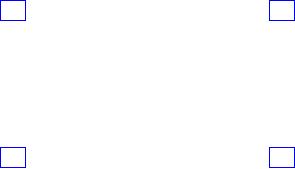
operator!=
template<class
T, class Cont>
bool
operator!=(const
queue <T, Cont>& lhs,
const
queue <T, Cont>& rhs);
The
template function returns !(lhs ==
rhs).
operator==
template<class
T, class Cont>
bool
operator==(const
queue <T, Cont>& lhs,
const
queue <T, Cont>& rhs);
The
template function overloads operator==
to
compare two objects of
template
operator<
template<class
T, class Cont>
bool
operator<(const
queue <T, Cont>& lhs,
const
queue <T, Cont>& rhs);
The
template function overloads operator<
to
compare two objects of
template
operator<=
template<class
T, class Cont>
bool
operator<=(const
queue <T, Cont>& lhs,
const
queue <T, Cont>& rhs);
The
template function returns !(rhs <
lhs).
operator>
template<class
T, class Cont>
bool
operator>(const
queue <T, Cont>& lhs,
const
queue <T, Cont>& rhs);
The
template function returns rhs <
lhs.
operator>=
template<class
T, class Cont>
bool
operator>=(const
queue <T, Cont>& lhs,
const
queue <T, Cont>& rhs);
The
template function returns !(lhs <
rhs).
priority_queue
template<class
T,
class
Cont = vector<T>,
class
Pred = less<typename
Cont::value_type> >
class
priority_queue {
public:
typedef
Cont container_type;
typedef
typename Cont::value_type value_type;
typedef
typename Cont::size_type size_type;
priority_queue();
explicit
priority_queue(const
Pred& pr);
priority_queue(const
Pred& pr,
348
Standard
C++ Library
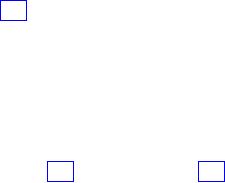
const
container_type& cont);
priority_queue(const
priority_queue& x);
template<class
InIt>
priority_queue(InIt first, InIt
last);
template<class
InIt>
priority_queue(InIt first, InIt
last,
const
Pred& pr);
template<class
InIt>
priority_queue(InIt first, InIt
last,
const
Pred& pr, const container_type&
cont);
bool
empty()
const;
size_type
size()
const;
const
value_type& top()
const;
void
push(const
value_type& x);
void
pop();
protected:
Cont
c;
Pred
comp;
};
The
template class describes an object
that controls a varying-length
sequence of
elements.
The object allocates and
frees storage for the
sequence it controls
through
a
protected object named
c,
of class Cont. The
type T
of
elements in the
controlled
sequence
must match value_type (page
351).
The
sequence is ordered using a
protected object named
comp.
After each insertion
or
removal of the top element
(at position zero), for the
iterators P0
and
Pi
designating
elements at positions 0
and
i, comp(*P0,
*Pi) is
false. (For the
default
template
parameter less<typename
Cont::value_type> the
top element of the
sequence
compares largest, or highest
priority.)
An
object of class Cont
must
supply random-access iterators and
several public
which
are suitable candidates for class
Cont). The
required members are:
typedef
T value_type;
typedef
T0 size_type;
typedef
T1 iterator;
Cont();
template<class
InIt>
Cont(InIt first, InIt
last);
template<class
InIt>
void
insert(iterator it,
InIt first, InIt last);
iterator
begin();
iterator
end();
bool
empty()
const;
size_type
size()
const;
const
value_type& front()
const;
void
push_back(const
value_type& x);
void
pop_back();
Here,
T0
and
T1
are
unspecified types that meet
the stated
requirements.
priority_queue::container_type
typedef
typename Cont::container_type container_type;
The
type is a synonym for the
template parameter Cont.
priority_queue::empty
bool
empty()
const;
The
member function returns true
for an empty controlled
sequence.
349
Chapter
13. Standard Template Library
C++
priority_queue::pop
void
pop();
The
member function removes the
first element of the
controlled sequence,
which
must
be non-empty, then reorders
it.
priority_queue::priority_queue
priority_queue();
explicit
priority_queue(const
Pred& pr);
priority_queue(const
Pred& pr,
const
container_type& cont);
priority_queue(const
priority_queue& x);
template<class
InIt>
priority_queue(InIt first, InIt
last);
template<class
InIt>
priority_queue(InIt first, InIt
last,
const
Pred& pr);
template<class
InIt>
priority_queue(InIt first, InIt
last,
const
Pred& pr, const container_type&
cont);
All
constructors with an argument cont
initialize
the stored object with c(cont).
The
remaining constructors initialize
the stored object with c, to
specify an empty
initial
controlled sequence. The
last three constructors then
call c.insert(c.end(),
first,
last).
All
constructors also store a
function object in comp
(page 349).
The function
object
pr
is
the argument pr, if
present. For the copy
constructor, it is x.comp.
Otherwise,
it
is Pred().
A
non-empty initial controlled
sequence is then ordered by
calling
make_heap(c.begin(),
c.end(), comp).
priority_queue::push
void
push(const
T& x);
The
member function inserts an
element with value x
at
the end of the
controlled
sequence,
then reorders it.
priority_queue::size
size_type
size()
const;
The
member function returns the
length of the controlled
sequence.
priority_queue::size_type
typedef
typename Cont::size_type size_type;
The
type is a synonym for Cont::size_type.
priority_queue::top
const
value_type& top()
const;
The
member function returns a
reference to the first
(highest priority) element
of
the
controlled sequence, which
must be non-empty.
350
Standard
C++ Library

priority_queue::value_type
typedef
typename Cont::value_type value_type;
The
type is a synonym for Cont::value_type.
queue
template<class
T,
class
Cont = deque<T> >
class
queue {
public:
typedef
Cont container_type;
typedef
typename Cont::value_type value_type;
typedef
typename Cont::size_type size_type;
queue();
explicit
queue(const
container_type& cont);
bool
empty()
const;
size_type
size()
const;
value_type&
back();
const
value_type& back()
const;
value_type&
front();
const
value_type& front()
const;
void
push(const
value_type& x);
void
pop();
protected:
Cont
c;
};
The
template class describes an object
that controls a varying-length
sequence of
elements.
The object allocates and
frees storage for the
sequence it controls
through
a
protected object named
c,
of class Cont. The
type T
of
elements in the
controlled
sequence
must match value_type (page
352).
An
object of class Cont
must
supply several public
members defined the same
as
class
Cont). The
required members are:
typedef
T value_type;
typedef
T0 size_type;
Cont();
bool
empty()
const;
size_type
size()
const;
value_type&
front();
const
value_type& front()
const;
value_type&
back();
const
value_type& back()
const;
void
push_back(const
value_type& x);
void
pop_front();
bool
operator==(const
Cont& X) const;
bool
operator!=(const
Cont& X) const;
bool
operator<(const
Cont& X) const;
bool
operator>(const
Cont& X) const;
bool
operator<=(const
Cont& X) const;
bool
operator>=(const
Cont& X) const;
Here,
T0
is an
unspecified type that meets
the stated
requirements.
queue::back
value_type&
back();
const
value_type& back()
const;
The
member function returns a
reference to the last
element of the
controlled
sequence,
which must be
non-empty.
351
Chapter
13. Standard Template Library
C++
queue::container_type
typedef
Cont container_type;
The
type is a synonym for the
template parameter Cont.
queue::empty
bool
empty()
const;
The
member function returns true
for an empty controlled
sequence.
queue::front
value_type&
front();
const
value_type& front()
const;
The
member function returns a
reference to the first
element of the
controlled
sequence,
which must be
non-empty.
queue::pop
void
pop();
The
member function removes the
last element of the
controlled sequence,
which
must
be non-empty.
queue::push
void
push(const
T& x);
The
member function inserts an
element with value x
at
the end of the
controlled
sequence.
queue::queue
queue();
explicit
queue(const
container_type& cont);
The
first constructor initializes
the stored object with c(), to
specify an empty
initial
controlled sequence. The
second constructor initializes
the stored object
with
c(cont), to
specify an initial controlled
sequence that is a copy of
the sequence
controlled
by cont.
queue::size
size_type
size()
const;
The
member function returns the
length of the controlled
sequence.
queue::size_type
typedef
typename Cont::size_type size_type;
The
type is a synonym for Cont::size_type.
queue::value_type
typedef
typename Cont::value_type value_type;
The
type is a synonym for Cont::value_type.
Portions
derived from work copyright
� 1994 by Hewlett-Packard Company.
All rights
reserved.
352
Standard
C++ Library
<set>
namespace
std {
template<class
Key, class Pred, class
A>
class
set;
template<class
Key, class Pred, class
A>
class
multiset;
//
TEMPLATE FUNCTIONS
template<class
Key, class Pred, class
A>
bool
operator==(
const
set<Key, Pred, A>& lhs,
const
set<Key, Pred, A>& rhs);
template<class
Key, class Pred, class
A>
bool
operator==(
const
multiset<Key, Pred, A>&
lhs,
const
multiset<Key, Pred, A>&
rhs);
template<class
Key, class Pred, class
A>
bool
operator!=(
const
set<Key, Pred, A>& lhs,
const
set<Key, Pred, A>& rhs);
template<class
Key, class Pred, class
A>
bool
operator!=(
const
multiset<Key, Pred, A>&
lhs,
const
multiset<Key, Pred, A>&
rhs);
template<class
Key, class Pred, class
A>
bool
operator<(
const
set<Key, Pred, A>& lhs,
const
set<Key, Pred, A>& rhs);
template<class
Key, class Pred, class
A>
bool
operator<(
const
multiset<Key, Pred, A>&
lhs,
const
multiset<Key, Pred, A>&
rhs);
template<class
Key, class Pred, class
A>
bool
operator>(
const
set<Key, Pred, A>& lhs,
const
set<Key, Pred, A>& rhs);
template<class
Key, class Pred, class
A>
bool
operator>(
const
multiset<Key, Pred, A>&
lhs,
const
multiset<Key, Pred, A>&
rhs);
template<class
Key, class Pred, class
A>
bool
operator<=(
const
set<Key, Pred, A>& lhs,
const
set<Key, Pred, A>& rhs);
template<class
Key, class Pred, class
A>
bool
operator<=(
const
multiset<Key, Pred, A>&
lhs,
const
multiset<Key, Pred, A>&
rhs);
template<class
Key, class Pred, class
A>
bool
operator>=(
const
set<Key, Pred, A>& lhs,
const
set<Key, Pred, A>& rhs);
template<class
Key, class Pred, class
A>
bool
operator>=(
const
multiset<Key, Pred, A>&
lhs,
const
multiset<Key, Pred, A>&
rhs);
template<class
Key, class Pred, class
A>
void
swap(
set<Key,
Pred, A>& lhs,
set<Key,
Pred, A>& rhs);
template<class
Key, class Pred, class
A>
void
swap(
multiset<Key,
Pred, A>& lhs,
multiset<Key,
Pred, A>& rhs);
};
353
Chapter
13. Standard Template Library
C++
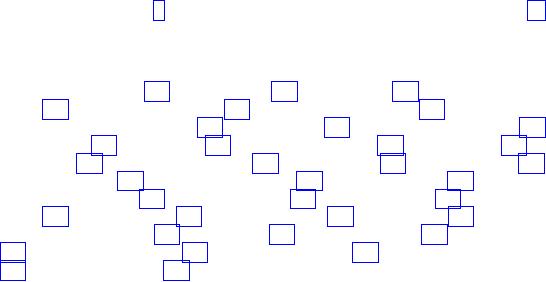
template
classes set
and
multiset, and
their supporting
templates.
multiset
template<class
Key, class Pred =
less<Key>,
class
A = allocator<Key> >
class
multiset
{
public:
typedef
Key key_type;
typedef
Pred key_compare;
typedef
Key value_type;
typedef
Pred value_compare;
typedef
A allocator_type;
typedef
A::pointer pointer;
typedef
A::const_pointer const_pointer;
typedef
A::reference reference;
typedef
A::const_reference const_reference;
typedef
T0 iterator;
typedef
T1 const_iterator;
typedef
T2 size_type;
typedef
T3 difference_type;
typedef
reverse_iterator<const_iterator>
const_reverse_iterator;
typedef
reverse_iterator<iterator> reverse_iterator;
multiset();
explicit
multiset(const
Pred& comp);
multiset(const
Pred& comp, const A& al);
multiset(const
multiset& x);
template<class
InIt>
multiset(InIt first, InIt
last);
template<class
InIt>
multiset(InIt first, InIt
last,
const
Pred& comp);
template<class
InIt>
multiset(InIt first, InIt
last,
const
Pred& comp, const A& al);
const_iterator
begin()
const;
const_iterator
end()
const;
const_reverse_iterator
rbegin()
const;
const_reverse_iterator
rend()
const;
size_type
size()
const;
size_type
max_size()
const;
bool
empty()
const;
A
get_allocator()
const;
iterator
insert(const
value_type& x);
iterator
insert(iterator it,
const value_type& x);
template<class
InIt>
void
insert(InIt first, InIt
last);
iterator
erase(iterator
it);
iterator
erase(iterator first,
iterator last);
size_type
erase(const
Key& key);
void
clear();
354
Standard
C++ Library
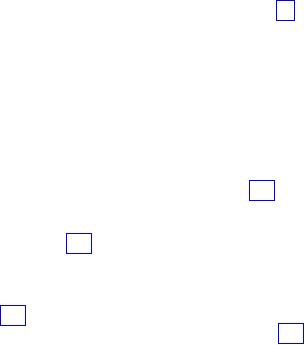
void
swap(multiset&
x);
key_compare
key_comp()
const;
value_compare
value_comp()
const;
const_iterator
find(const
Key& key) const;
size_type
count(const
Key& key) const;
const_iterator
lower_bound(const
Key& key) const;
const_iterator
upper_bound(const
Key& key) const;
pair<const_iterator,
const_iterator>
equal_range(const
Key& key) const;
};
The
template class describes an object
that controls a varying-length
sequence of
elements
of type const
Key.
The sequence is ordered by
(page 39)
the predicate
Pred. Each
element serves as both a
sort
key and a
value.
The sequence is
represented
in a way that permits lookup,
insertion, and removal of an
arbitrary
element
with a number of operations proportional
to the logarithm of the
number
of
elements in the sequence
(logarithmic time). Moreover,
inserting an element
invalidates
no iterators, and removing an element
invalidates only those
iterators
which
point at the removed
element.
The
object orders the sequence
it controls by calling a stored
function
object of
type
Pred. You
access this stored object by
calling the member function
key_comp().
Such
a function object must
impose a total ordering
(page 401)
on sort keys of
type
Key. For
any element x
that
precedes y
in
the sequence, key_comp()(y,
x) is
false.
(For
the default function object
less<Key>, sort
keys never decrease in
value.)
Unlike
template class set (page 361),
an object of template class multiset
does
not
ensure
that key_comp()(x,
y) is
true. (Keys need not be
unique.)
The
object allocates and frees
storage for the sequence it
controls through a
stored
allocator
object (page 337)
of class A. Such
an allocator object must
have the same
external
interface as an object of template class
allocator (page 337).
Note that the
stored
allocator object is not
copied
when the container object is
assigned.
multiset::allocator_type
typedef
A allocator_type;
The
type is a synonym for the
template parameter A.
multiset::begin
const_iterator
begin()
const;
The
member function returns a
bidirectional iterator that
points at the first
element
of
the sequence (or just
beyond the end of an empty
sequence).
multiset::clear
void
clear();
The
member function calls erase(
begin(), iset::end()).
multiset::const_iterator
typedef
T1 const_iterator;
The
type describes an object
that can serve as a constant
bidirectional iterator for
the
controlled sequence. It is described
here as a synonym for
the
implementation-defined
type T1.
multiset::const_pointer
typedef
A::const_pointer const_pointer;
355
Chapter
13. Standard Template Library
C++
The
type describes an object
that can serve as a constant
pointer to an element of
the
controlled sequence.
multiset::const_reference
typedef
A::const_reference const_reference;
The
type describes an object
that can serve as a constant
reference to an element of
the
controlled sequence.
multiset::const_reverse_iterator
typedef
reverse_iterator<const_iterator>
const_reverse_iterator;
The
type describes an object
that can serve as a constant
reverse bidirectional
iterator
for the controlled
sequence.
multiset::count
size_type
count(const
Key& key) const;
The
member function returns the
number of elements x
in
the range
[lower_bound(key),
upper_bound(key)).
multiset::difference_type
typedef
T3 difference_type;
The
signed integer type
describes an object that can
represent the
difference
between
the addresses of any two
elements in the controlled
sequence. It is
described
here as a synonym for the
implementation-defined type T3.
multiset::empty
bool
empty()
const;
The
member function returns true
for an empty controlled
sequence.
multiset::end
const_iterator
end()
const;
The
member function returns a
bidirectional iterator that
points just beyond
the
end
of the sequence.
multiset::equal_range
pair<const_iterator,
const_iterator>
equal_range(const
Key& key) const;
The
member function returns a
pair of iterators x
such
that x.first
==
lower_bound(key)
and
x.second
== upper_bound(key).
multiset::erase
iterator
erase(iterator
it);
iterator
erase(iterator first,
iterator last);
size_type
erase(const
Key& key);
The
first member function
removes the element of the
controlled sequence
pointed
to
by it. The
second member function
removes the elements in the
range [first,
last). Both
return an iterator that
designates the first element
remaining beyond
any
elements removed, or end()
if no
such element exists.
356
Standard
C++ Library
The
third member removes the
elements with sort keys in
the range
[lower_bound(key),
upper_bound(key)). It
returns the number of
elements it
removes.
The
member functions never throw an
exception.
multiset::find
const_iterator
find(const
Key& key) const;
The
member function returns an
iterator that designates the
earliest element in
the
controlled
sequence whose sort key
has equivalent ordering
(page 39)
to key. If
no
such
element exists, the function
returns end().
multiset::get_allocator
A
get_allocator()
const;
The
member function returns the
stored allocator object
(page 337).
multiset::insert
iterator
insert(const
value_type& x);
iterator
insert(iterator it,
const value_type& x);
template<class
InIt>
void
insert(InIt first, InIt
last);
The
first member function
inserts the element x
in
the controlled sequence,
then
returns
the iterator that designates
the inserted element. The
second member
function
returns insert(x), using
it
as a
starting place within the
controlled
sequence
to search for the insertion
point. (Insertion can occur
in amortized
constant
time, instead of logarithmic
time, if the insertion point
immediately
follows
it.) The
third member function
inserts the sequence of
element values, for
each
it
in
the range [first,
last),
by calling insert(*it).
If
an exception is thrown during the
insertion of a single element,
the container is
left
unaltered and the exception is
rethrown. If an exception is thrown
during the
insertion
of multiple elements, the
container is left in a stable
but unspecified state
and
the exception is
rethrown.
multiset::iterator
typedef
T0 iterator;
The
type describes an object
that can serve as a
bidirectional iterator for
the
controlled
sequence. It is described here as a
synonym for the
implementation-defined
type T0.
multiset::key_comp
key_compare
key_comp()
const;
The
member function returns the
stored function object that
determines the order
of
elements in the controlled
sequence. The stored object
defines the member
function:
bool
operator(const Key& x, const Key&
y);
which
returns true if x
strictly
precedes y
in
the sort order.
multiset::key_compare
typedef
Pred key_compare;
357
Chapter
13. Standard Template Library
C++
The
type describes a function
object that can compare two
sort keys to
determine
the
relative order of two elements in
the controlled
sequence.
multiset::key_type
typedef
Key key_type;
The
type describes the sort
key object which constitutes
each element of the
controlled
sequence.
multiset::lower_bound
const_iterator
lower_bound(const
Key& key) const;
The
member function returns an
iterator that designates the
earliest element x
in
the
controlled sequence for which
key_comp()(x,
key) is
false.
If
no such element exists, the
function returns end().
multiset::max_size
size_type
max_size()
const;
The
member function returns the
length of the longest
sequence that the object
can
control.
multiset::multiset
multiset();
explicit
multiset(const
Pred& comp);
multiset(const
Pred& comp, const A& al);
multiset(const
multiset& x);
template<class
InIt>
multiset(InIt first, InIt
last);
template<class
InIt>
multiset(InIt first, InIt
last,
const
Pred& comp);
template<class
InIt>
multiset(InIt first, InIt
last,
const
Pred& comp, const A& al);
All
constructors store an allocator
object (page 337)
and initialize the
controlled
sequence.
The allocator object is the
argument al, if
present. For the
copy
constructor,
it is x.get_allocator().
Otherwise, it is A().
All
constructors also store a
function object that can
later be returned by
calling
key_comp(). The
function object is the
argument comp, if
present. For the
copy
constructor,
it is x.key_comp()).
Otherwise, it is Pred().
The
first three constructors
specify an empty initial
controlled sequence. The
fourth
constructor
specifies a copy of the
sequence controlled by x. The
last three
constructors
specify the sequence of
element values [first,
last).
multiset::pointer
typedef
A::pointer pointer;
The
type describes an object
that can serve as a pointer
to an element of the
controlled
sequence.
multiset::rbegin
const_reverse_iterator
rbegin()
const;
358
Standard
C++ Library
The
member function returns a
reverse bidirectional iterator
that points just
beyond
the end of the controlled
sequence. Hence, it designates
the beginning of
the
reverse sequence.
multiset::reference
typedef
A::reference reference;
The
type describes an object
that can serve as a
reference to an element of
the
controlled
sequence.
multiset::rend
const_reverse_iterator
rend()
const;
The
member function returns a
reverse bidirectional iterator
that points at the
first
element
of the sequence (or just
beyond the end of an empty
sequence). Hence, it
designates
the end of the reverse
sequence.
multiset::reverse_iterator
typedef
reverse_iterator<iterator> reverse_iterator;
The
type describes an object
that can serve as a reverse
bidirectional iterator for
the
controlled
sequence.
multiset::size
size_type
size()
const;
The
member function returns the
length of the controlled
sequence.
multiset::size_type
typedef
T2 size_type;
The
unsigned integer type
describes an object that can
represent the length of
any
controlled
sequence. It is described here as a
synonym for the
implementation-defined
type T2.
multiset::swap
void
swap(multiset&
x);
The
member function swaps the
controlled sequences between *this
and
x.
If
get_allocator()
== x.get_allocator(),
it does so in constant time, it
throws an
exception
only as a result of copying
the stored function object
of type Pred, and
it
invalidates
no references, pointers, or iterators
that designate elements in
the two
controlled
sequences. Otherwise, it performs a
number of element assignments
and
constructor
calls proportional to the
number of elements in the two
controlled
sequences.
multiset::upper_bound
const_iterator
upper_bound(const
Key& key) const;
The
member function returns an
iterator that designates the
earliest element x
in
the
controlled sequence for which
key_comp()(key,
x) is
true.
If
no such element exists, the
function returns end().
multiset::value_comp
value_compare
value_comp()
const;
359
Chapter
13. Standard Template Library
C++
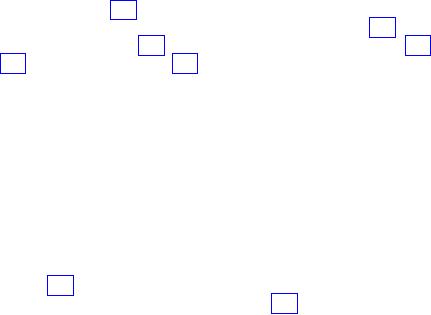
The
member function returns a
function object that
determines the order
of
elements
in the controlled
sequence.
multiset::value_compare
typedef
Pred value_compare;
The
type describes a function
object that can compare two
elements as sort keys
to
determine
their relative order in the
controlled sequence.
multiset::value_type
typedef
Key value_type;
The
type describes an element of
the controlled
sequence.
operator!=
template<class
Key, class Pred, class
A>
bool
operator!=(
const
set <Key, Pred, A>&
lhs,
const
set <Key, Pred, A>&
rhs);
template<class
Key, class Pred, class
A>
bool
operator!=(
const
multiset <Key, Pred, A>&
lhs,
const
multiset <Key, Pred, A>&
rhs);
The
template function returns !(lhs ==
rhs).
operator==
template<class
Key, class Pred, class
A>
bool
operator==(
const
set <Key, Pred, A>&
lhs,
const
set <Key, Pred, A>&
rhs);
template<class
Key, class Pred, class
A>
bool
operator==(
const
multiset <Key, Pred, A>&
lhs,
const
multiset <Key, Pred, A>&
rhs);
The
first template function
overloads operator==
to
compare two objects of
template
class multiset (page 354).
The second template
function overloads
operator==
to
compare two objects of template class
multiset (page 354).
Both
functions
return lhs.size
(page 359)()
== rhs.size() && equal (page
255)(lhs.
begin
(page 355)(), lhs. end (page 356)(),
rhs.begin()).
operator<
template<class
Key, class Pred, class
A>
bool
operator<(
const
set <Key, Pred, A>&
lhs,
const
set <Key, Pred, A>&
rhs);
template<class
Key, class Pred, class
A>
bool
operator<(
const
multiset <Key, Pred, A>&
lhs,
const
multiset <Key, Pred, A>&
rhs);
The
first template function
overloads operator<
to
compare two objects of
template
class
multiset (page 354).
The second template
function overloads operator<
to
compare
two objects of template class multiset
(page 354).
Both functions
return
lexicographical_compare(lhs.
begin(), lhs. end(), rhs.begin(), rhs.end()).
360
Standard
C++ Library
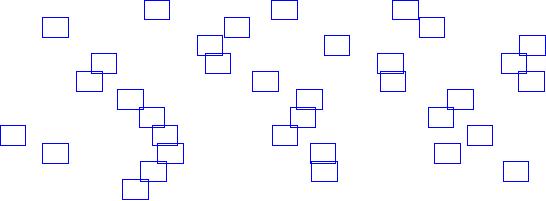
operator<=
template<class
Key, class Pred, class
A>
bool
operator<=(
const
set <Key, Pred, A>&
lhs,
const
set <Key, Pred, A>&
rhs);
template<class
Key, class Pred, class
A>
bool
operator<=(
const
multiset <Key, Pred, A>&
lhs,
const
multiset <Key, Pred, A>&
rhs);
The
template function returns !(rhs <
lhs).
operator>
template<class
Key, class Pred, class
A>
bool
operator>(
const
set <Key, Pred, A>&
lhs,
const
set <Key, Pred, A>&
rhs);
template<class
Key, class Pred, class
A>
bool
operator>(
const
multiset <Key, Pred, A>&
lhs,
const
multiset <Key, Pred, A>&
rhs);
The
template function returns rhs <
lhs.
operator>=
template<class
Key, class Pred, class
A>
bool
operator>=(
const
set <Key, Pred, A>&
lhs,
const
set <Key, Pred, A>&
rhs);
template<class
Key, class Pred, class
A>
bool
operator>=(
const
multiset <Key, Pred, A>&
lhs,
const
multiset <Key, Pred, A>&
rhs);
The
template function returns !(lhs <
rhs).
set
value_type
(page 367)
template<class
Key, class Pred =
less<Key>,
class
A = allocator<Key> >
class
set
{
public:
typedef
Key key_type;
typedef
Pred key_compare;
typedef
Key value_type;
typedef
Pred value_compare;
typedef
A allocator_type;
typedef
A::pointer pointer;
typedef
A::const_pointer const_pointer;
361
Chapter
13. Standard Template Library
C++
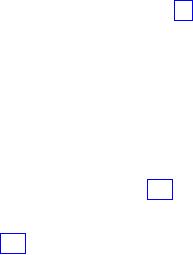
typedef
A::reference reference;
typedef
A::const_reference const_reference;
typedef
T0 iterator;
typedef
T1 const_iterator;
typedef
T2 size_type;
typedef
T3 difference_type;
typedef
reverse_iterator<const_iterator>
const_reverse_iterator;
typedef
reverse_iterator<iterator> reverse_iterator;
set();
explicit
set(const
Pred& comp);
set(const
Pred& comp, const A& al);
set(const
set& x);
template<class
InIt>
set(InIt first, InIt
last);
template<class
InIt>
set(InIt first, InIt
last,
const
Pred& comp);
template<class
InIt>
set(InIt first, InIt
last,
const
Pred& comp, const A& al);
const_iterator
begin()
const;
const_iterator
end()
const;
const_reverse_iterator
rbegin()
const;
const_reverse_iterator
rend()
const;
size_type
size()
const;
size_type
max_size()
const;
bool
empty()
const;
A
get_allocator()
const;
pair<iterator,
bool> insert(const
value_type& x);
iterator
insert(iterator it,
const value_type& x);
template<class
InIt>
void
insert(InIt first, InIt
last);
iterator
erase(iterator
it);
iterator
erase(iterator first,
iterator last);
size_type
erase(const
Key& key);
void
clear();
void
swap(set&
x);
key_compare
key_comp()
const;
value_compare
value_comp()
const;
const_iterator
find(const
Key& key) const;
size_type
count(const
Key& key) const;
const_iterator
lower_bound(const
Key& key) const;
const_iterator
upper_bound(const
Key& key) const;
pair<const_iterator,
const_iterator>
equal_range(const
Key& key) const;
};
The
template class describes an object
that controls a varying-length
sequence of
elements
of type const
Key.
The sequence is ordered by
(page 39)
the predicate
Pred. Each
element serves as both a
sort
key and a
value.
The sequence is
represented
in a way that permits lookup,
insertion, and removal of an
arbitrary
element
with a number of operations proportional
to the logarithm of the
number
of
elements in the sequence
(logarithmic time). Moreover,
inserting an element
invalidates
no iterators, and removing an element
invalidates only those
iterators
which
point at the removed
element.
The
object orders the sequence
it controls by calling a stored
function
object of
type
Pred. You
access this stored object by
calling the member function
key_comp().
Such
a function object must
impose a total ordering
(page 401)
on sort keys of
type
Key. For
any element x
that
precedes y
in
the sequence, key_comp()(y,
x) is
false.
(For
the default function object
less<Key>, sort
keys never decrease in
value.)
Unlike
template class multiset (page 354),
an object of template class set
ensures
that
key_comp()(x,
y) is
true. (Each key is
unique.)
362
Standard
C++ Library
The
object allocates and frees
storage for the sequence it
controls through a
stored
allocator
object (page 337)
of class A. Such
an allocator object must
have the same
external
interface as an object of template class
allocator (page 337).
Note that the
stored
allocator object is not
copied
when the container object is
assigned.
set::allocator_type
typedef
A allocator_type;
The
type is a synonym for the
template parameter A.
set::begin
const_iterator
begin()
const;
The
member function returns a
bidirectional iterator that
points at the first
element
of
the sequence (or just
beyond the end of an empty
sequence).
set::clear
void
clear();
The
member function calls erase(
begin(), end()).
set::const_iterator
typedef
T1 const_iterator;
The
type describes an object
that can serve as a constant
bidirectional iterator for
the
controlled sequence. It is desciibed
here as a synonym for
the
implementation-defined
type T1.
set::const_pointer
typedef
A::const_pointer const_pointer;
The
type describes an object
that can serve as a constant
pointer to an element of
the
controlled sequence.
set::const_reference
typedef
A::const_reference const_reference;
The
type describes an object
that can serve as a constant
reference to an element of
the
controlled sequence.
set::const_reverse_iterator
typedef
reverse_iterator<const_iterator>
const_reverse_iterator;
The
type describes an object
that can serve as a constant
reverse bidirectional
iterator
for the controlled
sequence.
set::count
size_type
count(const
Key& key) const;
The
member function returns the
number of elements x
in
the range
[lower_bound(key),
upper_bound(key)).
set::difference_type
typedef
T3 difference_type;
363
Chapter
13. Standard Template Library
C++
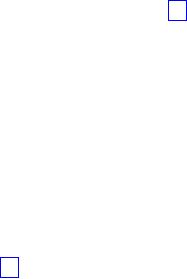
The
signed integer type
describes an object that can
represent the
difference
between
the addresses of any two
elements in the controlled
sequence. It is
desciibed
here as a synonym for the
implementation-defined type T3.
set::empty
bool
empty()
const;
The
member function returns true
for an empty controlled
sequence.
set::end
const_iterator
end()
const;
The
member function returns a
bidirectional iterator that
points just beyond
the
end
of the sequence.
set::equal_range
pair<const_iterator,
const_iterator>
equal_range(const
Key& key) const;
The
member function returns a
pair of iterators x
such
that x.first
==
lower_bound(key)
and
x.second
== upper_bound(key).
set::erase
iterator
erase(iterator
it);
iterator
erase(iterator first,
iterator last);
size_type
erase(const
Key& key);
The
first member function
removes the element of the
controlled sequence
pointed
to
by it. The
second member function
removes the elements in the
range [first,
last). Both
return an iterator that
designates the first element
remaining beyond
any
elements removed, or end()
if no
such element exists.
The
third member removes the
elements with sort keys in
the range
[lower_bound(key),
upper_bound(key)). It
returns the number of
elements it
removes.
The
member functions never throw an
exception.
set::find
const_iterator
find(const
Key& key) const;
The
member function returns an
iterator that designates the
earliest element in
the
controlled
sequence whose sort key
has equivalent ordering
(page 39)
to key. If
no
such
element exists, the function
returns end().
set::get_allocator
A
get_allocator()
const;
The
member function returns the
stored allocator
object.
set::insert
pair<iterator,
bool> insert(const
value_type& x);
iterator
insert(iterator it,
const value_type& x);
template<class
InIt>
void
insert(InIt first, InIt
last);
The
first member function
determines whether an element
y
exists
in the sequence
whose
key has equivalent ordering
(page 39)
to that of x. If
not, it creates such
an
364
Standard
C++ Library
element
y
and
initializes it with x. The
function then determines the
iterator it
that
designates
y. If an
insertion occurred, the
function returns pair(it,
true).
Otherwise,
it returns pair(it,
false).
The
second member function
returns insert(x), using
it
as a
starting place within
the
controlled sequence to search for
the insertion point.
(Insertion can occur
in
amortized
constant time, instead of
logarithmic time, if the
insertion point
immediately
follows it.) The
third member function
inserts the sequence
of
element
values, for each it
in
the range [first,
last),
by calling insert(*it).
If
an exception is thrown during the
insertion of a single element,
the container is
left
unaltered and the exception is
rethrown. If an exception is thrown
during the
insertion
of multiple elements, the
container is left in a stable
but unspecified state
and
the exception is
rethrown.
set::iterator
typedef
T0 iterator;
The
type describes an object
that can serve as a
bidirectional iterator for
the
controlled
sequence. It is described here as a
synonym for the
implementation-defined
type T0.
set::key_comp
key_compare
key_comp()
const;
The
member function returns the
stored function object that
determines the order
of
elements in the controlled
sequence. The stored object
defines the member
function:
bool
operator(const Key& x, const Key&
y);
which
returns true if x
strictly
precedes y
in
the sort order.
set::key_compare
typedef
Pred key_compare;
The
type describes a function
object that can compare two
sort keys to
determine
the
relative order of two elements in
the controlled
sequence.
set::key_type
typedef
Key key_type;
The
type describes the sort
key object which constitutes
each element of the
controlled
sequence.
set::lower_bound
const_iterator
lower_bound(const
Key& key) const;
The
member function returns an
iterator that designates the
earliest element x
in
the
controlled sequence for which
key_comp()(x,
key) is
false.
If
no such element exists, the
function returns end().
set::max_size
size_type
max_size()
const;
365
Chapter
13. Standard Template Library
C++
The
member function returns the
length of the longest
sequence that the object
can
control.
set::pointer
typedef
A::const_pointer pointer;
The
type describes an object
that can serve as a pointer
to an element of the
controlled
sequence.
set::rbegin
const_reverse_iterator
rbegin()
const;
The
member function returns a
reverse bidirectional iterator
that points just
beyond
the end of the controlled
sequence. Hence, it designates
the beginning of
the
reverse sequence.
set::reference
typedef
A::const_reference reference;
The
type describes an object
that can serve as a
reference to an element of
the
controlled
sequence.
set::rend
const_reverse_iterator
rend()
const;
The
member function returns a
reverse bidirectional iterator
that points at the
first
element
of the sequence (or just
beyond the end of an empty
sequence). Hence, it
designates
the end of the reverse
sequence.
set::reverse_iterator
typedef
reverse_iterator<iterator> reverse_iterator;
The
type describes an object
that can serve as a reverse
bidirectional iterator for
the
controlled
sequence.
set::set
set();
explicit
set(const
Pred& comp);
set(const
Pred& comp, const A& al);
set(const
set& x);
template<class
InIt>
set(InIt first, InIt
last);
template<class
InIt>
set(InIt first, InIt
last,
const
Pred& comp);
template<class
InIt>
set(InIt first, InIt
last,
const
Pred& comp, const A& al);
All
constructors store an allocator
object (page 337)
and initialize the
controlled
sequence.
The allocator object is the
argument al, if
present. For the
copy
constructor,
it is x.get_allocator().
Otherwise, it is A().
All
constructors also store a
function object that can
later be returned by
calling
key_comp(). The
function object is the
argument comp, if
present. For the
copy
constructor,
it is x.key_comp()).
Otherwise, it is Pred().
366
Standard
C++ Library
The
first three constructors
specify an empty initial
controlled sequence. The
fourth
constructor
specifies a copy of the
sequence controlled by x. The
last three
constructors
specify the sequence of
element values [first,
last).
set::size
size_type
size()
const;
The
member function returns the
length of the controlled
sequence.
set::size_type
typedef
T2 size_type;
The
unsigned integer type
describes an object that can
represent the length of
any
controlled
sequence. It is desciibed here as a
synonym for the
implementation-
defined
type T2.
set::swap
void
swap(set&
x);
The
member function swaps the
controlled sequences between *this
and
x.
If
get_allocator()
== x.get_allocator(),
it does so in constant time, it
throws an
exception
only as a result of copying
the stored function object
of type Pred, and
it
invalidates
no references, pointers, or iterators
that designate elements in
the two
controlled
sequences. Otherwise, it performs a
number of element assignments
and
constructor
calls proportional to the
number of elements in the two
controlled
sequences.
set::upper_bound
const_iterator
upper_bound(const
Key& key) const;
The
member function returns an
iterator that designates the
earliest element x
in
the
controlled sequence for which
key_comp()(key,
x) is
true.
If
no such element exists, the
function returns end().
set::value_comp
value_compare
value_comp()
const;
The
member function returns a
function object that
determines the order
of
elements
in the controlled
sequence.
set::value_compare
typedef
Pred value_compare;
The
type describes a function
object that can compare two
elements as sort keys
to
determine
their relative order in the
controlled sequence.
set::value_type
typedef
Key value_type;
The
type describes an element of
the controlled
sequence.
swap
template<class
Key, class Pred, class
A>
void
swap(
multiset
<Key, Pred, A>& lhs,
multiset
<Key, Pred, A>& rhs);
367
Chapter
13. Standard Template Library
C++

template<class
Key, class Pred, class
A>
void
swap(
set
<Key, Pred, A>& lhs,
set
<Key, Pred, A>& rhs);
The
template function executes lhs.swap(rhs).
Portions
derived from work copyright
� 1994 by Hewlett-Packard Company.
All rights
reserved.
<stack>
namespace
std {
template<class
T, class Cont>
class
stack;
//
TEMPLATE FUNCTIONS
template<class
T, class Cont>
bool
operator==(const
stack<T, Cont>& lhs,
const
stack<T, Cont>&);
template<class
T, class Cont>
bool
operator!=(const
stack<T, Cont>& lhs,
const
stack<T, Cont>&);
template<class
T, class Cont>
bool
operator<(const
stack<T, Cont>& lhs,
const
stack<T, Cont>&);
template<class
T, class Cont>
bool
operator>(const
stack<T, Cont>& lhs,
const
stack<T, Cont>&);
template<class
T, class Cont>
bool
operator<=(const
stack<T, Cont>& lhs,
const
stack<T, Cont>&);
template<class
T, class Cont>
bool
operator>=(const
stack<T, Cont>& lhs,
const
stack<T, Cont>&);
};
Include
the STL (page 1)
standard header <stack>
to
define the template
class
stack
and two
supporting templates.
operator!=
template<class
T, class Cont>
bool
operator!=(const
stack <T, Cont>& lhs,
const
stack <T, Cont>& rhs);
The
template function returns !(lhs ==
rhs).
operator==
template<class
T, class Cont>
bool
operator==(const
stack <T, Cont>& lhs,
const
stack <T, Cont>& rhs);
The
template function overloads operator==
to
compare two objects of
template
class
stack (page 369).
The function returns lhs.c ==
rhs.c.
operator<
template<class
T, class Cont>
bool
operator<(const
stack <T, Cont>& lhs,
const
stack <T, Cont>& rhs);
368
Standard
C++ Library

The
template function overloads operator<
to
compare two objects of
template
class
stack (page 369).
The function returns lhs.c <
rhs.c.
operator<=
template<class
T, class Cont>
bool
operator<=(const
stack <T, Cont>& lhs,
const
stack <T, Cont>& rhs);
The
template function returns !(rhs <
lhs).
operator>
template<class
T, class Cont>
bool
operator>(const
stack <T, Cont>& lhs,
const
stack <T, Cont>& rhs);
The
template function returns rhs <
lhs.
operator>=
template<class
T, class Cont>
bool
operator>=(const
stack <T, Cont>& lhs,
const
stack <T, Cont>& rhs);
The
template function returns !(lhs <
rhs).
stack
template<class
T,
class
Cont = deque<T> >
class
stack {
public:
typedef
Cont container_type;
typedef
typename Cont::value_type value_type;
typedef
typename Cont::size_type size_type;
stack();
explicit
stack(const
container_type& cont);
bool
empty()
const;
size_type
size()
const;
value_type&
top();
const
value_type& top()
const;
void
push(const
value_type& x);
void
pop();
protected:
Cont
c;
};
The
template class describes an object
that controls a varying-length
sequence of
elements.
The object allocates and
frees storage for the
sequence it controls
through
a
protected object named
c,
of class Cont. The
type T
of
elements in the
controlled
sequence
must match value_type (page
371).
An
object of class Cont
must
supply several public
members defined the same
as
suitable
candidates for class Cont). The
required members are:
typedef
T value_type;
typedef
T0 size_type;
Cont();
bool
empty()
const;
size_type
size()
const;
value_type&
back();
const
value_type& back()
const;
369
Chapter
13. Standard Template Library
C++
void
push_back(const
value_type& x);
void
pop_back();
bool
operator==(const Cont& X)
const;
bool
operator!=(const Cont& X)
const;
bool
operator<(const Cont& X)
const;
bool
operator>(const Cont& X)
const;
bool
operator<=(const Cont& X)
const;
bool
operator>=(const Cont& X)
const;
Here,
T0
is an
unspecified type that meets
the stated
requirements.
stack::container_type
typedef
Cont container_type;
The
type is a synonym for the
template parameter Cont.
stack::empty
bool
empty()
const;
The
member function returns true
for an empty controlled
sequence.
stack::pop
void
pop();
The
member function removes the
last element of the
controlled sequence,
which
must
be non-empty.
stack::push
void
push(const
T& x);
The
member function inserts an
element with value x
at
the end of the
controlled
sequence.
stack::size
size_type
size()
const;
The
member function returns the
length of the controlled
sequence.
stack::size_type
typedef
typename Cont::size_type size_type;
The
type is a synonym for Cont::size_type.
stack::stack
stack();
explicit
stack(const
container_type& cont);
The
first constructor initializes
the stored object with c(), to
specify an empty
initial
controlled sequence. The
second constructor initializes
the stored object
with
c(cont), to
specify an initial controlled
sequence that is a copy of
the sequence
controlled
by cont.
stack::top
value_type&
top();
const
value_type& top()
const;
The
member function returns a
reference to the last
element of the
controlled
sequence,
which must be
non-empty.
370
Standard
C++ Library

stack::value_type
typedef
typename Cont::value_type value_type;
The
type is a synonym for Cont::value_type.
Portions
derived from work copyright � 1994
by Hewlett-Packard Company.
All
rights
reserved.
<unordered_map>
Note:
To
enable this header file, you
must define the macro
_VACPP_TR1.
namespace
std {
namespace
tr1 {
template
<class Key,
class
T,
class
Hash = hash<Key>,
class
Pred = std::equal_to<Key>,
class
Alloc = std::allocator<std::pair<const
Key, T> > >
class
unordered_map;
template
<class Key,
class
T,
class
Hash = hash<Key>,
class
Pred = std::equal_to<Key>,
class
Alloc = std::allocator<std::pair<const
Key, T> > >
class
unordered_multimap;
}
}
Include
the STL (page 1)
standard header <unordered_map>
to
define the container
(page
41)
template classes unordered_map
and
unordered_multimap, and
their
supporting
templates.
unordered_map
namespace
std {
namespace
tr1 {
template
<class Key,
class
T,
class
Hash = hash<Key>,
class
Pred =
std::equal_to<Key>,
class
A= std::allocator<std::pair<const Key, T>
> >
class
unordered_map
{
public:
//
types
typedef
Key
key_type;
typedef
std::pair<const Key, T>
value_type;
371
Chapter
13. Standard Template Library
C++
typedef
T
mapped_type;
typedef
Hash
hasher;
typedef
Pred
key_equal;
typedef
A
allocator_type;
typedef
typename
A::pointer
pointer;
typedef
typename
A::const_pointer
const_pointer;
typedef
typename
A::reference
reference;
typedef
typename
A::const_reference
const_reference;
typedef
T0
size_type;
typedef
T1
difference_type;
typedef
T2
iterator;
typedef
T3
const_iterator;
typedef
T4
local_iterator;
typedef
T5
const_local_iterator;
//
construct/destroy/copy
explicit
unordered_map(size_type
n = 3,
const
hasher& hf = hasher(),
const
key_equal& eql = key_equal(),
const
allocator_type& a = allocator_type());
template
<class InputIterator>
unordered_map(InputIterator
f, InputIterator l,
size_type
n = 3,
const
hasher& hf = hasher(),
const
key_equal& eql = key_equal(),
const
allocator_type& a = allocator_type());
unordered_map(const
unordered_map&);
~unordered_map();
unordered_map&
operator=(const
unordered_map&);
A
get_allocator()
const;
//
size and capacity
bool
empty()
const;
size_type
size()
const;
size_type
max_size()
const;
//
iterators
iterator
begin();
const_iterator
begin()
const;
iterator
end();
const_iterator
end()
const;
//
modifiers
std::pair<iterator,
bool> insert(const
value_type& obj);
iterator
insert(const_iterator
hint, const value_type& obj);
template
<class InputIterator>
void
insert(InputIterator
first, InputIterator last);
void
erase(const_iterator
position);
size_type
erase(const
key_type& k);
void
erase(const_iterator
first, const_iterator last);
void
clear();
void
swap(unordered_map&);
//
observers
hasher
hash_function()
const;
key_equal
key_eq()
const;
//
lookup
iterator
find(const
key_type& k);
const_iterator
find(const
key_type& k) const;
size_type
count(const
key_type& k) const;
std::pair<iterator,
iterator>
equal_range(const
key_type& k);
std::pair<const_iterator,
const_iterator>
372
Standard
C++ Library
equal_range(const
key_type& k) const;
mapped_type&
operator[](const
key_type& k);
//
bucket interface
size_type
bucket_count()
const;
size_type
max_bucket_count()
const;
size_type
bucket_size(size_type
n) const;
size_type
bucket(const
key_type& k) const;
local_iterator
begin(size_type
n);
const_local_iterator
begin(size_type
n) const;
local_iterator
end(size_type
n);
const_local_iterator
end(size_type
n) const;
//
hash policy
float
load_factor()
const;
float
max_load_factor()
const;
void
max_load_factor(float
z);
void
rehash(size_type
n);
};
template
<class Key, class T,
class Hash, class Pred,
class Alloc>
void
swap(const
unordered_map<Key, T, Hash, Pred,
Alloc>& x,
const
unordered_map<Key, T, Hash, Pred,
Alloc>& y);
}
}
The
template class describes an object
that controls a varying-length
sequence of
elements
of type pair<const
Key, T>.
The sequence is unordered.
The first element
of
each pair is the sort
key and the
second is its associated
value.
If you have an
optimal
hash function, the number of
operations performed during
lookup,
insertion,
and removal of an arbitrary element
does not depend on the
number of
elements
in the sequence. Moreover,
inserting an element invalidates no
iterators,
and
removing an element invalidates
only those iterators which
point at the
removed
element.
The
object allocates and frees
storage for the sequence it
controls through a
stored
allocator
object (page 337)
of class A. Such
an allocator object must
have the same
external
interface as an object of template class
allocator (page 337).
Note that the
stored
allocator object is not
copied
when the container object is
assigned.
unordered_map::allocator_type
typedef
A allocator_type;
The
type is a synonym for the
template parameter A.
unordered_map::begin
iterator
begin();
const_iterator
begin()
const;
local_iterator
begin(size_type
n);
const_local_iterator
begin(size_type
n) const;
The
member function returns a
bidirectional iterator that
points at the first
element
of
the sequence (or just
beyond the end of an empty
sequence).
unordered_map::bucket
size_type
bucket(const
key_type& k) const;
The
member function returns the
index of the bucket that
contains the
specified
key.
373
Chapter
13. Standard Template Library
C++
unordered_map::bucket_count
size_type
bucket_count()
const;
The
member function returns the
number of buckets that the
unordered map
contains.
unordered_map::bucket_size
size_type
bucket_size(size_type
n) const;
The
member function returns the
number of elements in the nth
bucket.
unordered_map::clear
void
clear();
The
member function calls erase(
begin(), end()).
unordered_map::const_iterator
typedef
T3 const_iterator;
The
type describes an object
that can serve as a constant
bidirectional iterator for
the
controlled sequence. It is described
here as a synonym for
the
implementation-defined
type T3.
unordered_map::const_local_iterator
typedef
T5 const_local_iterator;
The
type describes an object
that can serve as a constant
bidirectional iterator for
the
controlled sequence. It is described
here as a synonym for
the
implementation-defined
type T5.
unordered_map::const_pointer
typedef
typename A::const_pointer const_pointer;
The
type describes an object
that can serve as a constant
pointer to an element of
the
controlled sequence.
unordered_map::const_reference
typedef
typename A::const_reference const_reference;
The
type describes an object
that can serve as a constant
reference to an element of
the
controlled sequence.
unordered_map::count
size_type
count(const
key_type& k) const;
The
member function returns the
number of elements in the map
that have a key
equivalent
to k, based on the key_eq
function.
unordered_map::difference_type
typedef
T1 difference_type;
The
signed integer type
describes an object that can
represent the
difference
between
the addresses of any two
elements in the controlled
sequence. It is
described
here as a synonym for the
implementation-defined type T1.
374
Standard
C++ Library
unordered_map::empty
bool
empty()
const;
The
member function returns true
for an empty controlled
sequence.
unordered_map::end
const_iterator
end()
const;
iterator
end();
local_iterator
end(size_type
n);
const_local_iterator
end(size_type
n) const;
The
member function returns a
bidirectional iterator that
points just beyond
the
end
of the sequence.
unordered_map::equal_range
std::pair<iterator,
iterator>
equal_range(const
key_type& k);
std::pair<const_iterator,
const_iterator>
equal_range(const
key_type& k) const;
The
member function returns a
range that contains all of
the elements with the
specified
key. It returns make_pair(end(),
end()) if no
such elements exist.
unordered_map::erase
void
erase(const_iterator
position);
size_type
erase(const
key_type& k);
void
erase(const_iterator
first, const_iterator last);
The
first member function
removes the element of the
controlled sequence
pointed
to
by it. The
second member function
removes the elements in the
interval
[first,
last).
Both return an iterator that
designates the first element
remaining
beyond
any elements removed, or end()
if no
such element exists.
The
third member function
removes all the elements in
the map. It returns
the
number
of elements it removes.
The
member functions never throw an
exception.
unordered_map::find
iterator
find(const
key_type& k);
const_iterator
find(const
key_type& k) const;
The
member function returns an
iterator that designates the
earliest element in
the
controlled
sequence whose sort key
has equivalent ordering
(page 39)
to key. If
no
such
element exists, the function
returns end().
unordered_map::get_allocator
A
get_allocator()
const;
The
member function returns the
stored allocator object
(page 337).
unordered_map::hasher
typedef
Hash hasher;
The
type returns a value of type
std::size_t.
unordered_map::hash_function
hasher
hash_function()
const;
375
Chapter
13. Standard Template Library
C++
The
member function returns the
hash function that was
used to construct the
map.
unordered_map::insert
std::pair<iterator,
bool> insert(const
value_type& obj);
iterator
insert(const_iterator
hint, const value_type& obj);
template
<class InputIterator>
void
insert(InputIterator
first, InputIterator last);
The
first member function
determines whether an element
y
exists
in the sequence
whose
key has equivalent ordering
(page 39)
to that of obj. If
not, it creates such
an
element y
and
initializes it with obj. The
function then determines the
iterator
it
that
designates y. If an
insertion occurred, the
function returns pair(it,
true).
Otherwise,
it returns pair(it,
false).
The
second member function
returns insert(obj), using
it
as a
starting place
within
the controlled sequence to
search for the insertion
point. The third
member
function
inserts the sequence of
element values, for each it in the
range [first,
last), by
calling insert(*it).
If
an exception is thrown during the
insertion of a single element,
the container is
left
unaltered and the exception is
rethrown. If an exception is thrown
during the
insertion
of multiple elements, the
container is left in a stable
but unspecified state
and
the exception is
rethrown.
unordered_map::iterator
typedef
T2 iterator;
The
type describes an object
that can serve as a
bidirectional iterator for
the
controlled
sequence. It is described here as a
synonym for the
implementation-defined
type T2.
unordered_map::key_eq
key_equal
key_eq()
const;
The
member function returns the
key equality function that
was used to create
the
map.
unordered_map::key_equal
typedef
Pred key_equal;
The
type returns an equivalence
relation.
unordered_map::key_type
typedef
Key key_type;
The
type describes the sort
key object stored in each
element of the
controlled
sequence.
unordered_map::load_factor
float
load_factor()
const;
The
member function returns the
average number of elements
per bucket.
unordered_map::local_iterator
typedef
T4 local_iterator;
376
Standard
C++ Library
The
type describes an object
that can serve as a constant
bidirectional iterator for
the
controlled sequence. It is described
here as a synonym for
the
implementation-defined
type T4.
unordered_map::mapped_type
typedef
T mapped_type;
The
type is a synonym for the
template parameter T.
unordered_map::max_bucket_count
size_type
max_bucket_count()
const;
The
member function returns the
maximum number of buckets
that the unordered
map
can contain.
unordered_map::max_load_factor
float
max_load_factor()
const;
void
max_load_factor(float
z);
The
first member function
returns the maximum value
that the container
attempts
to
maintain for the load factor
(the average number of
elements per bucket). If
the
load
factor increases beyond this
value, the container creates
more buckets.
The
second member function sets
the maximum load factor. If
this value is less
than
the current load factor,
the unordered map is
rehashed.
unordered_map::max_size
size_type
max_size()
const;
The
member function returns the
length of the longest
sequence that the object
can
control.
unordered_map::operator[]
mapped_type&
operator[](const
key_type& k);
The
member function determines
the iterator it
as
the return value of insert(
value_type(k,
T()).
(It inserts an element with
the specified key if no
such
element
exists.) It then returns a
reference to (*it).second.
unordered_map::pointer
typedef
typename A::pointer pointer;
The
type describes an object
that can serve as a pointer
to an element of the
controlled
sequence.
unordered_map::reference
typedef
typename A::reference reference;
The
type describes an object
that can serve as a
reference to an element of
the
controlled
sequence.
unordered_map::rehash
void
rehash(size_type
n);
The
member function rehashes the
unordered map, ensuring that
it contains at
least
n
buckets.
377
Chapter
13. Standard Template Library
C++

unordered_map::size
size_type
size()
const;
The
member function returns the
length of the controlled
sequence.
unordered_map::size_type
typedef
T0 size_type;
The
unsigned integer type
describes an object that can
represent the length of
any
controlled
sequence. It is described here as a
synonym for the
implementation-defined
type T0.
unordered_map::swap
void
swap(unordered_map&
x);
The
member function swaps the
controlled sequences between *this
and
x.
If
get_allocator()
== x.get_allocator(),
it does so in constant time, it
throws an
exception
only as a result of copying
the stored function object
of type Pred, and
it
invalidates
no references, pointers, or iterators
that designate elements in
the two
controlled
sequences. Otherwise, it performs a
number of element assignments
and
constructor
calls proportional to the
number of elements in the two
controlled
sequences.
unordered_map::unordered_map
explicit
unordered_map(size_type
n = 3,
const
hasher& hf = hasher(),
const
key_equal& eql = key_equal(),
const
allocator_type& a = allocator_type());
template
<class InputIterator>
unordered_map(InputIterator
f, InputIterator l,
size_type
n = 3,
const
hasher& hf = hasher(),
const
key_equal& eql = key_equal(),
const
allocator_type& a = allocator_type());
unordered_map(const
unordered_map&);
~unordered_map();
unordered_map&
operator=(const
unordered_map&);
All
constructors store an allocator
object (page 337)
and initialize the
controlled
sequence.
The allocator object is the
argument al, if
present. For the
copy
constructor,
it is x.get_allocator().
Otherwise, it is A().
The
first three constructors
specify an empty initial
controlled sequence. The
fourth
constructor
specifies a copy of the
sequence controlled by x. The
last three
constructors
specify the sequence of
element values [first,
last).
unordered_map::value_type
typedef
std::pair<const Key, T> value_type;
The
type describes an element of
the controlled
sequence.
unordered_multimap
378
Standard
C++ Library

namespace
std {
namespace
tr1 {
template
<class Key,
class
T,
class
Hash = hash<Key>,
class
Pred =
std::equal_to<Key>,
class
A= std::allocator<std::pair<const Key, T>
> >
class
unordered_multimap
{
public:
//
types
typedef
Key
key_type;
typedef
std::pair<const Key, T>
value_type;
typedef
T
mapped_type;
typedef
Hash
hasher;
typedef
Pred
key_equal;
typedef
A
allocator_type;
typedef
typename A::pointer
pointer;
typedef
typename A::const_pointer
const_pointer;
typedef
typename A::reference
reference;
typedef
typename A::const_reference const_reference;
typedef
T0
size_type;
typedef
T1
difference_type;
typedef
T2
iterator;
typedef
T3
const_iterator;
typedef
T4
local_iterator;
typedef
T5
const_local_iterator;
//
construct/destroy/copy
explicit
unordered_multimap(size_type
n = 3,
const
hasher& hf = hasher(),
const
key_equal& eql = key_equal(),
const
allocator_type& a = allocator_type());
template
<class InputIterator>
unordered_multimap(InputIterator
f, InputIterator l,
size_type
n = 3,
const
hasher& hf = hasher(),
const
key_equal& eql = key_equal(),
const
allocator_type& a = allocator_type());
unordered_multimap(const
unordered_multimap&);
~unordered_multimap();
unordered_multimap&
operator=(const
unordered_multimap&);
A
get_allocator()
const;
//
size and capacity
bool
empty()
const;
size_type
size()
const;
size_type
max_size()
const;
//
iterators
iterator
begin();
const_iterator
begin()
const;
iterator
end();
const_iterator
end()
const;
//
modifiers
iterator
insert(const
value_type& obj);
iterator
insert(const_iterator
hint, const value_type& obj);
template
<class InputIterator>
void
insert(InputIterator
first, InputIterator last);
379
Chapter
13. Standard Template Library
C++
void
erase(const_iterator
position);
size_type
erase(const
key_type& k);
void
erase(const_iterator
first, const_iterator last);
void
clear();
void
swap(unordered_multimap&);
//
observers
hasher
hash_function()
const;
key_equal
key_eq()
const;
//
lookup
iterator
find(const
key_type& k);
const_iterator
find(const
key_type& k) const;
size_type
count(const
key_type& k) const;
std::pair<iterator,
iterator>
equal_range(const
key_type& k);
std::pair<const_iterator,
const_iterator>
equal_range(const
key_type& k) const;
//
bucket interface
size_type
bucket_count()
const;
size_type
max_bucket_count()
const;
size_type
bucket_size(size_type
n) const;
size_type
bucket(const
key_type& k) const;
local_iterator
begin(size_type
n);
const_local_iterator
begin(size_type
n) const;
local_iterator
end(size_type
n);
const_local_iterator
end(size_type
n) const;
//
hash policy
float
load_factor()
const;
float
max_load_factor()
const;
void
max_load_factor(float
z);
void
rehash(size_type
n);
};
template
<class Key, class T,
class Hash, class Pred,
class Alloc>
void
swap(const
unordered_multimap<Key, T, Hash, Pred,
Alloc>& x,
const
unordered_multimap<Key, T, Hash, Pred,
Alloc>& y);
}
}
The
template class describes an object
that controls a varying-length
sequence of
elements
of type pair<const
Key, T>.
The sequence is unordered.
The first element
of
each pair is the sort
key and the
second is its associated
value.
If you have an
optimal
hash function, the number of
operations performed during
lookup,
insertion,
and removal of an arbitrary element
does not depend on the
number of
elements
in the sequence. Moreover,
inserting an element invalidates no
iterators,
and
removing an element invalidates
only those iterators which
point at the
removed
element.
The
object allocates and frees
storage for the sequence it
controls through a
stored
allocator
object (page 337)
of class A. Such
an allocator object must
have the same
external
interface as an object of template class
allocator (page 337).
Note that the
stored
allocator object is not
copied
when the container object is
assigned.
unordered_multimap::allocator_type
typedef
A allocator_type;
The
type is a synonym for the
template parameter A.
380
Standard
C++ Library
unordered_multimap::begin
iterator
begin();
const_iterator
begin()
const;
local_iterator
begin(size_type
n);
const_local_iterator
begin(size_type
n) const;
The
member function returns a
bidirectional iterator that
points at the first
element
of
the sequence (or just
beyond the end of an empty
sequence).
unordered_multimap::bucket
size_type
bucket(const
key_type& k) const;
The
member function returns the
index of the bucket that
contains the
specified
key.
unordered_multimap::bucket_count
size_type
bucket_count()
const;
The
member function returns the
number of buckets that the
unordered multimap
contains.
unordered_multimap::bucket_size
size_type
bucket_size(size_type
n) const;
The
member function returns the
number of elements in the nth
bucket.
unordered_multimap::clear
void
clear();
The
member function calls erase(
begin(), end()).
unordered_multimap::const_iterator
typedef
T3 const_iterator;
The
type describes an object
that can serve as a constant
bidirectional iterator for
the
controlled sequence. It is described
here as a synonym for
the
implementation-defined
type T3.
unordered_multimap::const_local_iterator
typedef
T5 const_local_iterator;
The
type describes an object
that can serve as a constant
bidirectional iterator for
the
controlled sequence. It is described
here as a synonym for
the
implementation-defined
type T5.
unordered_multimap::const_pointer
typedef
typename A::const_pointer const_pointer;
The
type describes an object
that can serve as a constant
pointer to an element of
the
controlled sequence.
unordered_multimap::const_reference
typedef
typename A::const_reference const_reference;
The
type describes an object
that can serve as a constant
reference to an element of
the
controlled sequence.
381
Chapter
13. Standard Template Library
C++
unordered_multimap::count
size_type
count(const
key_type& k) const;
The
member function returns the
number of elements in the
multimap that have a
key
equivalent to k, based on the
key_eq function.
unordered_multimap::difference_type
typedef
T1 difference_type;
The
signed integer type
describes an object that can
represent the
difference
between
the addresses of any two
elements in the controlled
sequence. It is
described
here as a synonym for the
implementation-defined type T1.
unordered_multimap::empty
bool
empty()
const;
The
member function returns true
for an empty controlled
sequence.
unordered_multimap::end
const_iterator
end()
const;
iterator
end();
local_iterator
end(size_type
n);
const_local_iterator
end(size_type
n) const;
The
member function returns a
bidirectional iterator that
points just beyond
the
end
of the sequence.
unordered_multimap::equal_range
std::pair<iterator,
iterator>
equal_range(const
key_type& k);
std::pair<const_iterator,
const_iterator>
equal_range(const
key_type& k) const;
The
member function returns a
range that contains all of
the elements with the
specified
key. It returns make_pair(end(),
end()) if no
such elements exist.
unordered_multimap::erase
void
erase(const_iterator
position);
size_type
erase(const
key_type& k);
void
erase(const_iterator
first, const_iterator last);
The
first member function
removes the element of the
controlled sequence
pointed
to
by it. The
second member function
removes the elements in the
range [first,
last). Both
return an iterator that
designates the first element
remaining beyond
any
elements removed, or end()
if no
such element exists.
The
third member removes all
the elements in the
multimap. It returns the
number
of
elements it removes.
The
member functions never throw an
exception.
unordered_multimap::find
iterator
find(const
key_type& k);
const_iterator
find(const
key_type& k) const;
382
Standard
C++ Library
The
member function returns an
iterator that designates the
earliest element in
the
controlled
sequence whose sort key
has equivalent ordering
(page 39)
to key. If
no
such
element exists, the function
returns end().
unordered_multimap::get_allocator
A
get_allocator()
const;
The
member function returns the
stored allocator object
(page 337).
unordered_multimap::hasher
typedef
Hash hasher;
The
type returns a value of type
std::size_t.
unordered_multimap::hash_function
hasher
hash_function()
const;
The
member function returns the
hash function that was
used to construct the
multimap.
unordered_multimap::insert
iterator
insert(const
value_type& obj);
iterator
insert(const_iterator
hint, const value_type& obj);
template
<class InputIterator>
void
insert(InputIterator
first, InputIterator last);
The
first member function
inserts the element obj
in
the controlled sequence,
then
returns
the iterator that designates
the inserted element. The
second member
function
returns insert(obj), using
it
as a
starting place within the
controlled
sequence
to search for the insertion
point. The third member
function inserts the
sequence
of element values, for each it in the
range [first,
last),
by calling
insert(*it).
If
an exception is thrown during the
insertion of a single element,
the container is
left
unaltered and the exception is
rethrown. If an exception is thrown
during the
insertion
of multiple elements, the
container is left in a stable
but unspecified state
and
the exception is
rethrown.
unordered_multimap::iterator
typedef
T2 iterator;
The
type describes an object
that can serve as a
bidirectional iterator for
the
controlled
sequence. It is described here as a
synonym for the
implementation-defined
type T2.
unordered_multimap::key_eq
key_equal
key_eq()
const;
The
member function returns the
key equality function that
was used to create
the
multimap.
unordered_multimap::key_equal
typedef
Pred key_equal;
The
type returns an equivalence
relation.
383
Chapter
13. Standard Template Library
C++
unordered_multimap::key_type
typedef
Key key_type;
The
type describes the sort
key object stored in each
element of the
controlled
sequence.
unordered_multimap::load_factor
float
load_factor()
const;
The
member function returns the
average number of elements
per bucket.
unordered_multimap::local_iterator
typedef
T4 local_iterator;
The
type describes an object
that can serve as a constant
bidirectional iterator for
the
controlled sequence. It is described
here as a synonym for
the
implementation-defined
type T4.
unordered_multimap::mapped_type
typedef
T mapped_type;
The
type is a synonym for the
template parameter T.
unordered_multimap::max_bucket_count
size_type
max_bucket_count()
const;
The
member function returns the
maximum number of buckets
that the unordered
multimap
can contain.
unordered_multimap::max_load_factor
float
max_load_factor()
const;
void
max_load_factor(float
z);
The
first member function
returns the maximum value
that the container
attempts
to
maintain for the load factor
(the average number of
elements per bucket). If
the
load
factor increases beyond this
value, the container creates
more buckets.
The
second member function sets
the maximum load factor. If
this value is less
than
the current load factor,
the unordered multimap is
rehashed.
unordered_multimap::max_size
size_type
max_size()
const;
The
member function returns the
length of the longest
sequence that the object
can
control.
unordered_multimap::pointer
typedef
typename A::pointer pointer;
The
type describes an object
that can serve as a pointer
to an element of the
controlled
sequence.
unordered_multimap::reference
typedef
typename A::reference reference;
The
type describes an object
that can serve as a
reference to an element of
the
controlled
sequence.
384
Standard
C++ Library

unordered_multimap::rehash
void
rehash(size_type
n);
The
member function rehashes the
unordered multimap, ensuring
that it contains
at
least n
buckets.
unordered_multimap::size
size_type
size()
const;
The
member function returns the
length of the controlled
sequence.
unordered_multimap::size_type
typedef
T0 size_type;
The
unsigned integer type
describes an object that can
represent the length of
any
controlled
sequence. It is described here as a
synonym for the
implementation-defined
type T0.
unordered_multimap::swap
void
swap(unordered_multimap&
x);
The
member function swaps the
controlled sequences between *this
and
x.
If
get_allocator()
== x.get_allocator(),
it does so in constant time, it
throws an
exception
only as a result of copying
the stored function object
of type Pred, and
it
invalidates
no references, pointers, or iterators
that designate elements in
the two
controlled
sequences. Otherwise, it performs a
number of element assignments
and
constructor
calls proportional to the
number of elements in the two
controlled
sequences.
unordered_multimap::unordered_multimap
explicit
unordered_multimap(size_type
n = 3,
const
hasher& hf = hasher(),
const
key_equal& eql = key_equal(),
const
allocator_type& a = allocator_type());
template
<class InputIterator>
unordered_multimap(InputIterator
f, InputIterator l,
size_type
n = 3,
const
hasher& hf = hasher(),
const
key_equal& eql = key_equal(),
const
allocator_type& a = allocator_type());
unordered_multimap(const
unordered_multimap&);
~unordered_multimap();
unordered_multimap&
operator=(const
unordered_multimap&);
All
constructors store an allocator
object (page 337)
and initialize the
controlled
sequence.
The allocator object is the
argument al, if
present. For the
copy
constructor,
it is x.get_allocator
(page 383)().
Otherwise, it is A().
The
first three constructors
specify an empty initial
controlled sequence. The
fourth
constructor
specifies a copy of the
sequence controlled by x. The
last three
constructors
specify the sequence of
element values [first,
last).
unordered_multimap::value_type
typedef
std::pair<const Key, T> value_type;
The
type describes an element of
the controlled
sequence.
385
Chapter
13. Standard Template Library
C++

<unordered_set>
Note:
To
enable this header file, you
must define the macro
_VACPP_TR1.
namespace
std {
namespace
tr1 {
template
<class Value,
class
Hash = hash<Value>,
class
Pred = std::equal_to<Value>,
class
Alloc = std::allocator<Value>
>
class
unordered_set;
template
<class Value,
class
Hash = hash<Value>,
class
Pred = std::equal_to<Value>,
class
Alloc = std::allocator<Value>
>
class
unordered_multiset;
}
}
Include
the STL (page 1)
standard header <unordered_set>
to
define the container
(page
41)
template classes unordered_set
and
unordered_multiset, and
their
supporting
templates.
unordered_multiset
namespace
std {
namespace
tr1 {
template
<class Value,
class
Hash = hash<Value>,
class
Pred =
std::equal_to<Value>,
class
A= std::allocator<Value> >
class
unordered_multiset
{
public:
//
types
typedef
Value
key_type;
typedef
Value
value_type;
typedef
Hash
hasher;
typedef
Pred
key_equal;
typedef
A
allocator_type;
typedef
typename A::pointer
pointer;
typedef
typename A::const_pointer
const_pointer;
typedef
typename A::reference
reference;
typedef
typename A::const_reference const_reference;
typedef
T0
size_type;
typedef
T1
difference_type;
typedef
T2
iterator;
typedef
T3
const_iterator;
typedef
T4
local_iterator;
typedef
T5
const_local_iterator;
386
Standard
C++ Library
//
construct/destroy/copy
explicit
unordered_multiset(size_type
n = 3,
const
hasher& hf = hasher(),
const
key_equal& eql = key_equal(),
const
allocator_type& a = allocator_type());
template
<class InputIterator>
unordered_multiset(InputIterator
f, InputIterator l,
size_type
n = 3,
const
hasher& hf = hasher(),
const
key_equal& eql = key_equal(),
const
allocator_type& a = allocator_type());
unordered_multiset(const
unordered_multiset&);
~unordered_multiset();
unordered_multiset&
operator=(const
unordered_multiset&);
A
get_allocator()
const;
//
size and capacity
bool
empty()
const;
size_type
size()
const;
size_type
max_size()
const;
//
iterators
iterator
begin();
const_iterator
begin()
const;
iterator
end();
const_iterator
end()
const;
//
modifiers
iterator
insert(const
value_type& obj);
iterator
insert(const_iterator
hint, const value_type& obj);
template
<class InputIterator>
void
insert(InputIterator
first, InputIterator last);
void
erase(const_iterator
position);
size_type
erase(const
key_type& k);
void
erase(const_iterator
first, const_iterator last);
void
clear();
void
swap(unordered_multiset&);
//
observers
hasher
hash_function()
const;
key_equal
key_eq()
const;
//
lookup
iterator
find(const
key_type& k);
const_iterator
find(const
key_type& k) const;
size_type
count(const
key_type& k) const;
std::pair<iterator,
iterator>
equal_range(const
key_type& k);
std::pair<const_iterator,
const_iterator>
equal_range(const
key_type& k) const;
//
bucket interface
size_type
bucket_count()
const;
size_type
max_bucket_count()
const;
size_type
bucket_size(size_type
n) const;
size_type
bucket(const
key_type& k) const;
local_iterator
begin(size_type
n);
const_local_iterator
begin(size_type
n) const;
local_iterator
end(size_type
n);
const_local_iterator
end(size_type
n) const;
//
hash policy
float
load_factor()
const;
387
Chapter
13. Standard Template Library
C++
float
max_load_factor()
const;
void
max_load_factor(float
z);
void
rehash(size_type
n);
};
template
<class Value, class Hash,
class Pred, class
Alloc>
void
swap(const
unordered_multiset<Value, Hash, Pred,
Alloc>& x,
const
unordered_multiset<Value, Hash, Pred,
Alloc>& y);
}
}
The
template class describes an object
that controls a varying-length
sequence of
elements
of type const
Key.
The sequence is unordered.
Each element serves
as
both
a sort
key and a
value.
If you have an optimal hash
function, the number
of
operations
performed during lookup,
insertion, and removal of an
arbitrary
element
does not depend on the
number of elements in the
sequence. Moreover,
inserting
an element invalidates no iterators, and
removing an element
invalidates
only
those iterators which point
at the removed
element.
The
object allocates and frees
storage for the sequence it
controls through a
stored
allocator
object (page 337)
of class A. Such
an allocator object must
have the same
external
interface as an object of template class
allocator (page 337).
Note that the
stored
allocator object is not
copied
when the container object is
assigned.
unordered_multiset::allocator_type
typedef
A allocator_type;
The
type is a synonym for the
template parameter A.
unordered_multiset::begin
iterator
begin();
const_iterator
begin()
const;
local_iterator
begin(size_type
n);
const_local_iterator
begin(size_type
n) const;
The
member function returns a
bidirectional iterator that
points at the first
element
of
the sequence (or just
beyond the end of an empty
sequence).
unordered_multiset::bucket
size_type
bucket(const
key_type& k) const;
The
member function returns the
index of the bucket that
contains the
specified
key.
unordered_multiset::bucket_count
size_type
bucket_count()
const;
The
member function returns the
number of buckets that the
unordered multiset
contains.
unordered_multiset::bucket_size
size_type
bucket_size(size_type
n) const;
The
member function returns the
number of elements in the nth
bucket.
388
Standard
C++ Library
unordered_multiset::clear
void
clear();
The
member function calls erase(
begin(), end()).
unordered_multiset::const_iterator
typedef
T3 const_iterator;
The
type describes an object
that can serve as a constant
bidirectional iterator for
the
controlled sequence. It is described
here as a synonym for
the
implementation-defined
type T3.
unordered_multiset::const_local_iterator
typedef
T5 const_local_iterator;
The
type describes an object
that can serve as a constant
bidirectional iterator for
the
controlled sequence. It is described
here as a synonym for
the
implementation-defined
type T5.
unordered_multiset::const_pointer
typedef
typename A::const_pointer const_pointer;
The
type describes an object
that can serve as a constant
pointer to an element of
the
controlled sequence.
unordered_multiset::const_reference
typedef
typename A::const_reference const_reference;
The
type describes an object
that can serve as a constant
reference to an element of
the
controlled sequence.
unordered_multiset::count
size_type
count(const
key_type& k) const;
The
member function returns the
number of elements in the
multiset that have a
key
equivalent to k, based on the
key_eq function.
unordered_multiset::difference_type
typedef
T1 difference_type;
The
signed integer type
describes an object that can
represent the
difference
between
the addresses of any two
elements in the controlled
sequence. It is
described
here as a synonym for the
implementation-defined type T1.
unordered_multiset::empty
bool
empty()
const;
The
member function returns true
for an empty controlled
sequence.
unordered_multiset::end
iterator
end();
const_iterator
end()
const;
local_iterator
end(size_type
n);
const_local_iterator
end(size_type
n) const;
The
member function returns a
bidirectional iterator that
points just beyond
the
end
of the sequence.
389
Chapter
13. Standard Template Library
C++
unordered_multiset::equal_range
std::pair<iterator,
iterator>
equal_range(const
key_type& k);
std::pair<const_iterator,
const_iterator>
equal_range(const
key_type& k) const;
The
member function returns a
range that contains all of
the elements with the
specified
key. It returns make_pair(end(),
end()) if no
such elements exist.
unordered_multiset::erase
void
erase(const_iterator
position);
size_type
erase(const
key_type& k);
void
erase(const_iterator
first, const_iterator last);
The
first member function
removes the element of the
controlled sequence
pointed
to
by it. The
second member function
removes the elements in the
range [first,
last). Both
return an iterator that
designates the first element
remaining beyond
any
elements removed, or end()
if no
such element exists.
The
third member removes all
the elements in the
multiset. It returns the
number
of
elements it removes.
The
member functions never throw an
exception.
unordered_multiset::find
iterator
find(const
key_type& k);
const_iterator
find(const
key_type& k) const;
The
member function returns an
iterator that designates the
earliest element in
the
controlled
sequence whose sort key
has equivalent ordering
(page 39)
to key. If
no
such
element exists, the function
returns end().
unordered_multiset::get_allocator
A
get_allocator()
const;
The
member function returns the
stored allocator object
(page 337).
unordered_multiset::hasher
typedef
Hash hasher;
The
type returns a value of type
std::size_t.
unordered_multiset::hash_function
hasher
hash_function()
const;
The
member function returns the
hash function that was
used to construct the
multiset.
unordered_multiset::insert
iterator
insert(const
value_type& obj);
iterator
insert(const_iterator
hint, const value_type& obj);
template
<class InputIterator>
void
insert(InputIterator
first, InputIterator last);
The
first member function
inserts the element obj
in
the controlled sequence,
then
returns
the iterator that designates
the inserted element. The
second member
function
returns insert(obj), using
it
as a
starting place within the
controlled
390
Standard
C++ Library
sequence
to search for the insertion
point. The third member
function inserts the
sequence
of element values, for each it in the
range [first,
last),
by calling
insert(*it).
If
an exception is thrown during the
insertion of a single element,
the container is
left
unaltered and the exception is
rethrown. If an exception is thrown
during the
insertion
of multiple elements, the
container is left in a stable
but unspecified state
and
the exception is
rethrown.
unordered_multiset::iterator
typedef
T2 iterator;
The
type describes an object
that can serve as a
bidirectional iterator for
the
controlled
sequence. It is described here as a
synonym for the
implementation-defined
type T2.
unordered_multiset::key_eq
key_equal
key_eq()
const;
The
member function returns the
key equality function that
was used to create
the
multiset.
unordered_multiset::key_equal
typedef
Pred key_equal;
The
type returns an equivalence
relation.
unordered_multiset::key_type
typedef
Value key_type;
The
type describes the sort
key object which constitutes
each element of the
controlled
sequence.
unordered_multiset::load_factor
float
load_factor()
const;
The
member function returns the
average number of elements
per bucket.
unordered_multiset::local_iterator
typedef
T4 local_iterator;
The
type describes an object
that can serve as a constant
bidirectional iterator for
the
controlled sequence. It is described
here as a synonym for
the
implementation-defined
type T4.
unordered_multiset::max_bucket_count
size_type
max_bucket_count()
const;
The
member function returns the
maximum number of buckets
that the unordered
multiset
can contain.
unordered_multiset::max_load_factor
float
max_load_factor()
const;
void
max_load_factor(float
z);
391
Chapter
13. Standard Template Library
C++
The
first member function
returns the maximum value
that the container
attempts
to
maintain for the load factor
(the average number of
elements per bucket). If
the
load
factor increases beyond this
value, the container creates
more buckets.
The
second member function sets
the maximum load factor. If
this value is less
than
the current load factor,
the unordered multiset is
rehashed.
unordered_multiset::max_size
size_type
max_size()
const;
The
member function returns the
length of the longest
sequence that the object
can
control.
unordered_multiset::pointer
typedef
typename A::pointer pointer;
The
type describes an object
that can serve as a pointer
to an element of the
controlled
sequence.
unordered_multiset::reference
typedef
typename A::reference reference;
The
type describes an object
that can serve as a
reference to an element of
the
controlled
sequence.
unordered_multiset::rehash
void
rehash(size_type
n);
The
member function rehashes the
unordered multiset, ensuring
that it contains at
least
n
buckets.
unordered_multiset::size
size_type
size()
const;
The
member function returns the
length of the controlled
sequence.
unordered_multiset::size_type
typedef
T0 size_type;
The
unsigned integer type
describes an object that can
represent the length of
any
controlled
sequence. It is described here as a
synonym for the
implementation-defined
type T0.
unordered_multiset::swap
void
swap(unordered_multiset&
x);
The
member function swaps the
controlled sequences between *this
and
x.
If
get_allocator()
== x.get_allocator(),
it does so in constant time, it
throws an
exception
only as a result of copying
the stored function object
of type Pred, and
it
invalidates
no references, pointers, or iterators
that designate elements in
the two
controlled
sequences. Otherwise, it performs a
number of element assignments
and
constructor
calls proportional to the
number of elements in the two
controlled
sequences.
392
Standard
C++ Library

unordered_multiset::unordered_multiset
explicit
unordered_multiset(size_type
n = 3,
const
hasher& hf = hasher(),
const
key_equal& eql = key_equal(),
const
allocator_type& a = allocator_type());
template
<class InputIterator>
unordered_multiset(InputIterator
f, InputIterator l,
size_type
n = 3,
const
hasher& hf = hasher(),
const
key_equal& eql = key_equal(),
const
allocator_type& a = allocator_type());
unordered_multiset(const
unordered_multiset&);
~unordered_multiset();
unordered_multiset&
operator=(const
unordered_multiset&);
All
constructors store an allocator
object (page 337)
and initialize the
controlled
sequence.
The allocator object is the
argument al, if
present. For the
copy
constructor,
it is x.get_allocator().
Otherwise, it is A().
The
first three constructors
specify an empty initial
controlled sequence. The
fourth
constructor
specifies a copy of the
sequence controlled by x. The
last three
constructors
specify the sequence of
element values [first,
last).
unordered_multiset::value_type
typedef
Value value_type;
The
type describes an element of
the controlled
sequence.
unordered_set
namespace
std {
namespace
tr1 {
template
<class Value,
class
Hash = hash<Value>,
class
Pred =
std::equal_to<Value>,
class
A= std::allocator<Value> >
class
unordered_set
{
public:
//
types
typedef
Value
key_type;
typedef
Value
value_type;
typedef
Hash
hasher;
typedef
Pred
key_equal;
typedef
A
allocator_type;
typedef
typename A::pointer
pointer;
typedef
typename A::const_pointer
const_pointer;
typedef
typename A::reference
reference;
typedef
typename A::const_reference const_reference;
typedef
T0
size_type;
typedef
T1
difference_type;
393
Chapter
13. Standard Template Library
C++
typedef
T2
iterator;
typedef
T3
const_iterator;
typedef
T4
local_iterator;
typedef
T5
const_local_iterator;
//
construct/destroy/copy
explicit
unordered_set(size_type
n = 3,
const
hasher& hf = hasher(),
const
key_equal& eql = key_equal(),
const
allocator_type& a = allocator_type());
template
<class InputIterator>
unordered_set(InputIterator
f, InputIterator l,
size_type
n = 3,
const
hasher& hf = hasher(),
const
key_equal& eql = key_equal(),
const
allocator_type& a = allocator_type());
unordered_set(const
unordered_set&);
~unordered_set();
unordered_set&
operator=(const
unordered_set&);
A
get_allocator()
const;
//
size and capacity
bool
empty()
const;
size_type
size()
const;
size_type
max_size()
const;
//
iterators
iterator
begin();
const_iterator
begin()
const;
iterator
end();
const_iterator
end()
const;
//
modifiers
std::pair<iterator,
bool> insert(const
value_type& obj);
iterator
insert(const_iterator
hint, const value_type& obj);
template
<class InputIterator>
void
insert(InputIterator
first, InputIterator last);
void
erase(const_iterator
position);
size_type
erase(const
key_type& k);
void
erase(const_iterator
first, const_iterator last);
void
clear();
void
swap(unordered_set&);
//
observers
hasher
hash_function()
const;
key_equal
key_eq()
const;
//
lookup
iterator
find(const
key_type& k);
const_iterator
find(const
key_type& k) const;
size_type
count(const
key_type& k) const;
std::pair<iterator,
iterator>
equal_range(const
key_type& k);
std::pair<const_iterator,
const_iterator>
equal_range(const
key_type& k) const;
//
bucket interface
size_type
bucket_count()
const;
size_type
max_bucket_count()
const;
size_type
bucket_size(size_type
n) const;
size_type
bucket(const
key_type& k) const;
local_iterator
begin(size_type
n);
const_local_iterator
begin(size_type
n) const;
394
Standard
C++ Library
local_iterator
end(size_type
n);
const_local_iterator
end(size_type
n) const;
//
hash policy
float
load_factor()
const;
float
max_load_factor()
const;
void
max_load_factor(float
z);
void
rehash(size_type
n);
};
template
<class Value, class Hash,
class Pred, class
Alloc>
void
swap(const
unordered_set<Value, Hash, Pred,
Alloc>& x,
const
unordered_set<Value, Hash, Pred,
Alloc>& y);
}
}
The
template class describes an object
that controls a varying-length
sequence of
elements
of type const
Key.
The sequence is unordered.
Each element serves
as
both
a sort
key and a
value.
If you have an optimal hash
function, the number
of
operations
performed during lookup,
insertion, and removal of an
arbitrary
element
does not depend on the
number of elements in the
sequence. Moreover,
inserting
an element invalidates no iterators, and
removing an element
invalidates
only
those iterators which point
at the removed
element.
The
object allocates and frees
storage for the sequence it
controls through a
stored
allocator
object (page 337)
of class A. Such
an allocator object must
have the same
external
interface as an object of template class
allocator (page 337).
Note that the
stored
allocator object is not
copied
when the container object is
assigned.
unordered_set::allocator_type
typedef
A allocator_type;
The
type is a synonym for the
template parameter A.
unordered_set::begin
iterator
begin();
const_iterator
begin()
const;
local_iterator
begin(size_type
n);
const_local_iterator
begin(size_type
n) const;
The
member function returns a
bidirectional iterator that
points at the first
element
of
the sequence (or just
beyond the end of an empty
sequence).
unordered_set::bucket
size_type
bucket(const
key_type& k) const;
The
member function returns the
index of the bucket that
contains the
specified
key.
unordered_set::bucket_count
size_type
bucket_count()
const;
The
member function returns the
number of buckets that the
unordered set
contains.
395
Chapter
13. Standard Template Library
C++
unordered_set::bucket_size
size_type
bucket_size(size_type
n) const;
The
member function returns the
number of elements in the nth
bucket.
unordered_set::clear
void
clear();
The
member function calls erase(
begin(), end()).
unordered_set::const_iterator
typedef
T3 const_iterator;
The
type describes an object
that can serve as a constant
bidirectional iterator for
the
controlled sequence. It is desciibed
here as a synonym for
the
implementation-defined
type T3.
unordered_set::const_local_iterator
typedef
T5 const_local_iterator;
The
type describes an object
that can serve as a constant
bidirectional iterator for
the
controlled sequence. It is described
here as a synonym for
the
implementation-defined
type T5.
unordered_set::const_pointer
typedef
typename A::const_pointer const_pointer;
The
type describes an object
that can serve as a constant
pointer to an element of
the
controlled sequence.
unordered_set::const_reference
typedef
typename A::const_reference const_reference;
The
type describes an object
that can serve as a constant
reference to an element of
the
controlled sequence.
unordered_set::count
size_type
count(const
key_type& k) const;
The
member function returns the
number of elements in the
set that have a
key
equivalent
to k, based on the key_eq
function.
unordered_set::difference_type
typedef
T1 difference_type;
The
signed integer type
describes an object that can
represent the
difference
between
the addresses of any two
elements in the controlled
sequence. It is
desciibed
here as a synonym for the
implementation-defined type T1.
unordered_set::empty
bool
empty()
const;
The
member function returns true
for an empty controlled
sequence.
unordered_set::end
iterator
end();
const_iterator
end()
const;
396
Standard
C++ Library
local_iterator
end(size_type
n);
const_local_iterator
end(size_type
n) const;
The
member function returns a
bidirectional iterator that
points just beyond
the
end
of the sequence.
unordered_set::equal_range
std::pair<iterator,
iterator>
equal_range(const
key_type& k);
std::pair<const_iterator,
const_iterator>
equal_range(const
key_type& k) const;
The
member function returns a
range that contains all of
the elements with the
specified
key. It returns make_pair(end(),
end()) if no
such elements exist.
unordered_set::erase
void
erase(const_iterator
position);
size_type
erase(const
key_type& k);
void
erase(const_iterator
first, const_iterator last);
The
first member function
removes the element of the
controlled sequence
pointed
to
by it. The
second member function
removes the elements in the
range [first,
last). Both
return an iterator that
designates the first element
remaining beyond
any
elements removed, or end()
if no
such element exists.
The
third member removes all
the elements in the set. It
returns the number of
elements
it removes.
The
member functions never throw an
exception.
unordered_set::find
iterator
find(const
key_type& k);
const_iterator
find(const
key_type& k) const;
The
member function returns an
iterator that designates the
earliest element in
the
controlled
sequence whose sort key
has equivalent ordering
(page 39)
to key. If
no
such
element exists, the function
returns end().
unordered_set::get_allocator
A
get_allocator()
const;
The
member function returns the
stored allocator
object.
unordered_set::hasher
typedef
Hash hasher;
The
type returns a value of type
std::size_t.
unordered_set::hash_function
hasher
hash_function()
const;
The
member function returns the
hash function that was
used to construct the
set.
unordered_set::insert
std::pair<iterator,
bool> insert(const
value_type& obj);
iterator
insert(const_iterator
hint, const value_type& obj);
template
<class InputIterator>
void
insert(InputIterator
first, InputIterator last);
397
Chapter
13. Standard Template Library
C++
The
first member function
determines whether an element
y
exists
in the sequence
whose
key has equivalent ordering
(page 39)
to that of obj. If
not, it creates such
an
element y
and
initializes it with obj. The
function then determines the
iterator
it
that
designates y. If an
insertion occurred, the
function returns pair(it,
true).
Otherwise,
it returns pair(it,
false).
The
second member function
returns insert(obj), using
it
as a
starting place
within
the controlled sequence to
search for the insertion
point. The third
member
function
inserts the sequence of
element values, for each it in the
range [first,
last), by
calling insert(*it).
If
an exception is thrown during the
insertion of a single element,
the container is
left
unaltered and the exception is
rethrown. If an exception is thrown
during the
insertion
of multiple elements, the
container is left in a stable
but unspecified state
and
the exception is
rethrown.
unordered_set::iterator
typedef
T2 iterator;
The
type describes an object
that can serve as a
bidirectional iterator for
the
controlled
sequence. It is described here as a
synonym for the
implementation-defined
type T2.
unordered_set::key_eq
key_equal
key_eq()
const;
The
member function returns the
key equality function that
was used to create
the
map.
unordered_set::key_equal
typedef
Pred key_equal;
The
type returns an equivalence
relation.
unordered_set::key_type
typedef
Value key_type;
The
type describes the sort
key object which constitutes
each element of the
controlled
sequence.
unordered_set::load_factor
float
load_factor()
const;
The
member function returns the
average number of elements
per bucket.
unordered_set::local_iterator
typedef
T4 local_iterator;
The
type describes an object
that can serve as a constant
bidirectional iterator for
the
controlled sequence. It is described
here as a synonym for
the
implementation-defined
type T4.
unordered_set::max_bucket_count
size_type
max_bucket_count()
const;
The
member function returns the
maximum number of buckets
that the unordered
set
can contain.
398
Standard
C++ Library
unordered_set::max_load_factor
float
max_load_factor()
const;
void
max_load_factor(float
z);
The
first member function
returns the maximum value
that the container
attempts
to
maintain for the load factor
(the average number of
elements per bucket). If
the
load
factor increases beyond this
value, the container creates
more buckets.
The
second member function sets
the maximum load factor. If
this value is less
than
the current load factor,
the unordered set is
rehashed.
unordered_set::max_size
size_type
max_size()
const;
The
member function returns the
length of the longest
sequence that the object
can
control.
unordered_set::pointer
typedef
typename A::const_pointer pointer;
The
type describes an object
that can serve as a pointer
to an element of the
controlled
sequence.
unordered_set::reference
typedef
typename A::const_reference reference;
The
type describes an object
that can serve as a
reference to an element of
the
controlled
sequence.
unordered_set::rehash
void
rehash(size_type
n);
The
member function rehashes the
unordered set, ensuring that it
contains at least
n
buckets.
unordered_set::size
size_type
size()
const;
The
member function returns the
length of the controlled
sequence.
unordered_set::size_type
typedef
T0 size_type;
The
unsigned integer type
describes an object that can
represent the length of
any
controlled
sequence. It is desciibed here as a
synonym for the
implementation-
defined
type T0.
unordered_set::swap
void
swap(unordered_set&
x);
The
member function swaps the
controlled sequences between *this
and
x.
If
get_allocator()
== x.get_allocator(),
it does so in constant time, it
throws an
exception
only as a result of copying
the stored function object
of type Pred, and
it
invalidates
no references, pointers, or iterators
that designate elements in
the two
controlled
sequences. Otherwise, it performs a
number of element assignments
and
constructor
calls proportional to the
number of elements in the two
controlled
sequences.
399
Chapter
13. Standard Template Library
C++

unordered_set::unordered_set
explicit
unordered_set(size_type
n = 3,
const
hasher& hf = hasher(),
const
key_equal& eql = key_equal(),
const
allocator_type& a = allocator_type());
template
<class InputIterator>
unordered_set(InputIterator
f, InputIterator l,
size_type
n = 3,
const
hasher& hf = hasher(),
const
key_equal& eql = key_equal(),
const
allocator_type& a = allocator_type());
unordered_set(const
unordered_set&);
~unordered_set();
unordered_set&
operator=(const
unordered_set&);
All
constructors store an allocator
object (page 337)
and initialize the
controlled
sequence.
The allocator object is the
argument al, if
present. For the
copy
constructor,
it is x.get_allocator().
Otherwise, it is A().
The
first three constructors
specify an empty initial
controlled sequence. The
fourth
constructor
specifies a copy of the
sequence controlled by x. The
last three
constructors
specify the sequence of
element values [first,
last).
unordered_set::value_type
typedef
Value value_type;
The
type describes an element of
the controlled
sequence.
<utility>
namespace
std {
template<class
T, class U>
struct
pair
(page 402);
//
TEMPLATE FUNCTIONS
template<class
T, class U>
pair<T,
U> make_pair(T x, U
y);
template<class
T, class U>
bool
operator==(const
pair<T, U>& x,
const
pair<T, U>& y);
template<class
T, class U>
bool
operator!=(const
pair<T, U>& x,
const
pair<T, U>& y);
template<class
T, class U>
bool
operator<(const
pair<T, U>& x,
const
pair<T, U>& y);
template<class
T, class U>
bool
operator>(const
pair<T, U>& x,
const
pair<T, U>& y);
template<class
T, class U>
bool
operator<=(const
pair<T, U>& x,
const
pair<T, U>& y);
template<class
T, class U>
bool
operator>=(const
pair<T, U>& x,
const
pair<T, U>& y);
namespace
rel_ops {
template<class
T>
400
Standard
C++ Library
bool
operator!=(const
T& x, const T& y);
template<class
T>
bool
operator<=(const
T& x, const T& y);
template<class
T>
bool
operator>(const
T& x, const T& y);
template<class
T>
bool
operator>=(const
T& x, const T& y);
};
};
Include
the STL (page 1)
standard header <utility>
to
define several templates
of
general
use throughout the Standard
Template Library.
Four
template operators -- operator!=, operator<=, operator>, and operator>=
--
define
a total
ordering on pairs
of operands of the same
type, given definitions
of
operator==
and
operator<.
If
an implementation (page 3)
supports namespaces, these
template operators
are
defined
in the rel_ops
namespace,
nested within the std
namespace.
If you wish
to
make use of these template
operators, write the
declaration:
using
namespace std::rel_ops;
which
promotes the template
operators into the current
namespace.
make_pair
template<class
T, class U>
pair<T,
U> make_pair(T x, U
y);
The
template function returns pair<T,
U>(x, y).
operator!=
template<class
T>
bool
operator!=(const
T& x, const T& y);
template<class
T, class U>
bool
operator!=(const
pair<T, U>& x,
const
pair<T, U>& y);
The
template function returns !(x ==
y).
operator==
template<class
T, class U>
bool
operator==(const
pair<T, U>& x,
const
pair<T, U>& y);
The
template function returns x.first ==
y.first && x.second == y.second.
operator<
template<class
T, class U>
bool
operator<(const
pair<T, U>& x,
const
pair<T, U>& y);
The
template function returns x.first <
y.first || !(y.first < x.first &&
x.second
< y.second).
401
Chapter
13. Standard Template Library
C++
operator<=
template<class
T>
bool
operator<=(const
T& x, const T& y);
template<class
T, class U>
bool
operator<=(const
pair<T, U>& x,
const
pair<T, U>& y);
The
template function returns !(y <
x).
operator>
template<class
T>
bool
operator>(const
T& x, const T& y);
template<class
T, class U>
bool
operator>(const
pair<T, U>& x,
const
pair<T, U>& y);
The
template function returns y <
x.
operator>=
template<class
T>
bool
operator>=(const
T& x, const T& y);
template<class
T, class U>
bool
operator>=(const
pair<T, U>& x,
const
pair<T, U>& y);
The
template function returns !(x <
y).
pair
template<class
T, class U>
struct
pair
{
typedef
T first_type;
typedef
U second_type
T
first;
U
second;
pair();
pair(const
T& x, const U& y);
template<class
V, class W>
pair(const
pair<V, W>& pr);
};
The
template class stores a pair of
objects, first,
of type T, and
second,
of type U.
The
type definition first_type,
is the same as the template
parameter T,
while
second_type,
is the same as the template
parameter U.
The
first (default) constructor
initializes first
to
T()
and
second
to
U().
The
second
constructor initializes first
to
x
and
second
to
y. The
third (template)
constructor
initializes first
to
pr.first
and
second
to
pr.second. T
and
U
each
need
supply only a default
constructor, single-argument constructor,
and a
destructor.
Portions
derived from work copyright
� 1994 by Hewlett-Packard Company.
All rights
reserved.
402
Standard
C++ Library

<vector>
namespace
std {
template<class
T, class A>
class
vector;
template<class
A>
class
vector<bool>;
//
TEMPLATE FUNCTIONS
template<class
T, class A>
bool
operator==(
const
vector<T, A>& lhs,
const
vector<T, A>& rhs);
template<class
T, class A>
bool
operator!=(
const
vector<T, A>& lhs,
const
vector<T, A>& rhs);
template<class
T, class A>
bool
operator<(
const
vector<T, A>& lhs,
const
vector<T, A>& rhs);
template<class
T, class A>
bool
operator>(
const
vector<T, A>& lhs,
const
vector<T, A>& rhs);
template<class
T, class A>
bool
operator<=(
const
vector<T, A>& lhs,
const
vector<T, A>& rhs);
template<class
T, class A>
bool
operator>=(
const
vector<T, A>& lhs,
const
vector<T, A>& rhs);
template<class
T, class A>
void
swap(
vector<T,
A>& lhs,
vector<T,
A>& rhs);
};
Include
the STL (page 1)
standard header <vector>
to
define the container
(page
41)
template class vector
and
several supporting
templates.
operator!=
template<class
T, class A>
bool
operator!=(
const
vector <T, A>& lhs,
const
vector <T, A>& rhs);
The
template function returns !(lhs ==
rhs).
operator==
template<class
T, class A>
bool
operator==(
const
vector <T, A>& lhs,
const
vector <T, A>& rhs);
The
template function overloads operator==
to
compare two objects of
template
&&
equal (page 255)(lhs. begin
(page 406)(), lhs. end (page
407)(),
rhs.begin()).
403
Chapter
13. Standard Template Library
C++

operator<
template<class
T, class A>
bool
operator<(
const
vector <T, A>& lhs,
const
vector <T, A>& rhs);
The
template function overloads operator<
to
compare two objects of
template
class
vector. The
function returns lexicographical_compare(lhs.
begin(), lhs.
end(),
rhs.begin(), rhs.end()).
operator<=
template<class
T, class A>
bool
operator<=(
const
vector <T, A>& lhs,
const
vector <T, A>& rhs);
The
template function returns !(rhs <
lhs).
operator>
template<class
T, class A>
bool
operator>(
const
vector <T, A>& lhs,
const
vector <T, A>& rhs);
The
template function returns rhs <
lhs.
operator>=
template<class
T, class A>
bool
operator>=(
const
vector <T, A>& lhs,
const
vector <T, A>& rhs);
The
template function returns !(lhs <
rhs).
swap
template<class
T, class A>
void
swap(
vector
<T, A>& lhs,
vector
<T, A>& rhs);
The
template function executes lhs.swap(rhs).
vector
template<class
T, class A = allocator<T>
>
class
vector
{
public:
404
Standard
C++ Library
typedef
A allocator_type;
typedef
typename A::pointer pointer;
typedef
typename A::const_pointer
const_pointer;
typedef
typename A::reference reference;
typedef
typename A::const_reference
const_reference;
typedef
typename A::value_type value_type;
typedef
T0 iterator;
typedef
T1 const_iterator;
typedef
T2 size_type;
typedef
T3 difference_type;
typedef
reverse_iterator<const_iterator>
const_reverse_iterator;
typedef
reverse_iterator<iterator>
reverse_iterator;
vector();
explicit
vector(const
A& al);
explicit
vector(size_type
n);
vector(size_type
n, const T& x);
vector(size_type
n, const T& x,
const
A& al);
vector(const
vector& x);
template<class
InIt>
vector(InIt first, InIt
last);
template<class
InIt>
vector(InIt first, InIt
last,
const
A& al);
void
reserve(size_type
n);
size_type
capacity()
const;
iterator
begin();
const_iterator
begin()
const;
iterator
end();
const_iterator
end()
const;
reverse_iterator
rbegin();
const_reverse_iterator
rbegin()
const;
reverse_iterator
rend();
const_reverse_iterator
rend()
const;
void
resize(size_type
n);
void
resize(size_type
n, T x);
size_type
size()
const;
size_type
max_size()
const;
bool
empty()
const;
A
get_allocator()
const;
reference
at(size_type
pos);
const_reference
at(size_type
pos) const;
reference
operator[](size_type
pos);
const_reference
operator[](size_type
pos);
reference
front();
const_reference
front()
const;
reference
back();
const_reference
back()
const;
void
push_back(const
T& x);
void
pop_back();
template<class
InIt>
void
assign(InIt first, InIt
last);
void
assign(size_type
n, const T& x);
iterator
insert(iterator it,
const T& x);
void
insert(iterator it,
size_type n, const T& x);
template<class
InIt>
void
insert(iterator it,
InIt first, InIt last);
iterator
erase(iterator
it);
iterator
erase(iterator first,
iterator last);
void
clear();
void
swap>(vector&
x);
};
405
Chapter
13. Standard Template Library
C++
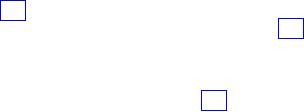
The
template class describes an object
that controls a varying-length
sequence of
elements
of type T. The
sequence is stored as an array of
T.
The
object allocates and frees
storage for the sequence it
controls through a
stored
allocator
object (page 337)
of class A. Such
an allocator object must
have the same
external
interface as an object of template class
allocator (page 337).
Note that the
stored
allocator object is not
copied
when the container object is
assigned.
Vector
reallocation occurs
when a member function must grow
the controlled
sequence
beyond its current storage
capacity (page 406).
Other insertions and
erasures
may alter various storage
addresses within the
sequence. In all such
cases,
iterators
or references that point at
altered portions of the
controlled sequence
become
invalid.
vector::allocator_type
typedef
A allocator_type;
The
type is a synonym for the
template parameter A.
vector::assign
template<class
InIt>
void
assign(InIt first, InIt
last);
void
assign(size_type
n, const T& x);
If
InIt
is an
integer type, the first
member function behaves the
same as
assign((size_type)first,
(T)last).
Otherwise, the first member
function replaces
the
sequence controlled by *this
with
the sequence [first,
last),
which must not
overlap
the initial controlled
sequence. The second member
function replaces the
sequence
controlled by *this
with a
repetition of n
elements
of value x.
vector::at
const_reference
at(size_type
pos) const;
reference
at(size_type
pos);
The
member function returns a
reference to the element of
the controlled
sequence
at
position pos. If
that position is invalid,
the function throws an
object of class
out_of_range.
vector::back
reference
back();
const_reference
back()
const;
The
member function returns a
reference to the last
element of the
controlled
sequence,
which must be
non-empty.
vector::begin
const_iterator
begin()
const;
iterator
begin();
The
member function returns a
random-access iterator that
points at the first
element
of the sequence (or just
beyond the end of an empty
sequence).
vector::capacity
size_type
capacity()
const;
The
member function returns the
storage currently allocated to hold
the controlled
sequence,
a value at least as large as size().
406
Standard
C++ Library
vector::clear
void
clear();
The
member function calls erase(
begin(), end()).
vector::const_iterator
typedef
T1 const_iterator;
The
type describes an object
that can serve as a constant
random-access iterator for
the
controlled sequence. It is described
here as a synonym for
the
implementation-defined
type T1.
vector::const_pointer
typedef
typename A::const_pointer
const_pointer;
The
type describes an object
that can serve as a constant
pointer to an element of
the
controlled sequence.
vector::const_reference
typedef
typename A::const_reference
const_reference;
The
type describes an object
that can serve as a constant
reference to an element of
the
controlled sequence.
vector::const_reverse_iterator
typedef
reverse_iterator<const_iterator>
const_reverse_iterator;
The
type describes an object
that can serve as a constant
reverse iterator for
the
controlled
sequence.
vector::difference_type
typedef
T3 difference_type;
The
signed integer type
describes an object that can
represent the
difference
between
the addresses of any two
elements in the controlled
sequence. It is
described
here as a synonym for the
implementation-defined type T3.
vector::empty
bool
empty()
const;
The
member function returns true
for an empty controlled
sequence.
vector::end
const_iterator
end()
const;
iterator
end();
The
member function returns a
random-access iterator that
points just beyond
the
end
of the sequence.
vector::erase
iterator
erase(iterator
it);
iterator
erase(iterator first,
iterator last);
407
Chapter
13. Standard Template Library
C++

The
first member function
removes the element of the
controlled sequence
pointed
to
by it. The
second member function
removes the elements of the
controlled
sequence
in the range [first,
last).
Both return an iterator that
designates the
first
element remaining beyond any
elements removed, or end()
if no
such element
exists.
Erasing
N
elements
causes N
destructor
calls and an assignment for each of
the
elements
between the insertion point
and the end of the sequence.
No reallocation
the
first element erased through
the end of the
sequence.
The
member functions never throw an
exception.
vector::front
reference
front();
const_reference
front()
const;
The
member function returns a
reference to the first
element of the
controlled
sequence,
which must be
non-empty.
vector::get_allocator
A
get_allocator()
const;
The
member function returns the
stored allocator object
(page 337).
vector::insert
iterator
insert(iterator it,
const T& x);
void
insert(iterator it,
size_type n, const T& x);
template<class
InIt>
void
insert(iterator it,
InIt first, InIt last);
Each
of the member functions
inserts, before the element
pointed to by it
in
the
controlled
sequence, a sequence specified by
the remaining operands. The
first
member
function inserts a single
element with value x
and
returns an iterator
that
points
to the newly inserted
element. The second member
function inserts a
repetition
of n
elements
of value x.
If
InIt
is an
integer type, the last
member function behaves the
same as
insert(it,
(size_type)first, (T)last).
Otherwise, the last member
function
inserts
the sequence [first,
last),
which must not
overlap
the initial
controlled
sequence.
When
inserting a single element,
the number of element copies
is linear in the
number
of elements between the
insertion point and the end
of the sequence.
When
inserting a single element at
the end of the sequence,
the amortized number
of
element copies is constant.
When inserting N
elements,
the number of element
copies
is linear in N
plus
the number of elements
between the insertion point
and
the
end of the sequence --
except when the template
member is specialized for
InIt
an
input iterator, which
behaves like N
single
insertions.
If
reallocation (page 406)
occurs, the size of the
controlled sequence at
least
doubles,
and all iterators and references
become invalid (page 406).
If no
reallocation
occurs, iterators become
invalid only from the point
of insertion
through
the end of the
sequence.
If
an exception is thrown during the
insertion of a single element,
the container is
left
unaltered and the exception is
rethrown. If an exception is thrown
during the
408
Standard
C++ Library
insertion
of multiple elements, and the
exception is not thrown while
copying an
element,
the container is left
unaltered and the exception is
rethrown.
vector::iterator
typedef
T0 iterator;
The
type describes an object
that can serve as a
random-access iterator for
the
controlled
sequence. It is described here as a
synonym for the
implementation-defined
type T0.
vector::max_size
size_type
max_size()
const;
The
member function returns the
length of the longest
sequence that the object
can
control.
vector::operator[]
const_reference
operator[](size_type
pos) const;
reference
operator[](size_type
pos);
The
member function returns a
reference to the element of
the controlled
sequence
at
position pos. If
that position is invalid,
the behavior is
undefined.
vector::pointer
typedef
typename A::pointer pointer;
The
type describes an object
that can serve as a pointer
to an element of the
controlled
sequence.
vector::pop_back
void
pop_back();
The
member function removes the
last element of the
controlled sequence,
which
must
be non-empty.
The
member function never throws
an exception.
vector::push_back
void
push_back(const
T& x);
The
member function inserts an
element with value x
at
the end of the
controlled
sequence.
If
an exception is thrown, the
container is left unaltered and
the exception is
rethrown.
vector::rbegin
const_reverse_iterator
rbegin()
const;
reverse_iterator
rbegin();
The
member function returns a
reverse iterator that points
just beyond the end
of
the
controlled sequence. Hence, it
designates the beginning of
the reverse
sequence.
vector::reference
typedef
typename A::reference reference;
409
Chapter
13. Standard Template Library
C++
The
type describes an object
that can serve as a
reference to an element of
the
controlled
sequence.
vector::rend
const_reverse_iterator
rend()
const;
reverse_iterator
rend();
The
member function returns a
reverse iterator that points
at the first element
of
the
sequence (or just beyond
the end of an empty
sequence). Hence, it
designates
the
end of the reverse
sequence.
vector::reserve
void
reserve(size_type
n);
If
n
is
greater than max_size(), the
member function reports a
length
error by
throwing
an object of class length_error.
Otherwise, it ensures that capacity()
henceforth
returns at least n.
vector::resize
void
resize(size_type
n);
void
resize(size_type
n, T x);
The
member functions both ensure
that size()
henceforth
returns n. If it
must
make
the controlled sequence
longer, the first member
function appends
elements
with
value T(), while
the second member function
appends elements with value x.
To
make the controlled sequence
shorter, both member
functions call
erase(begin()
+ n, end()).
vector::reverse_iterator
typedef
reverse_iterator<iterator>
reverse_iterator;
The
type describes an object
that can serve as a reverse
iterator for the
controlled
sequence.
vector::size
size_type
size()
const;
The
member function returns the
length of the controlled
sequence.
vector::size_type
typedef
T2 size_type;
The
unsigned integer type
describes an object that can
represent the length of
any
controlled
sequence. It is described here as a
synonym for the
implementation-defined
type T2.
vector::swap
void
swap(vector&
x);
The
member function swaps the
controlled sequences between *this
and
x.
If
get_allocator()
== x.get_allocator(),
it does so in constant time, it
throws no
exceptions,
and it invalidates no references,
pointers, or iterators that
designate
elements
in the two controlled sequences.
Otherwise, it performs a number
of
element
assignments and constructor calls
proportional to the number of
elements
in
the two controlled
sequences.
410
Standard
C++ Library
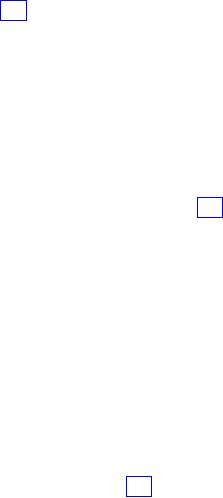
vector::value_type
typedef
typename A::value_type value_type;
The
type is a synonym for the
template parameter T.
vector::vector
vector();
explicit
vector(const
A& al);
explicit
vector(size_type
n);
vector(size_type
n, const T& x);
vector(size_type
n, const T& x, const A&
al);
vector(const
vector& x);
template<class
InIt>
vector(InIt first, InIt
last);
template<class
InIt>
vector(InIt first, InIt
last, const A& al);
All
constructors store an allocator
object (page 337)
and initialize the
controlled
sequence.
The allocator object is the
argument al, if
present. For the
copy
constructor,
it is x.get_allocator().
Otherwise, it is A().
The
first two constructors specify an
empty initial controlled
sequence. The third
constructor
specifies a repetition of n
elements
of value T(). The
fourth and fifth
constructors
specify a repetition of n
elements
of value x. The
sixth constructor
specifies
a copy of the sequence
controlled by x. If InIt is an
integer type, the
last
two
constructors specify a repetition of
(size_type)first
elements
of value
(T)last.
Otherwise, the last two
constructors specify the
sequence [first,
last).
All
constructors copy N
elements
and perform no interim reallocation
(page 406).
vector<bool,
A>
template<class
A>
class
vector<bool, A> {
public:
class
reference;
typedef
bool const_reference;
typedef
T0 iterator;
typedef
T1 const_iterator;
typedef
T4 pointer;
typedef
T5 const_pointer;
void
flip();
static
void swap(reference
x, reference y);
//
rest same as template class
vector
};
The
class is a partial specialization of
template class vector (page 404)
for elements
of
type bool. It
alters the definition of four
member types (to optimize
the packing
and
unpacking of elements) and adds two
member functions. Its
behavior is
otherwise
the same as for template class
vector.
vector<bool,
A>::const_iterator
typedef
T1 const_iterator;
The
type describes an object
that can serve as a constant
random-access iterator for
the
controlled sequence. It is described
here as a synonym for the
unspecified type
T1.
vector<bool,
A>::const_pointer
typedef
T5 const_pointer;
411
Chapter
13. Standard Template Library
C++
The
type describes an object
that can serve as a pointer
to a constant element of
the
controlled sequence. It is described
here as a synonym for the
unspecified type
T5.
vector<bool,
A>::const_reference
typedef
bool const_reference;
The
type describes an object
that can serve as a constant
reference to an element of
the
controlled sequence, in this
case bool.
vector<bool,
A>::flip
void
flip();
The
member function inverts the
values of all the members of
the controlled
sequence.
vector<bool,
A>::iterator
typedef
T0 iterator;
The
type describes an object
that can serve as a
random-access iterator for
the
controlled
sequence. It is described here as a
synonym for the unspecified
type T0.
vector<bool,
A>::pointer
typedef
T4 pointer;
The
type describes an object
that can serve as a pointer
to an element of the
controlled
sequence. It is described here as a
synonym for the unspecified
type T4.
vector<bool,
A>::reference
class
reference {
public:
reference&
operator=(const
reference& x);
reference&
operator=(bool
x);
void
flip();
bool
operator~()
const;
operator
bool()
const;
};
The
type describes an object
that can serve as a
reference to an element of
the
controlled
sequence. Specifically, for two objects
x
and
y
of class
reference:
v
bool(x)
yields
the value of the element
designated by x
v
~x
yields
the inverted value of the
element designated by x
v
x.flip()
inverts
the value stored in x
v
y
= bool(x) and
y
= x both
assign the value of the
element designated by x
to
the
element designated by y
It
is unspecified how member functions of
class vector<bool>
construct
objects of
class
reference
that
designate elements of a controlled
sequence. The default
constructor
for class reference
generates
an object that refers to no
such element.
vector<bool,
A>::swap
void
swap(reference
x, reference y);
The
static member function swaps
the members of the
controlled sequences
designated
by x
and
y.
412
Standard
C++ Library
Portions
derived from work copyright
� 1994 by Hewlett-Packard Company.
All rights
reserved.
413
Chapter
13. Standard Template Library
C++
414
Standard
C++ Library
Table of Contents:
- C++ Library
- C++ Library Overview:Using C++ Library Headers, Iostreams Conventions
- Characters:Escape Sequences, Multibyte Characters, Wide-Character Encoding
- Expressions
- Files and Streams:Text and Binary Streams, Controlling Streams, Stream States
- Indefinite Integrals of Logarithmic Functions:Combinations of Logarithms and Polynomials, The Logarithm
- Formatted Input:Scan Formats, Scan Functions, Scan Conversion Specifiers
- Formatted Output:Print Formats, Print Functions, Print Conversion Specifiers
- STL Conventions:Iterator Conventions, Algorithm Conventions
- Containers:Cont::const_reference, difference_type, reverse_iterator
- Preprocessing
- Standard C++ Library Header Files:bitset, conj, cos, showpoint, streampos
- Standard Template Library C++:adjacent_find, copy_backward, lexicographical_compare
- Appendix. Type Traits:Helper Class, Primary Type Categories, Binary Type Traits
- Notices:References, Bug Reports